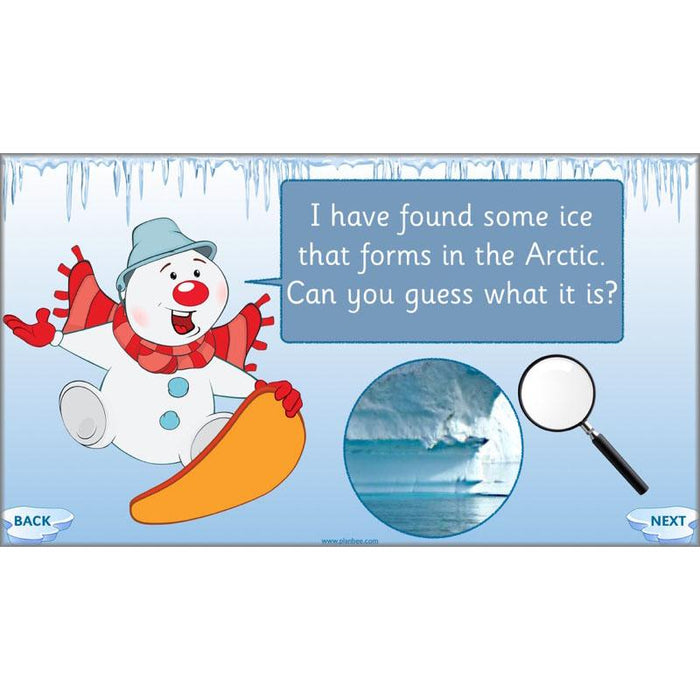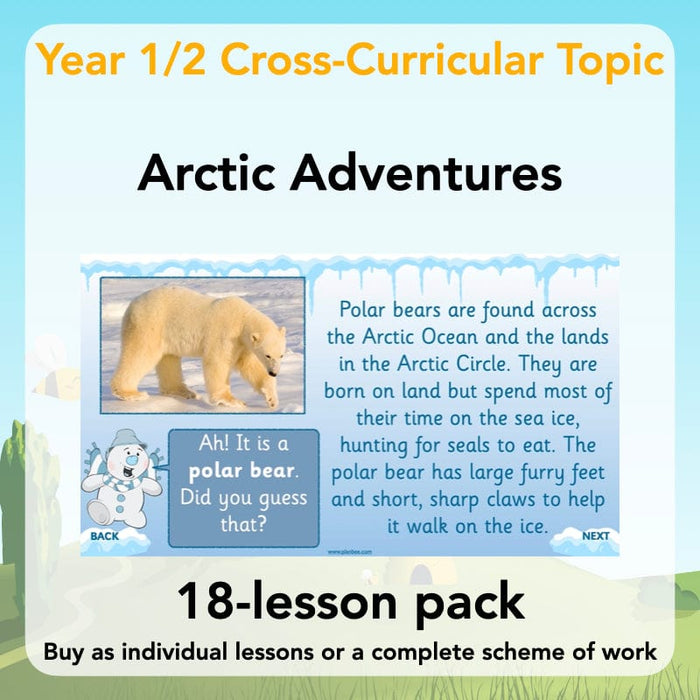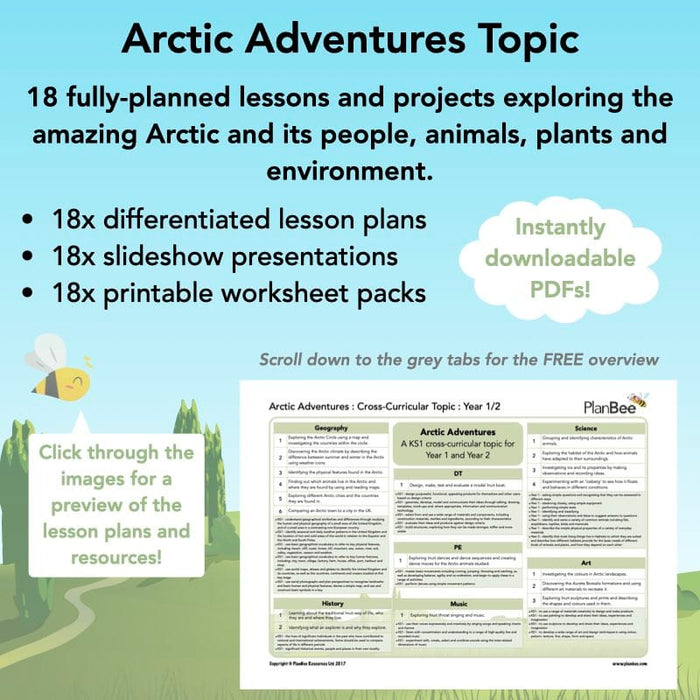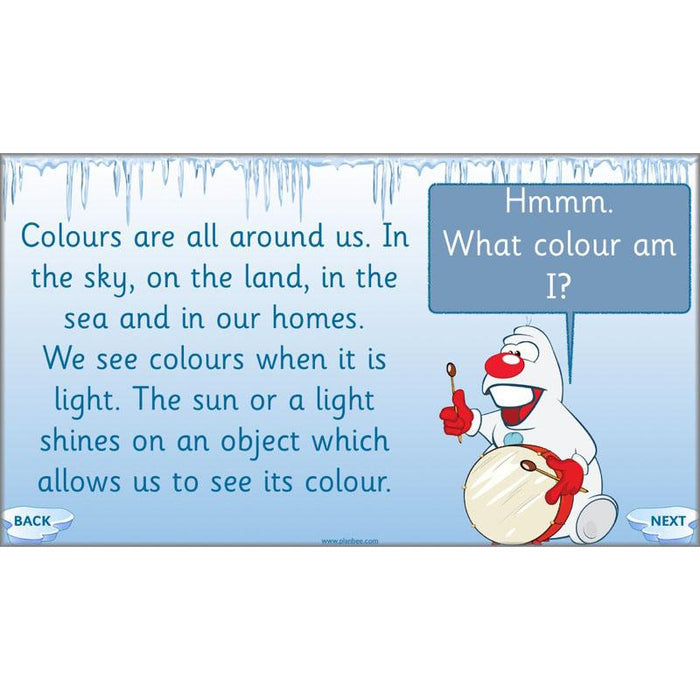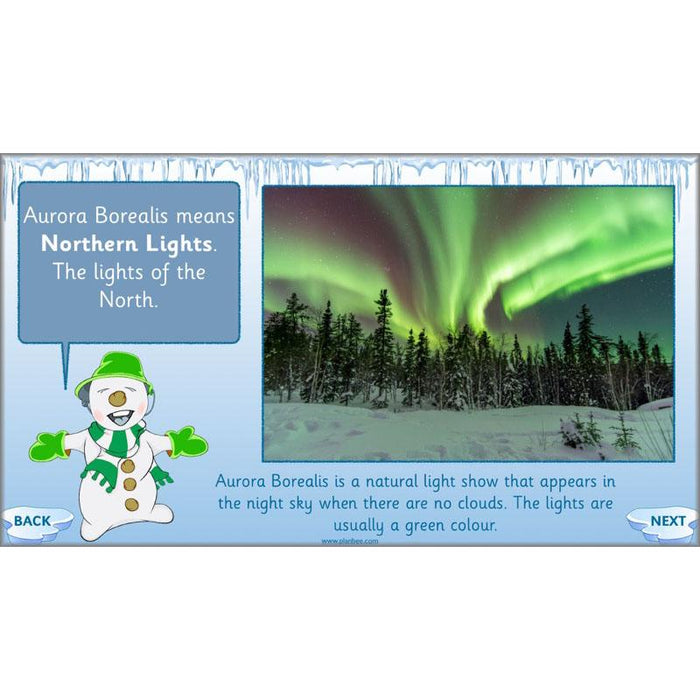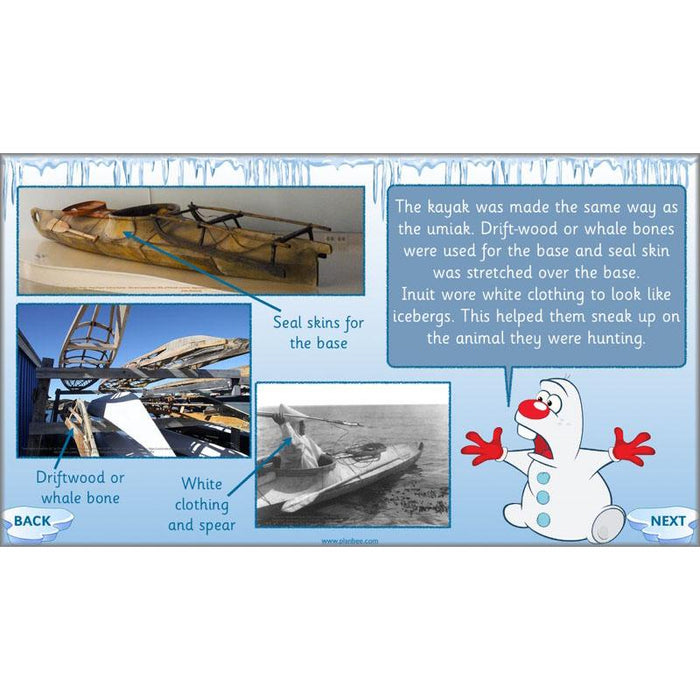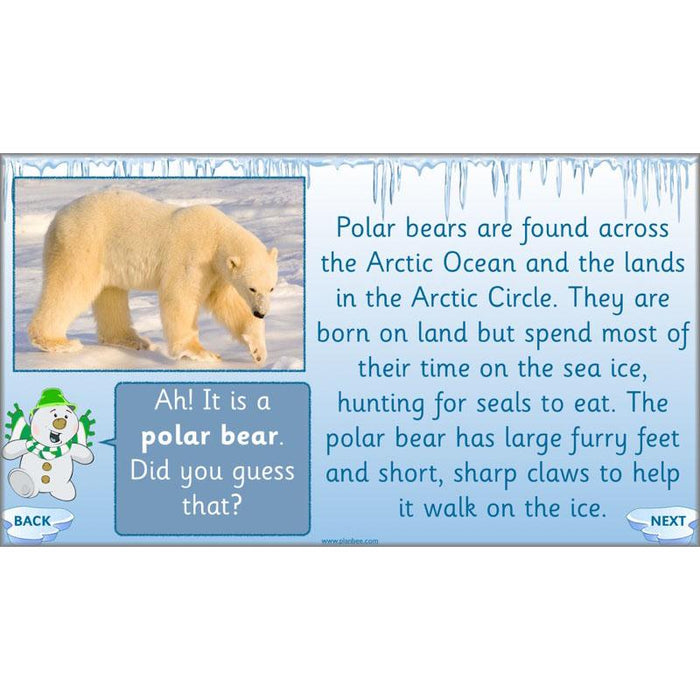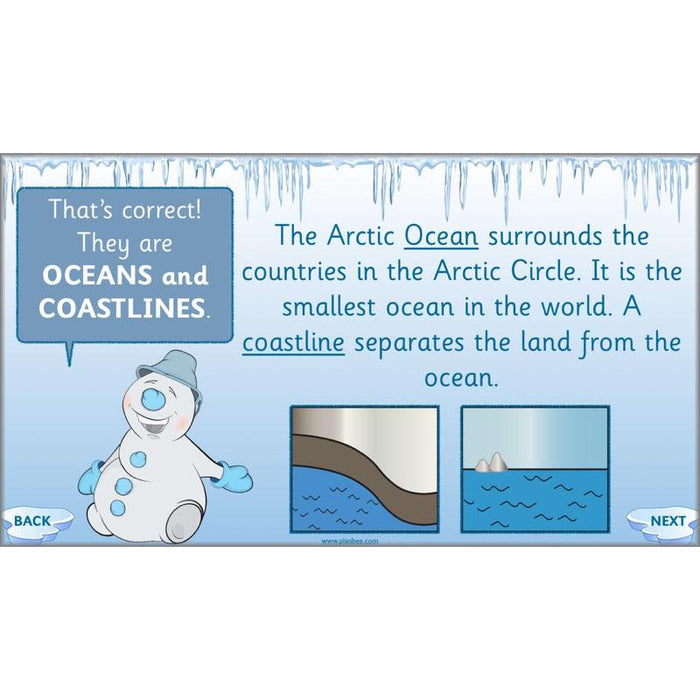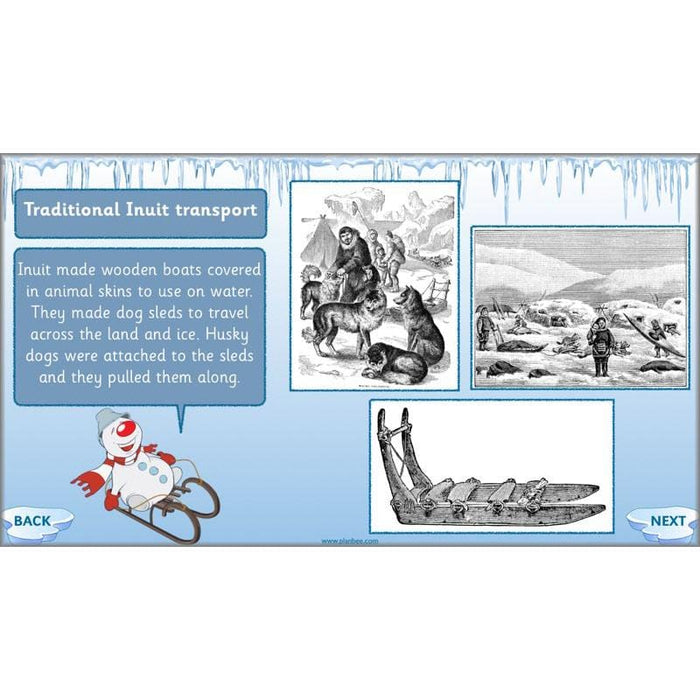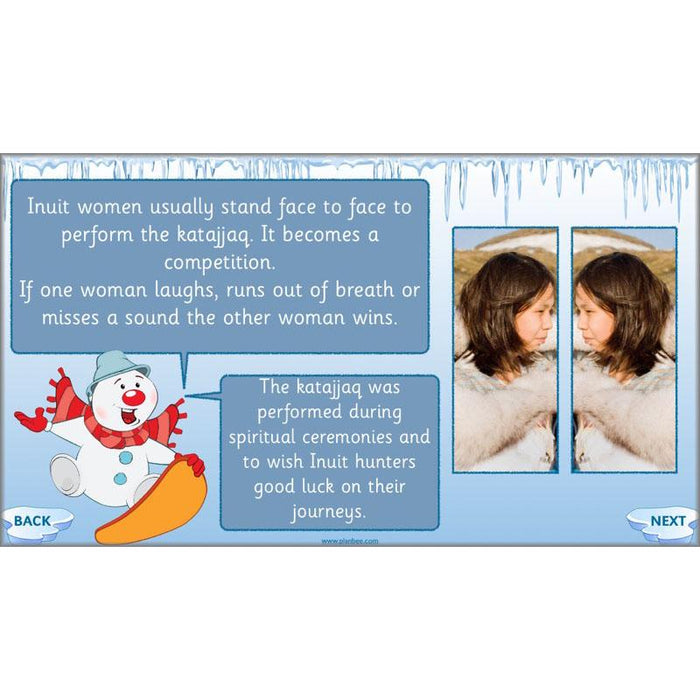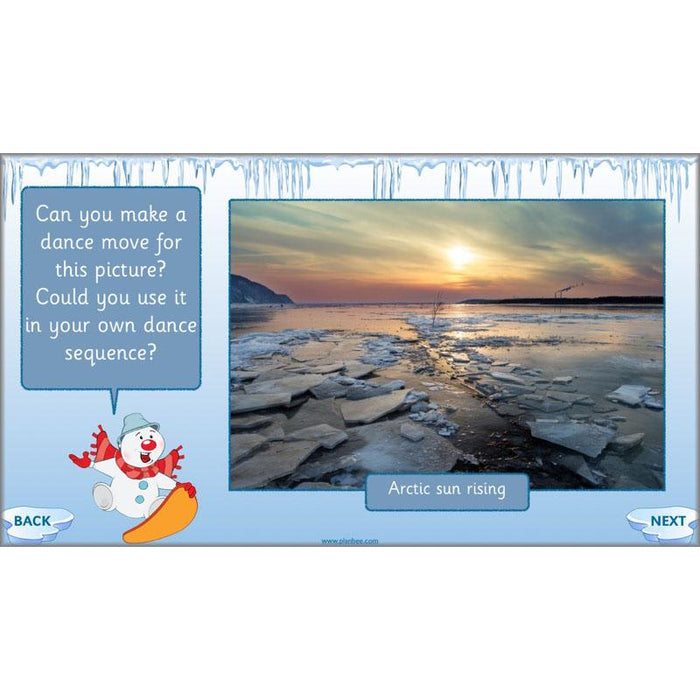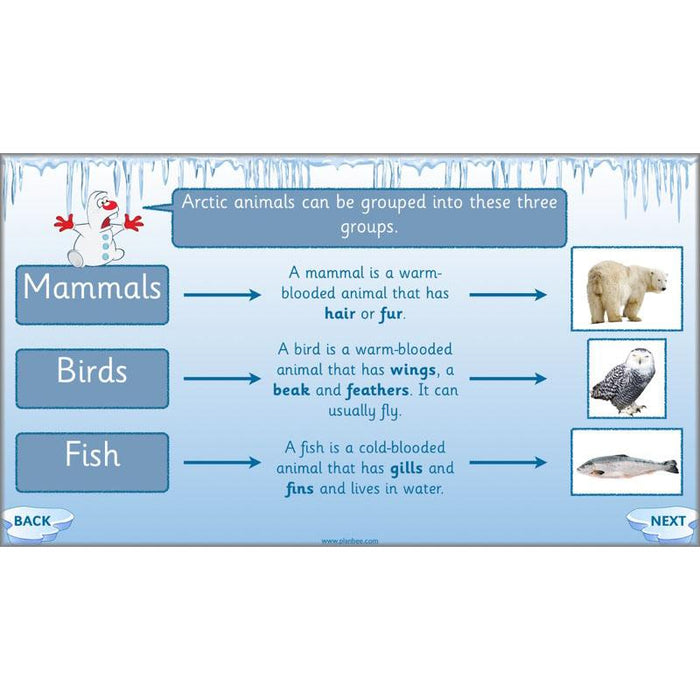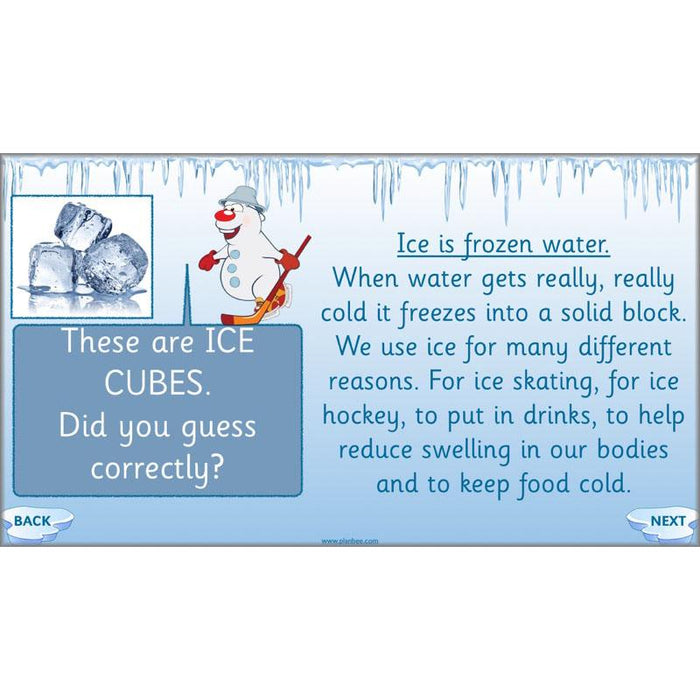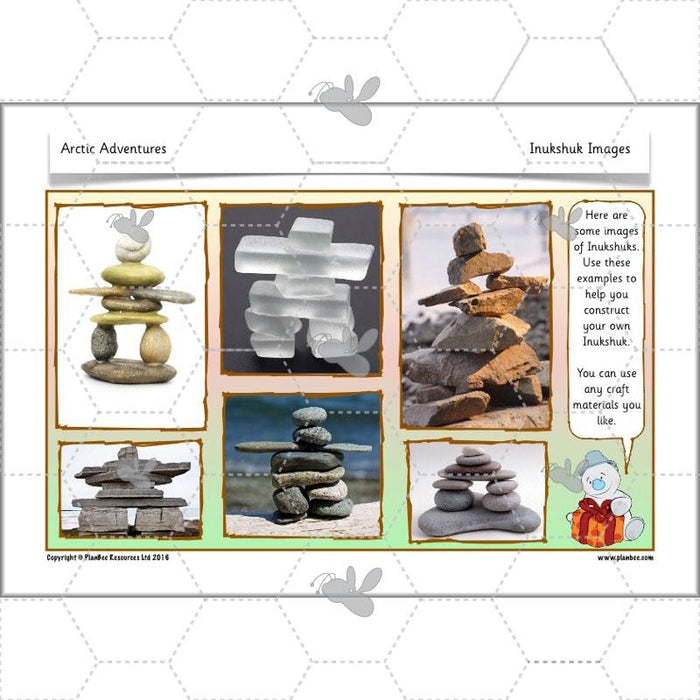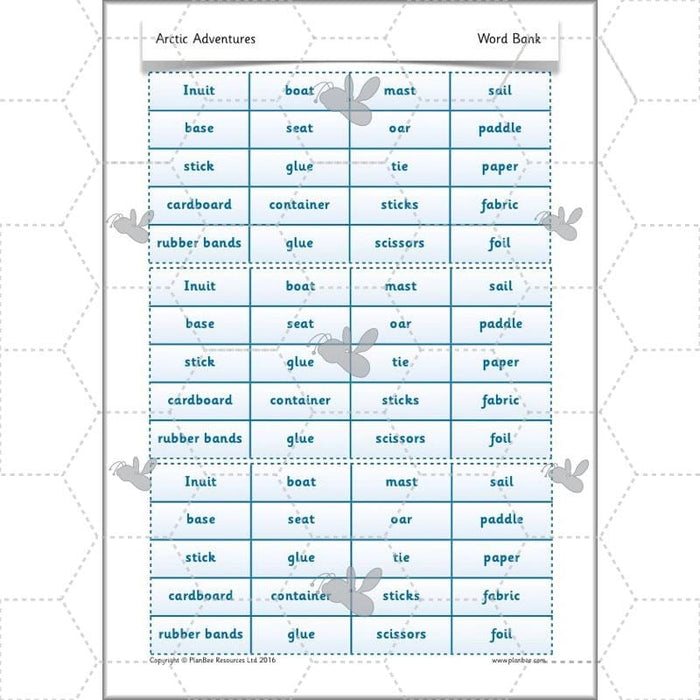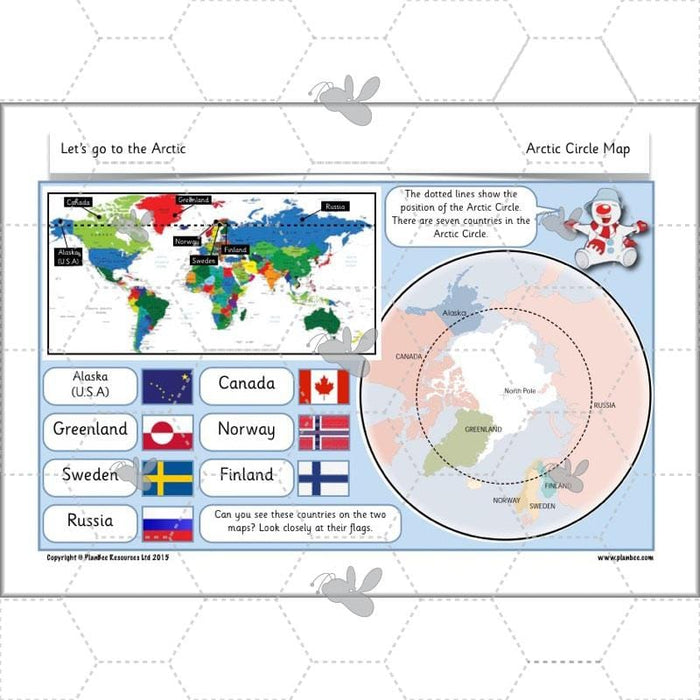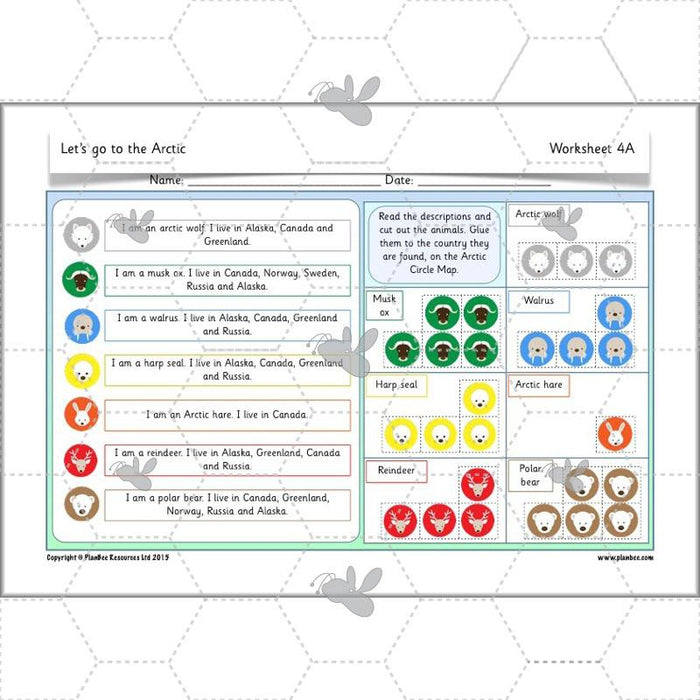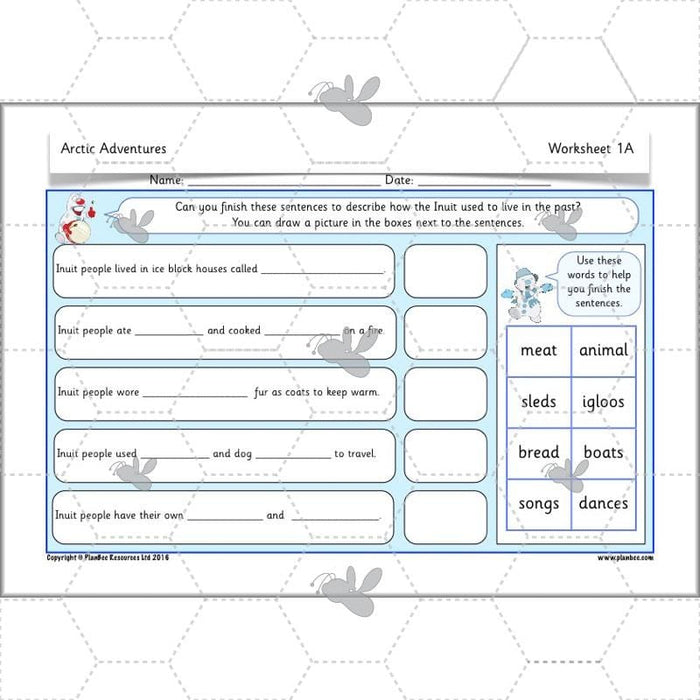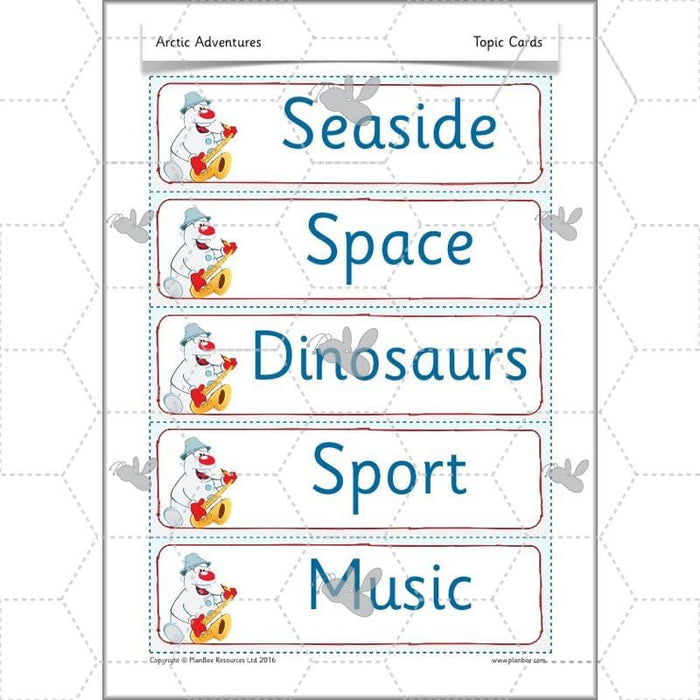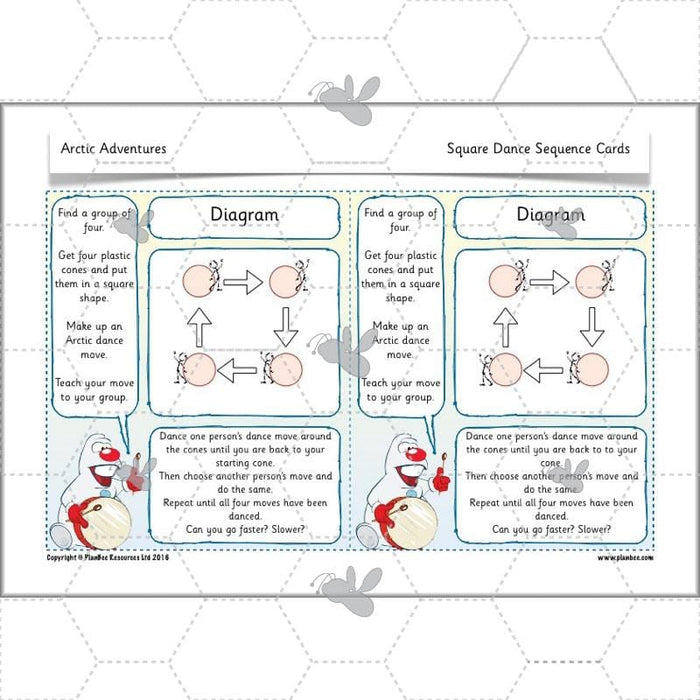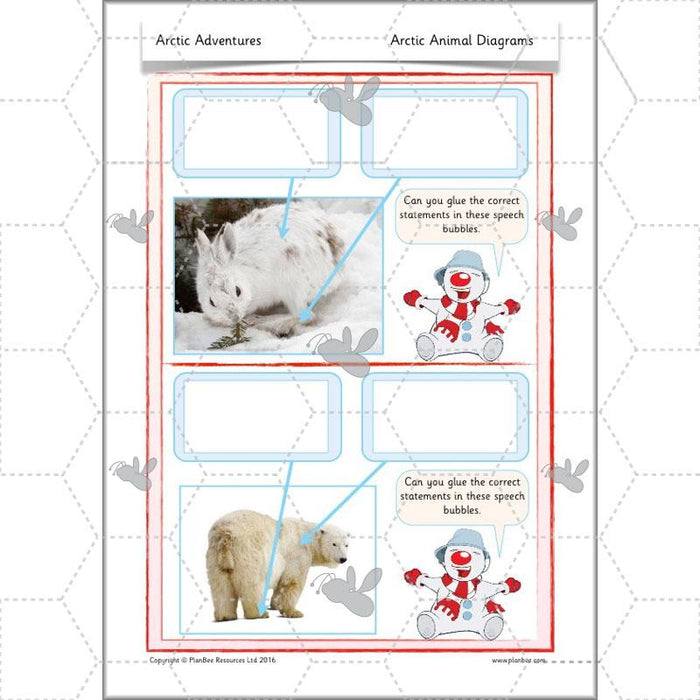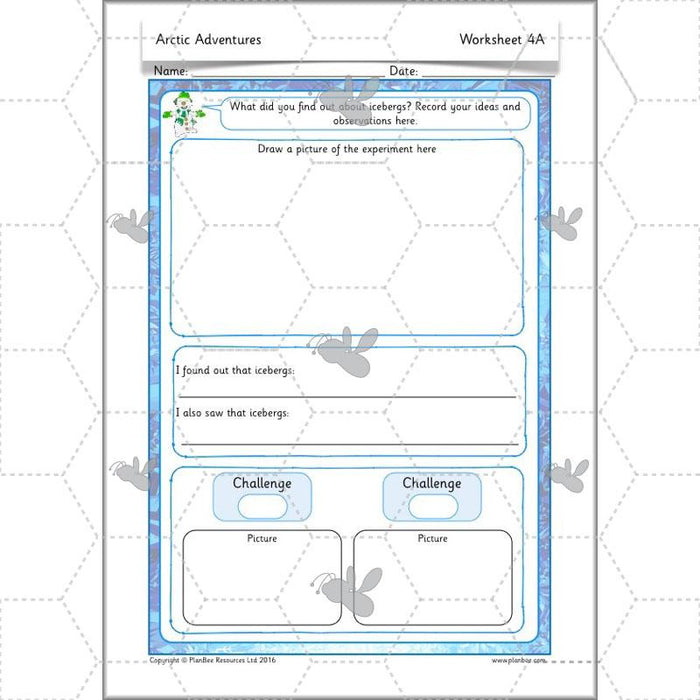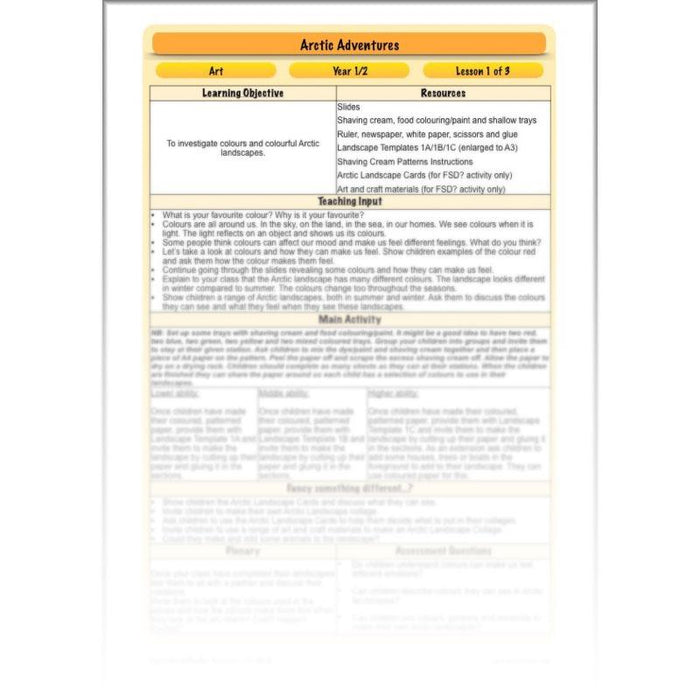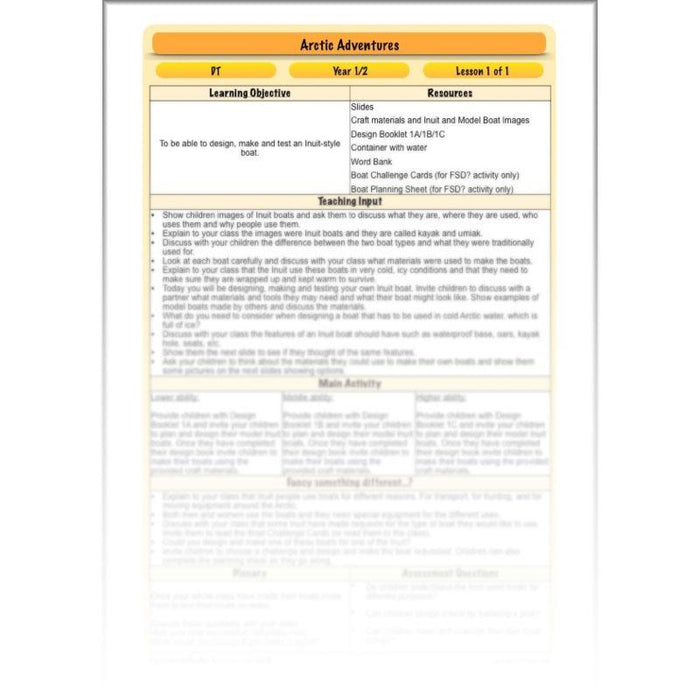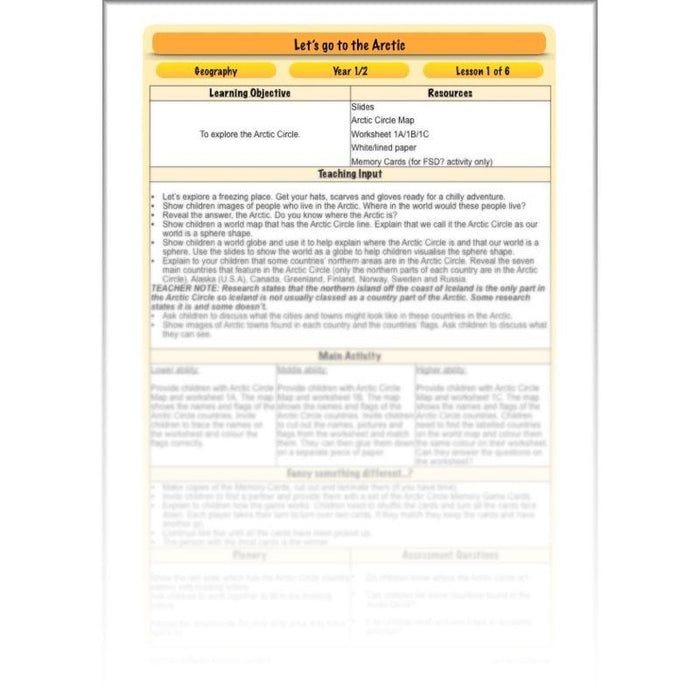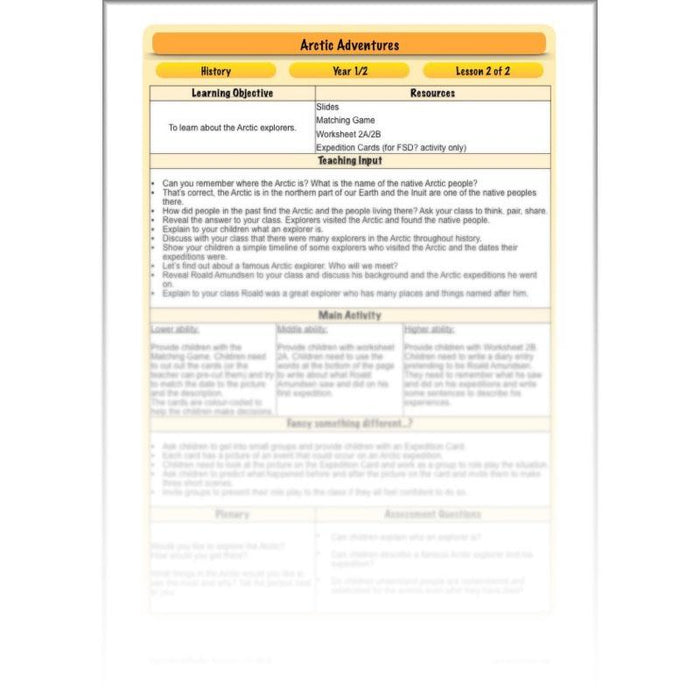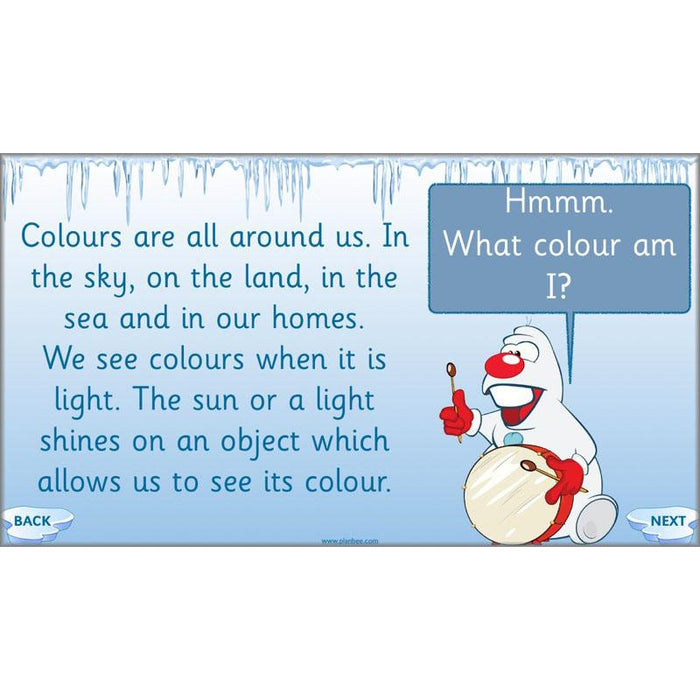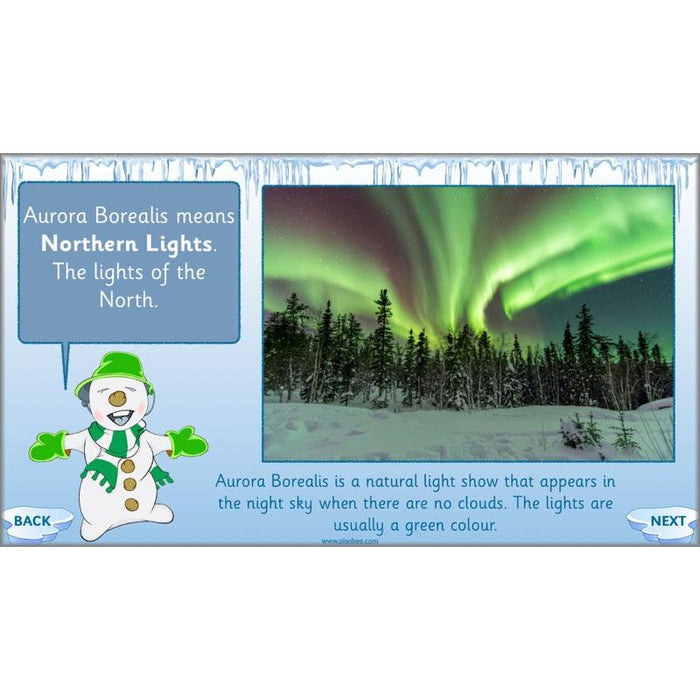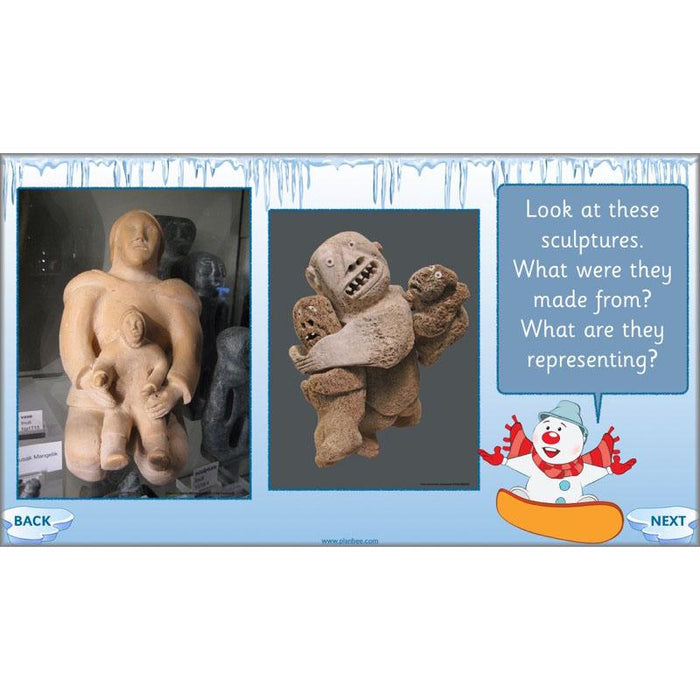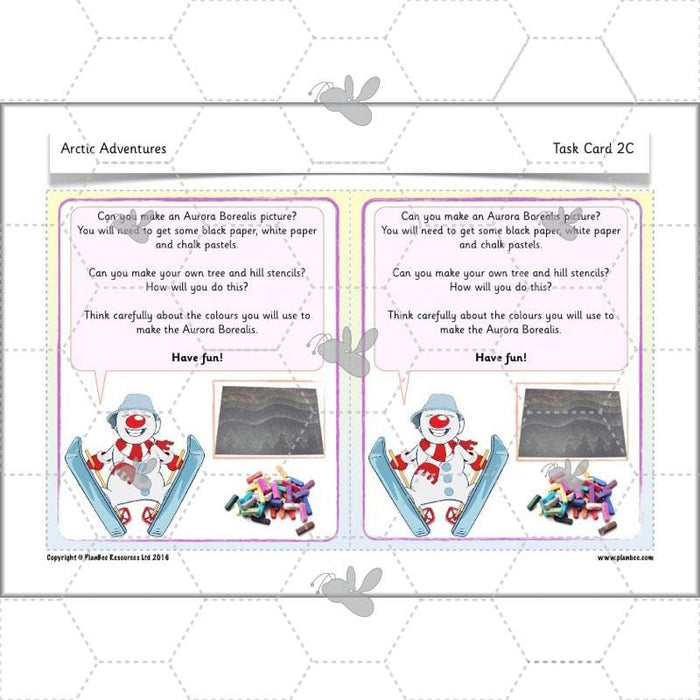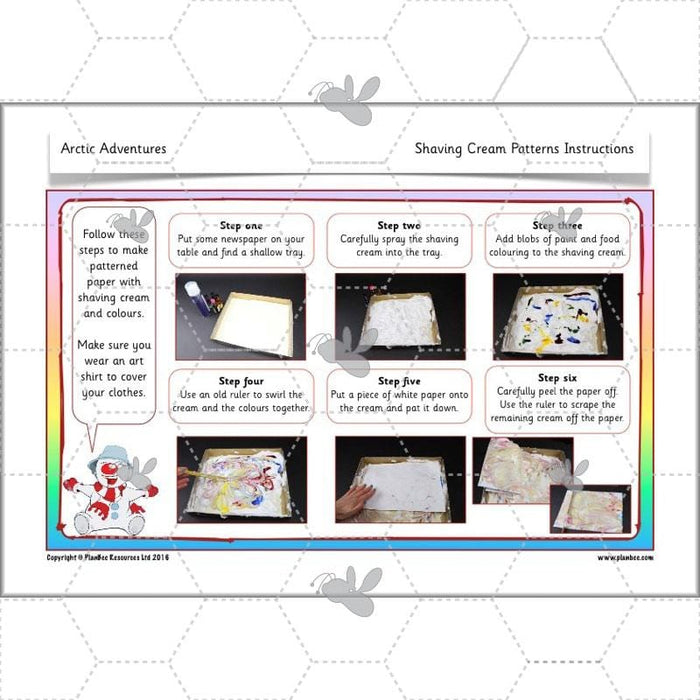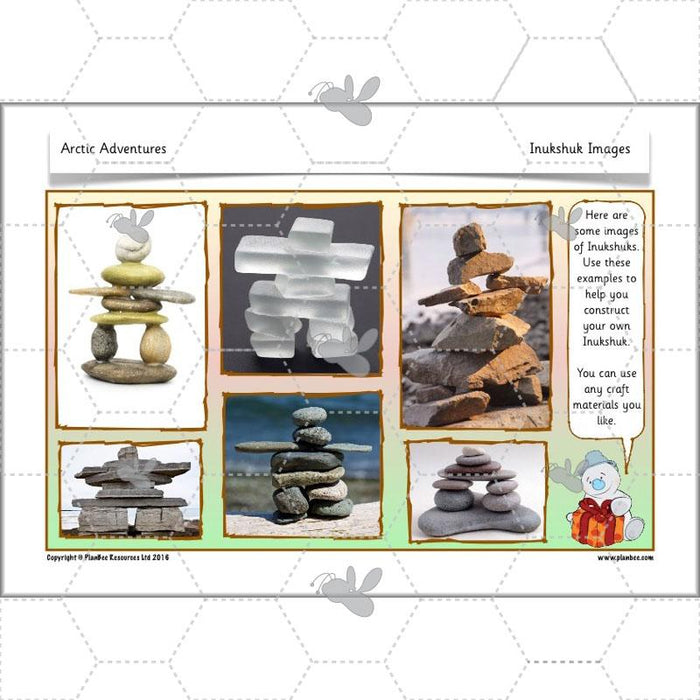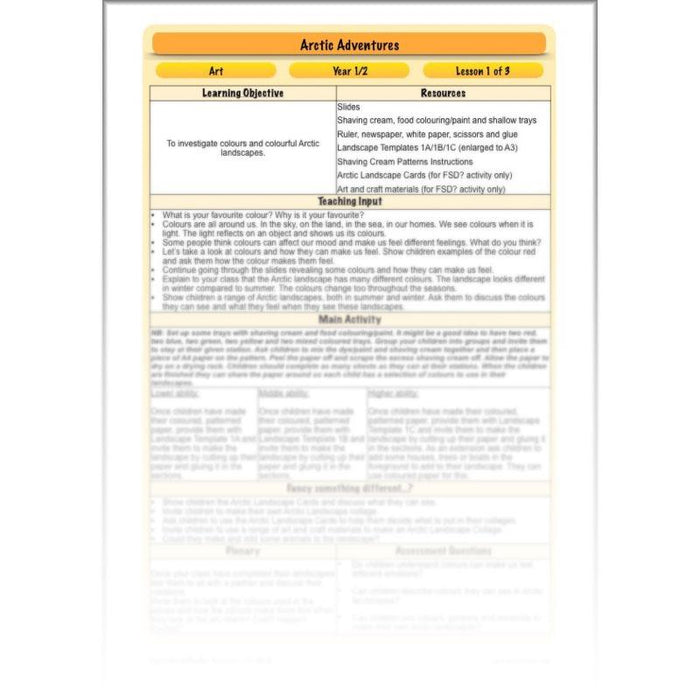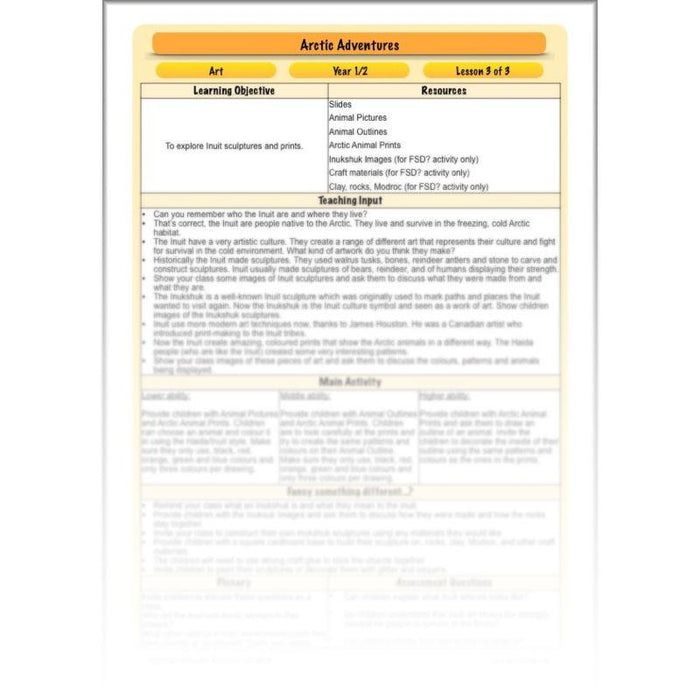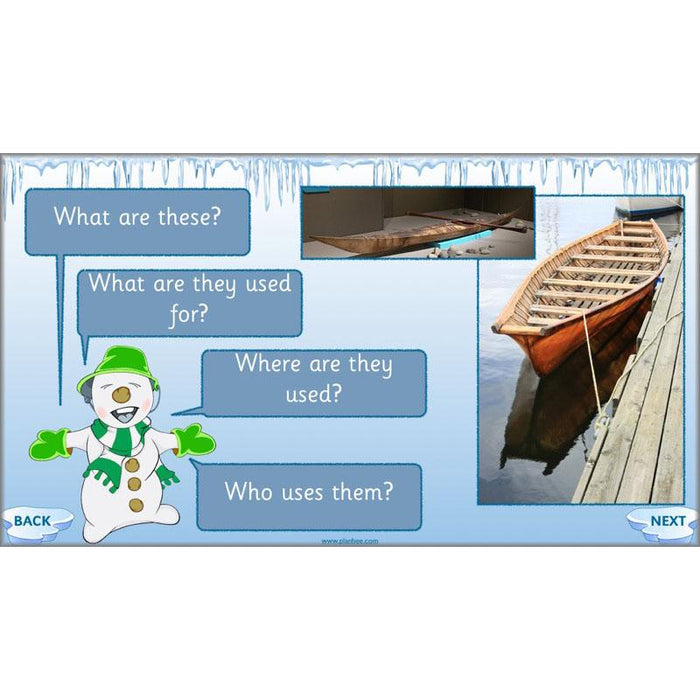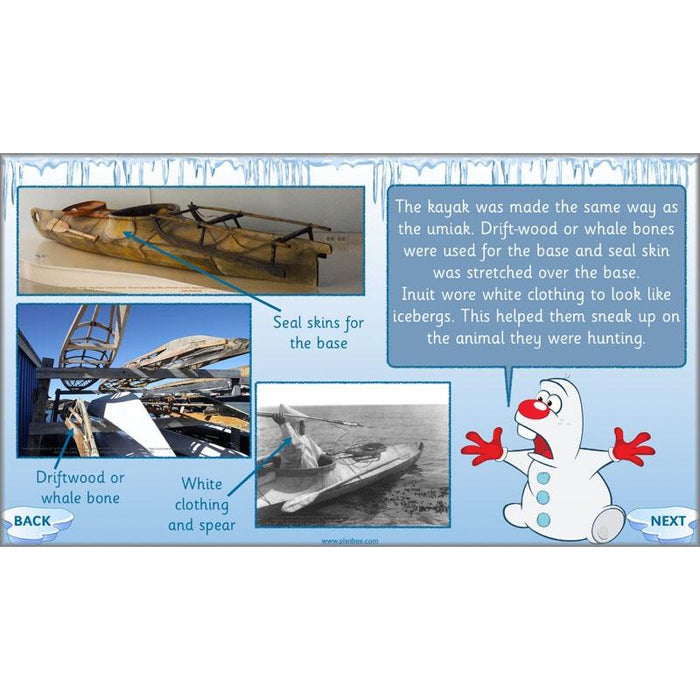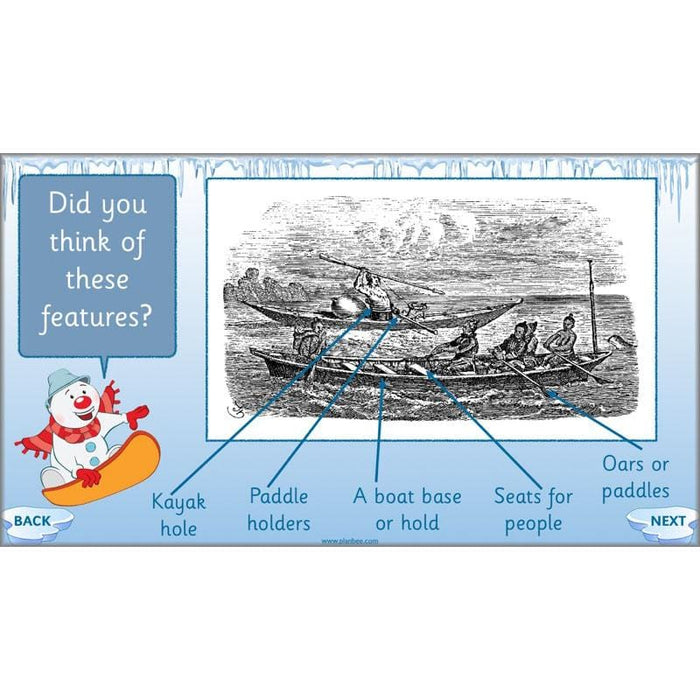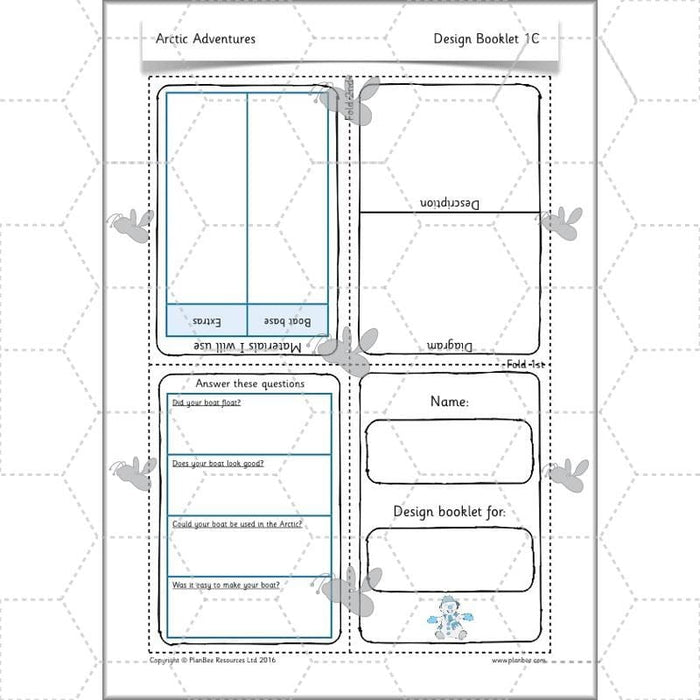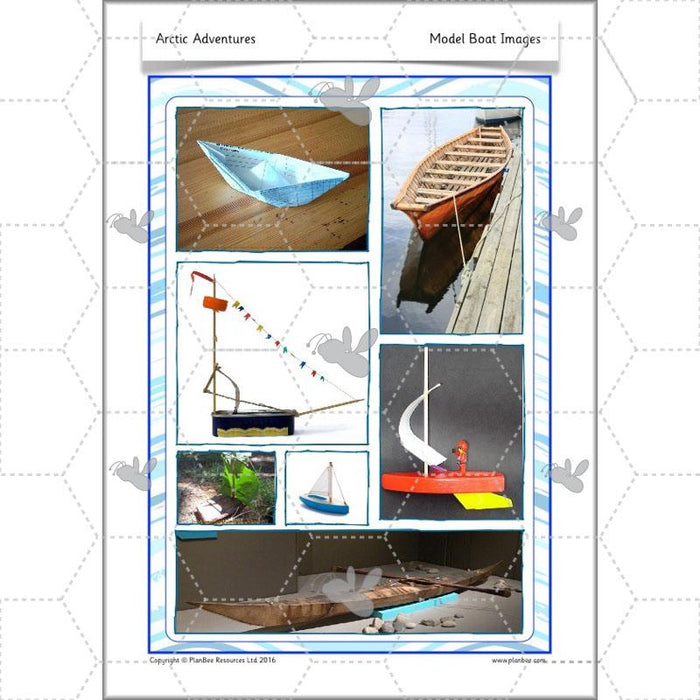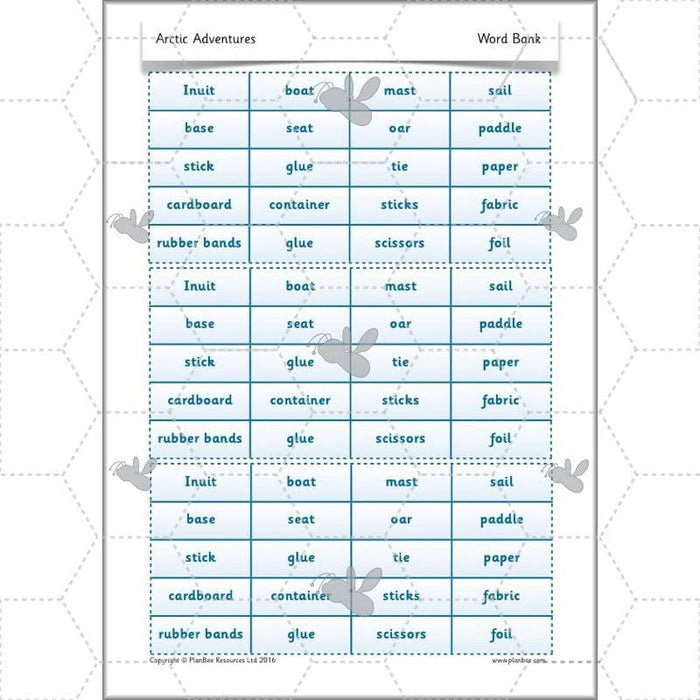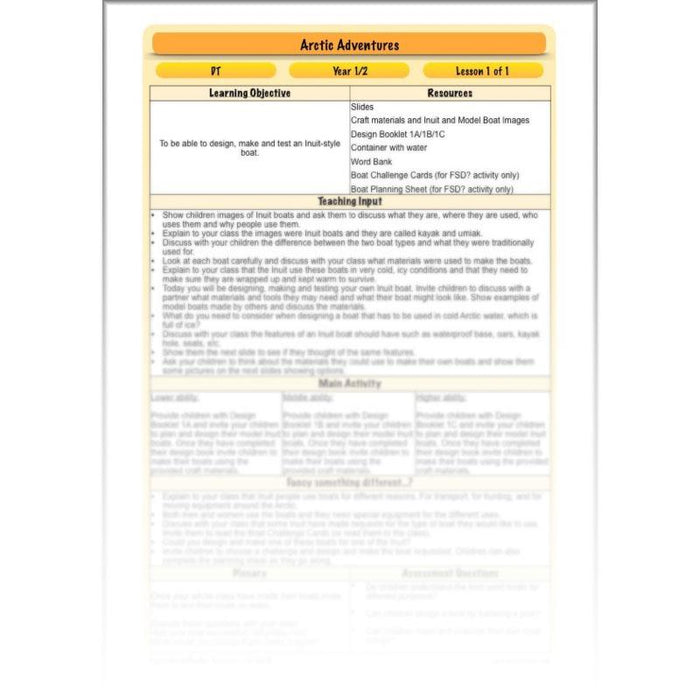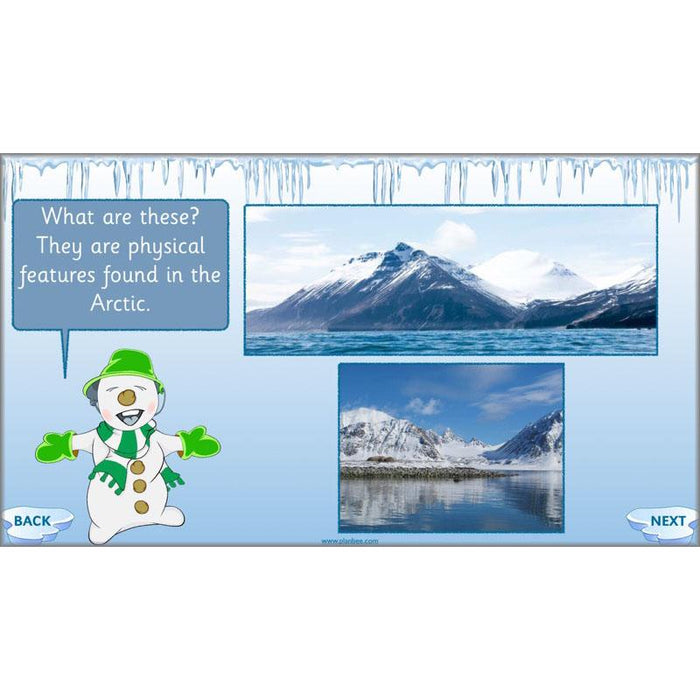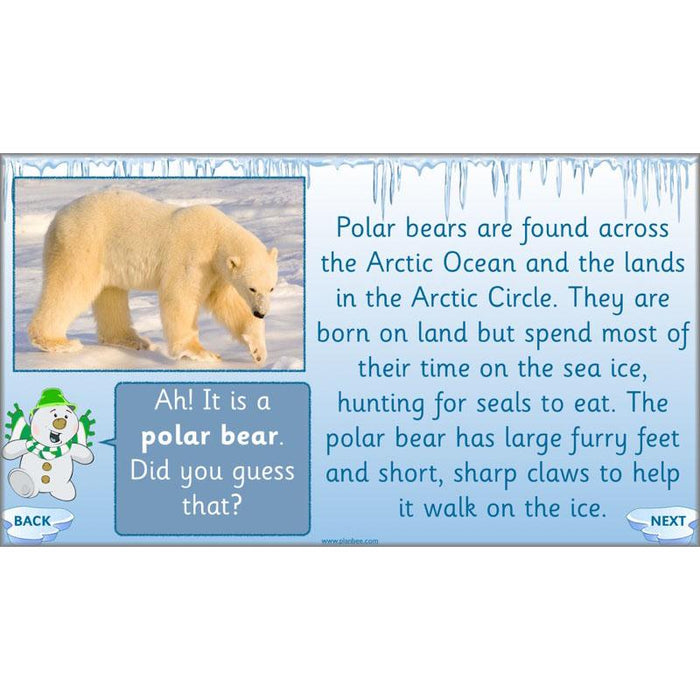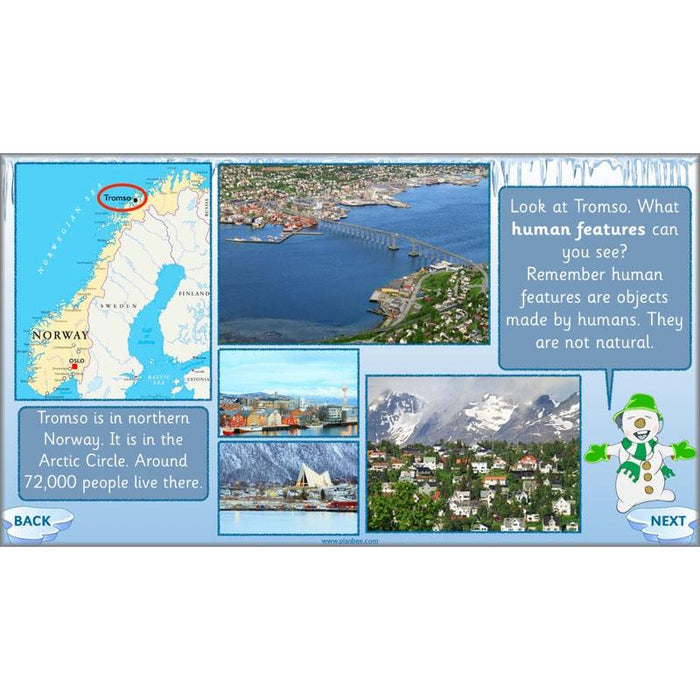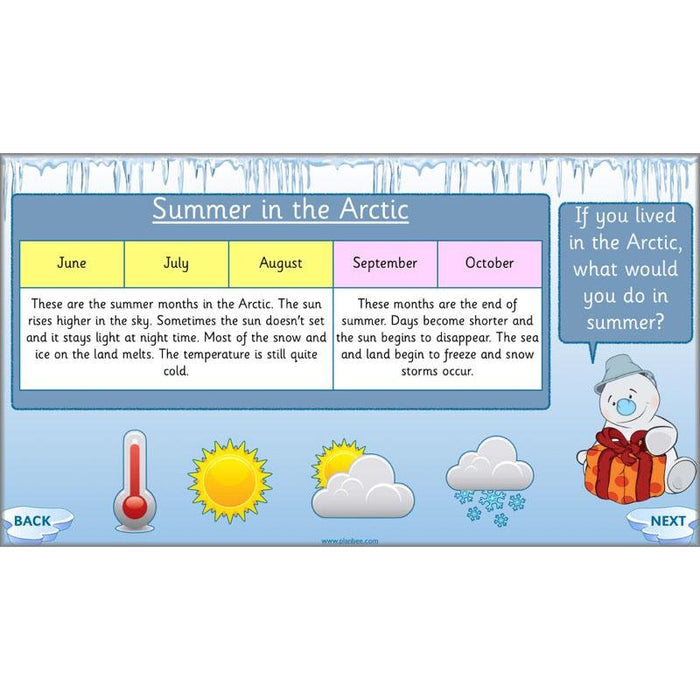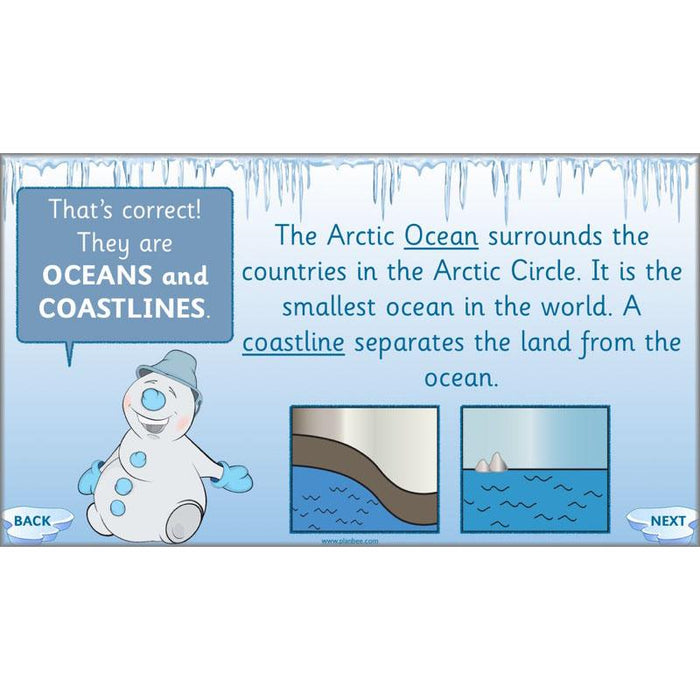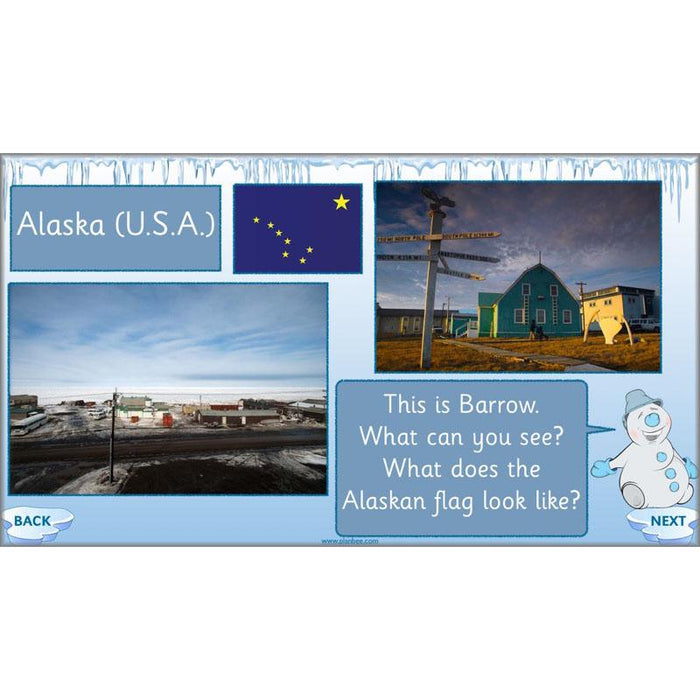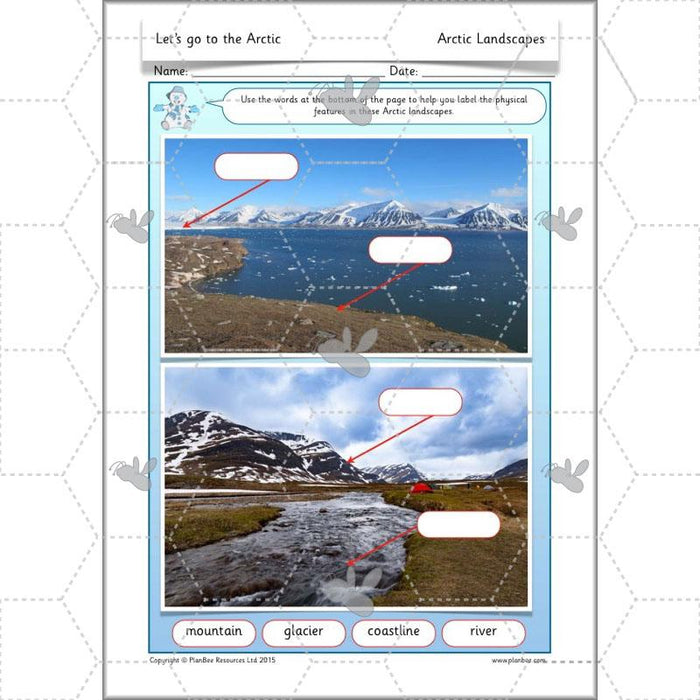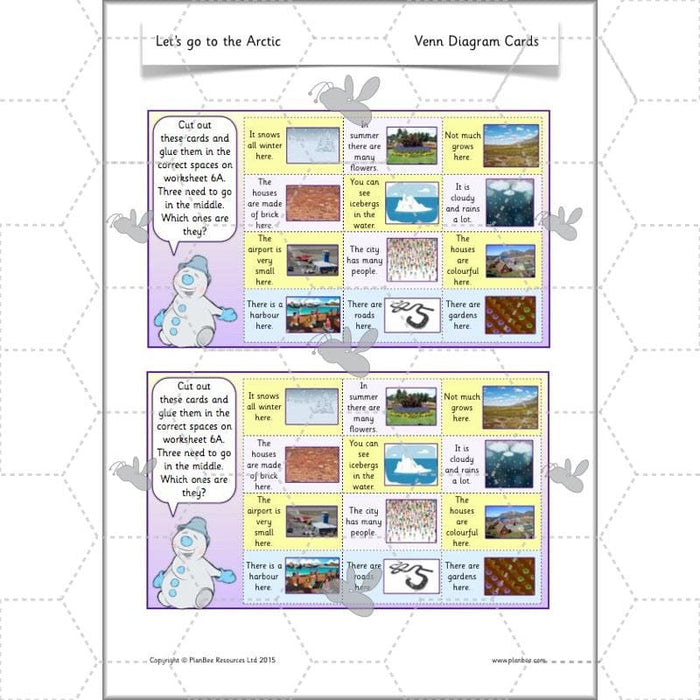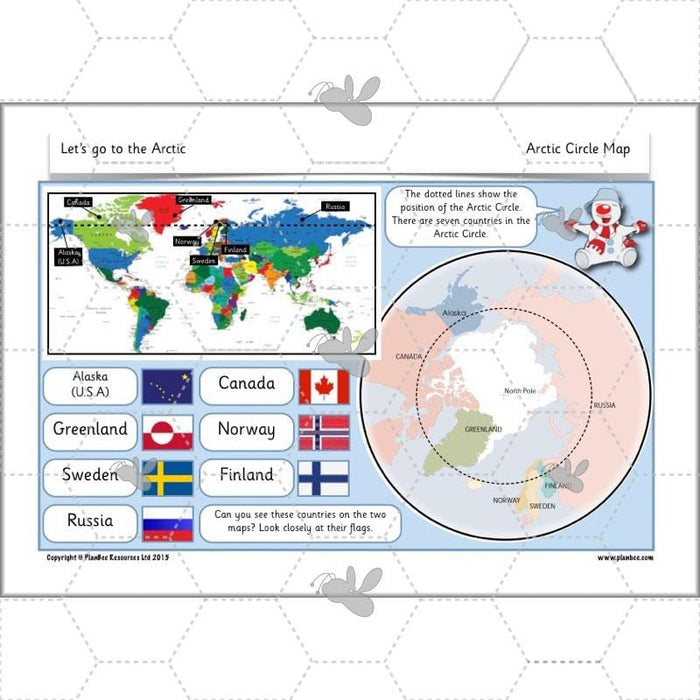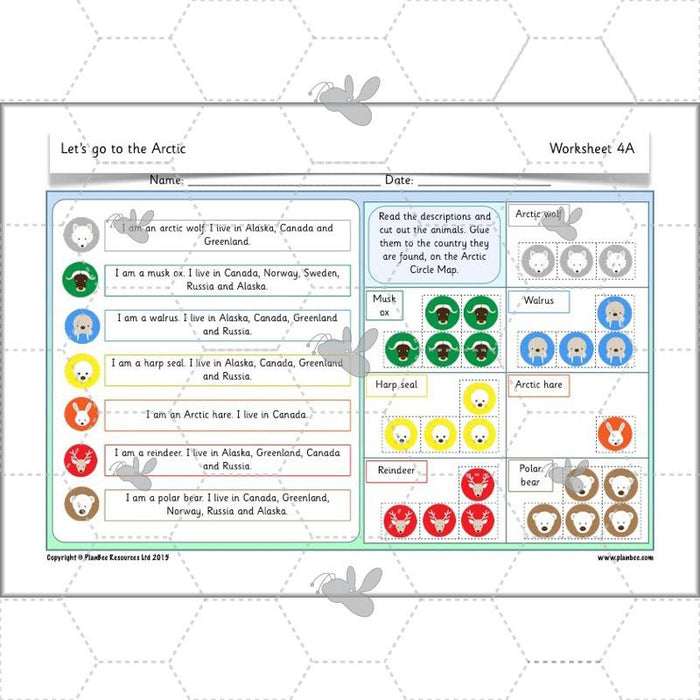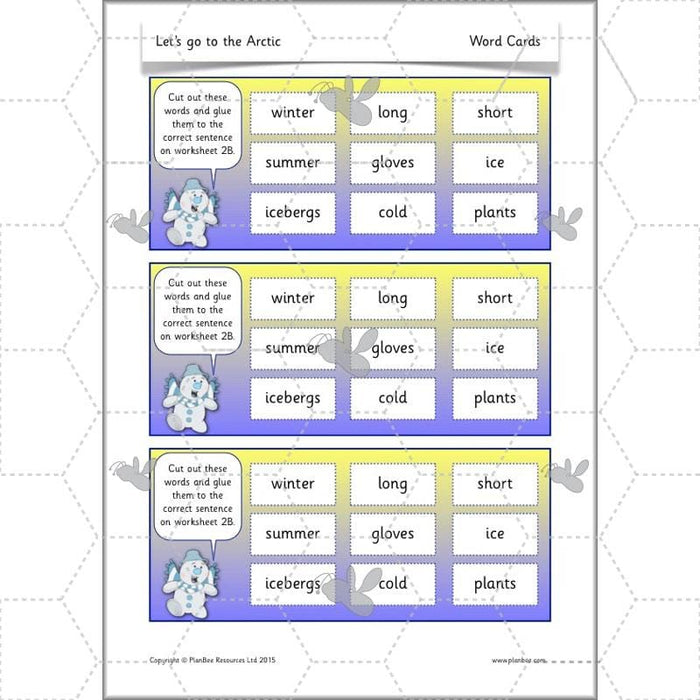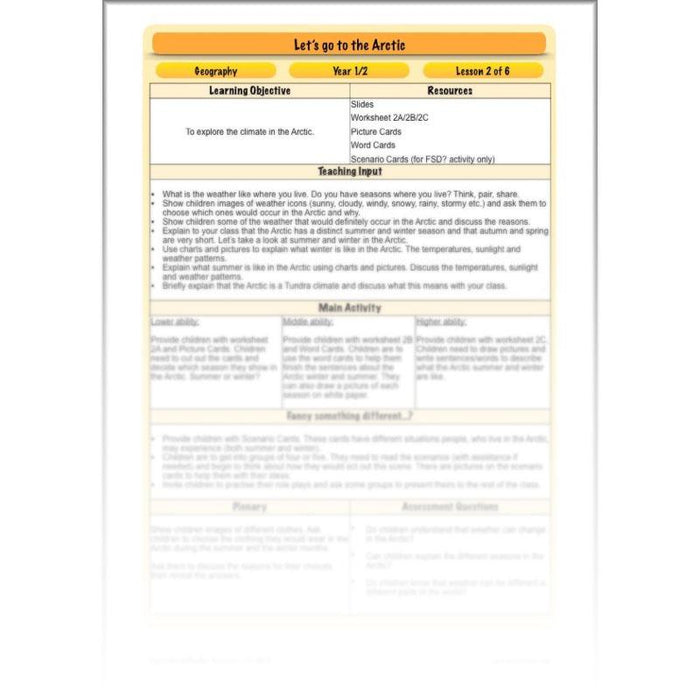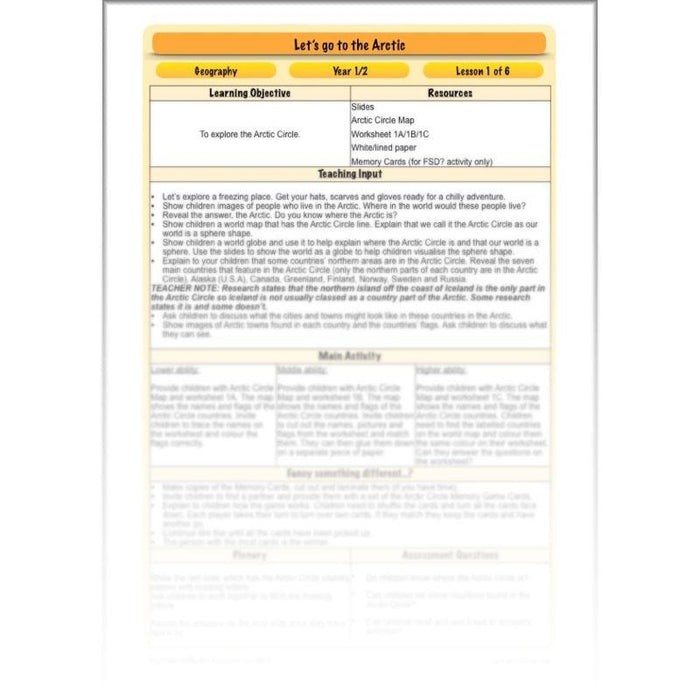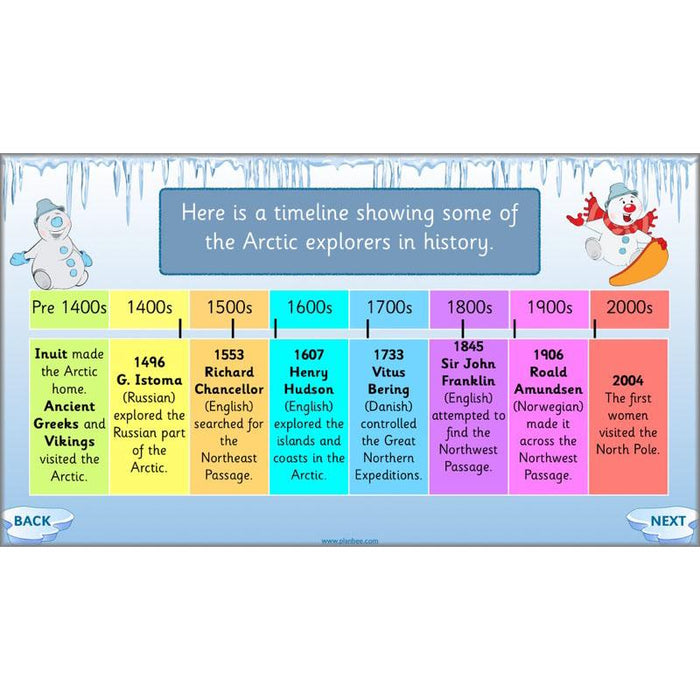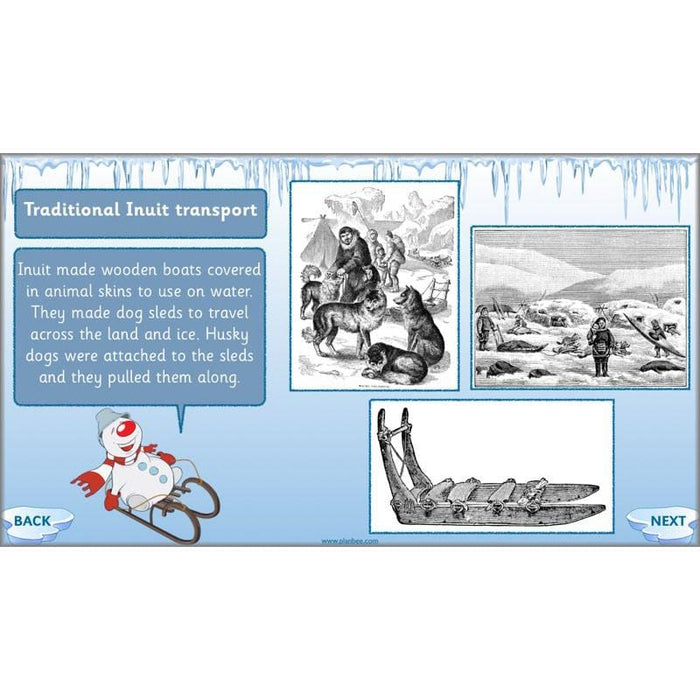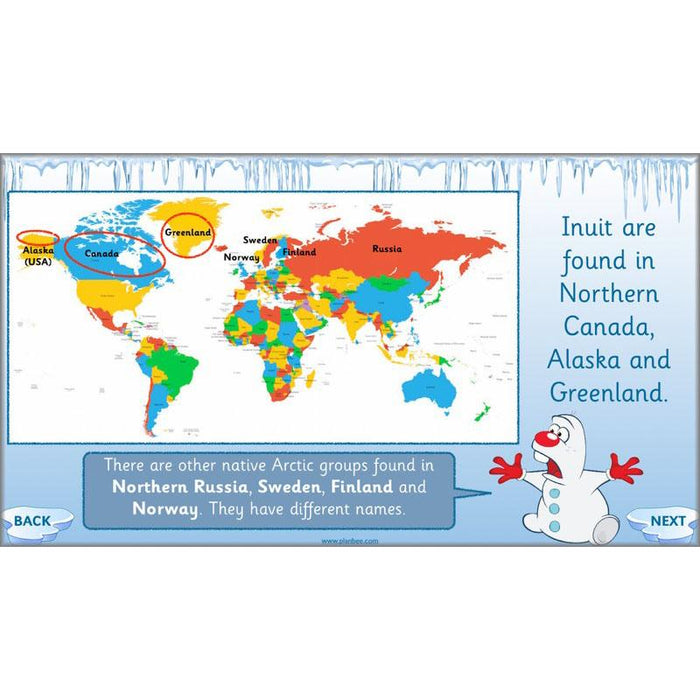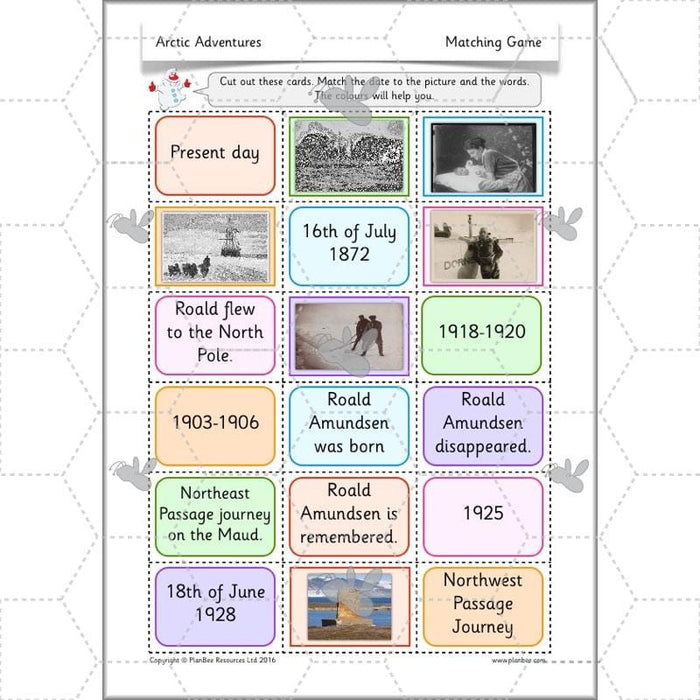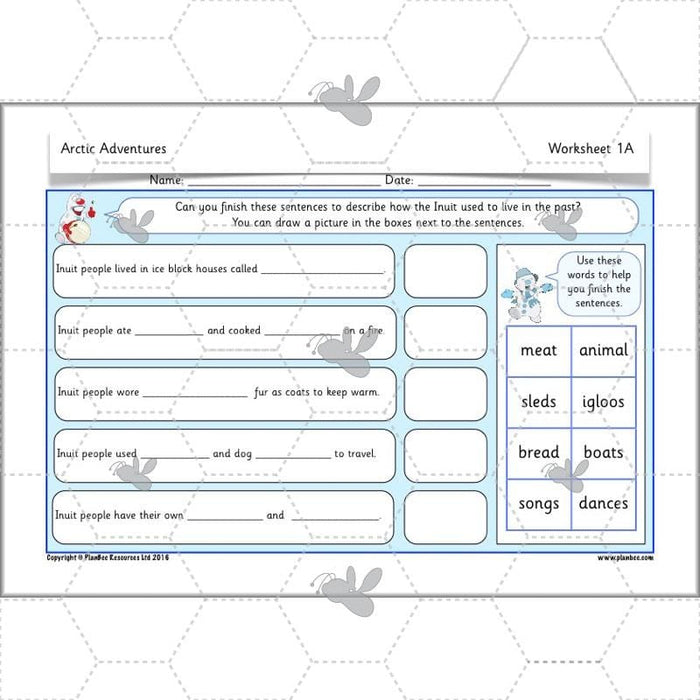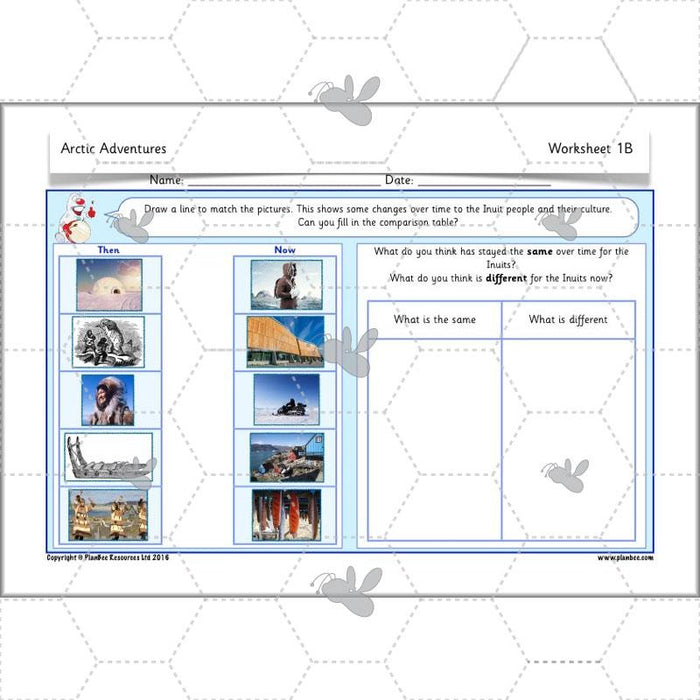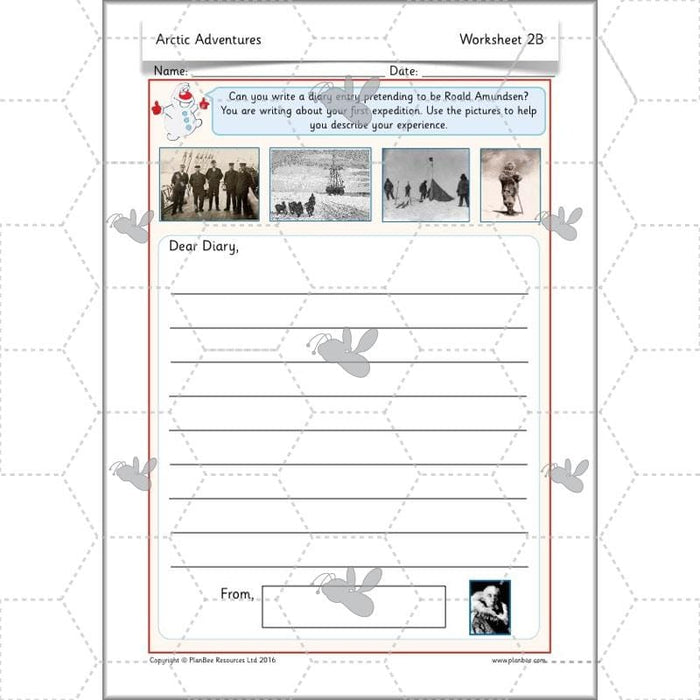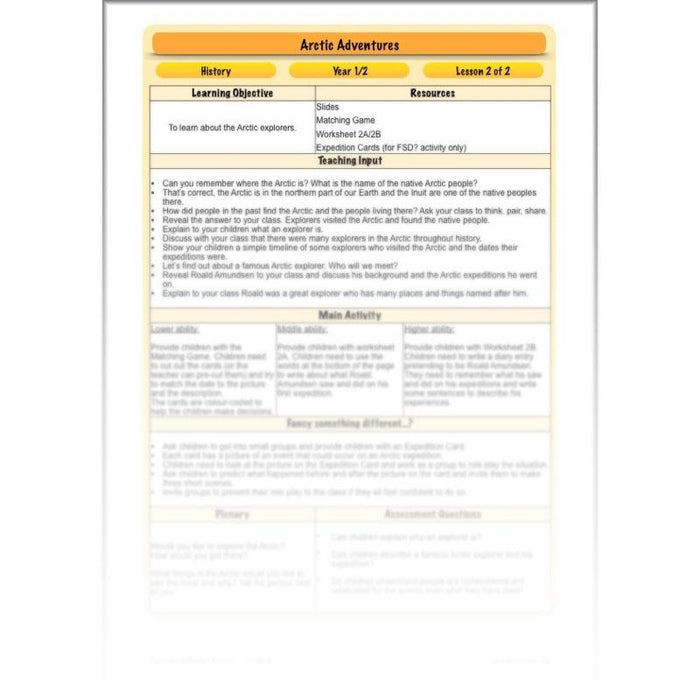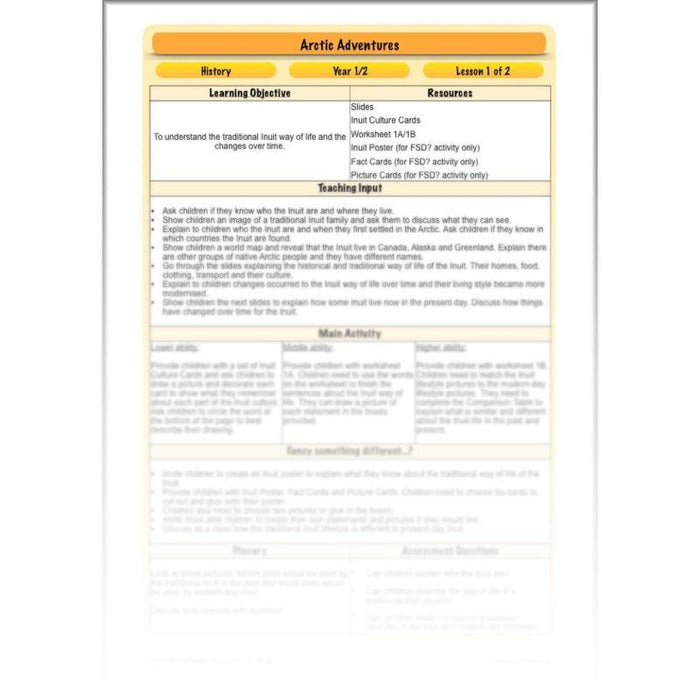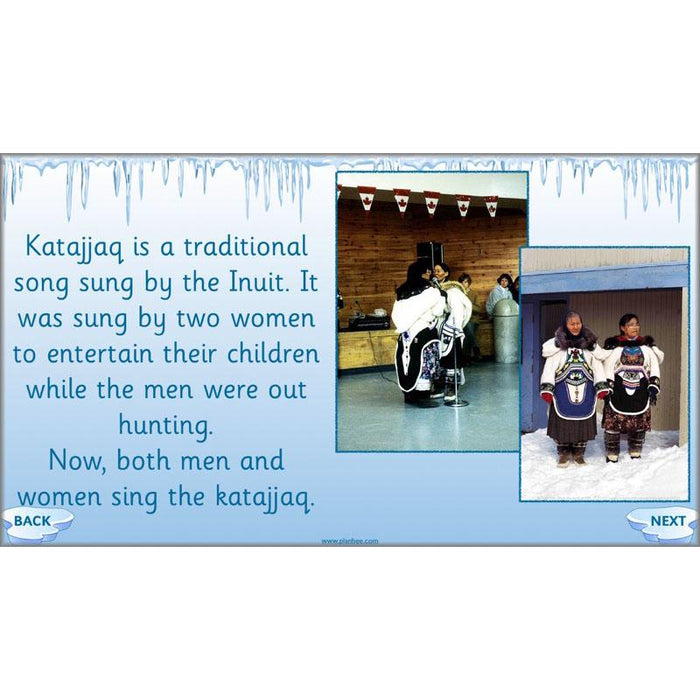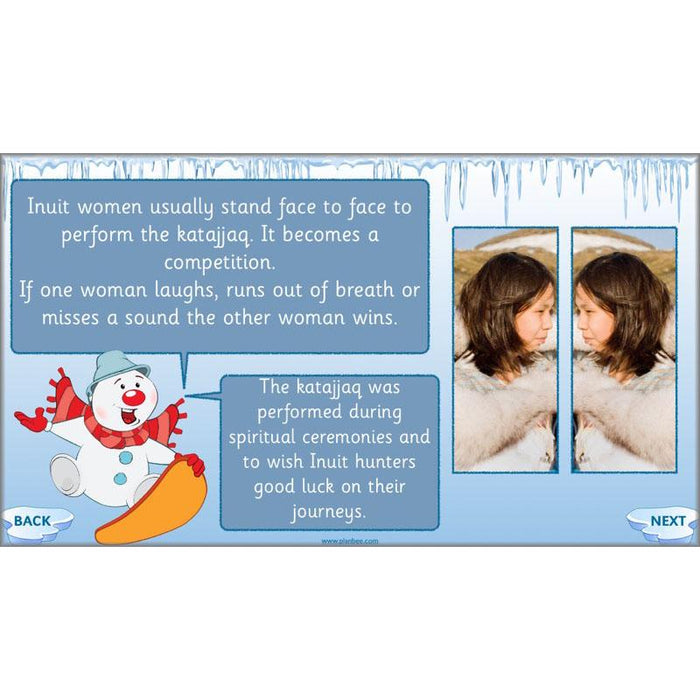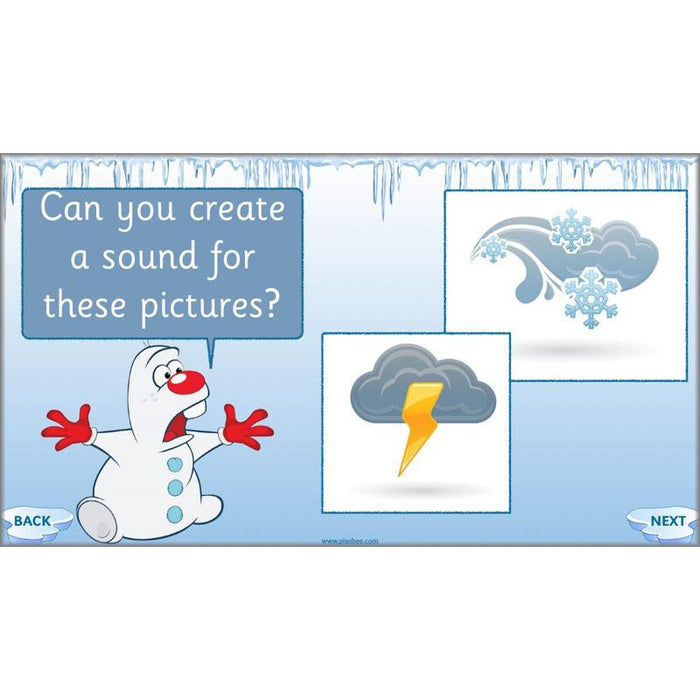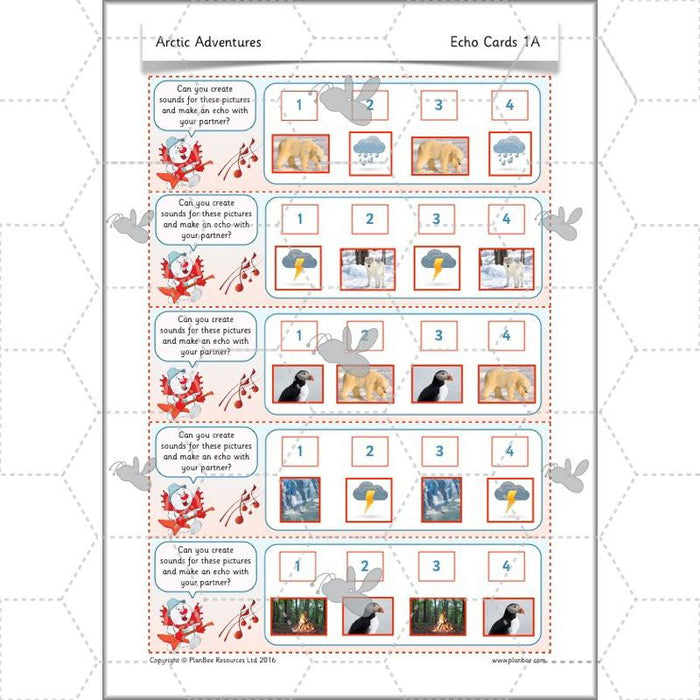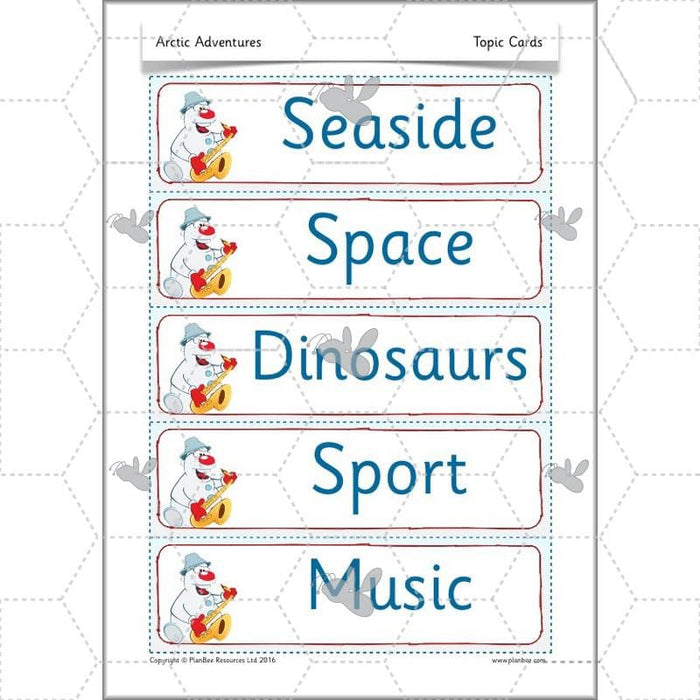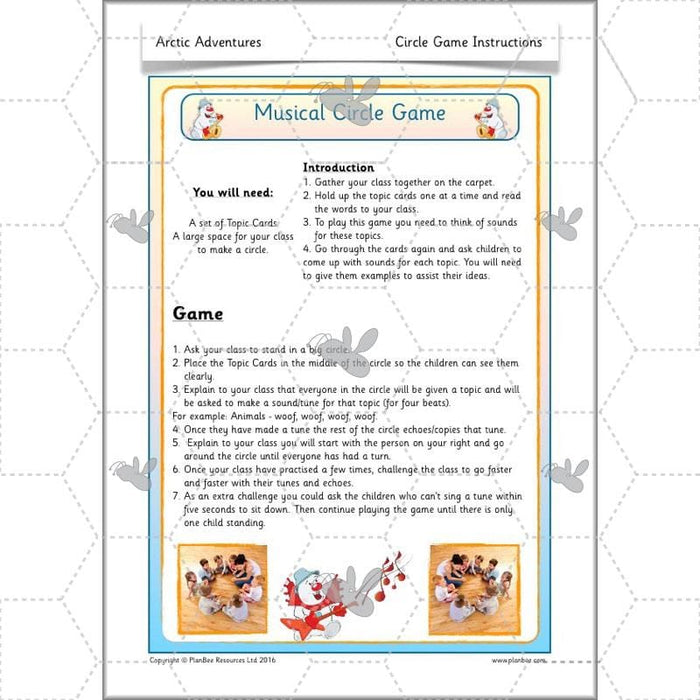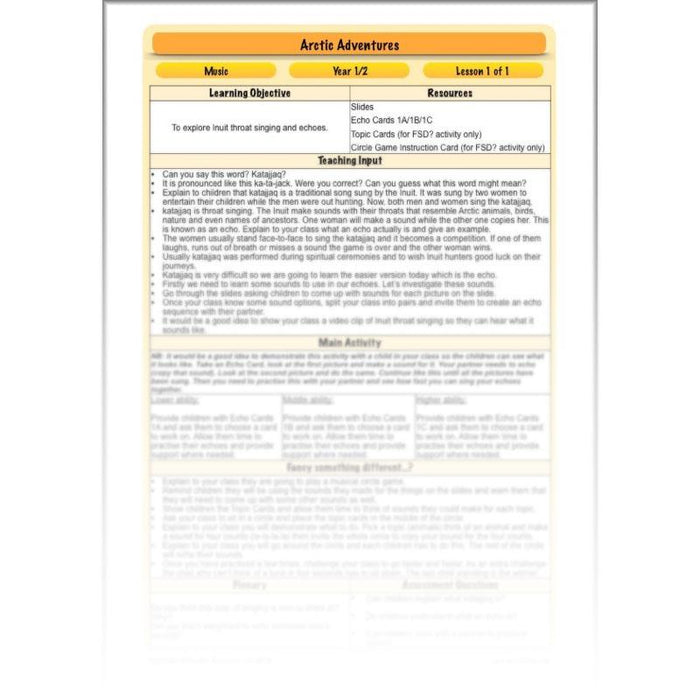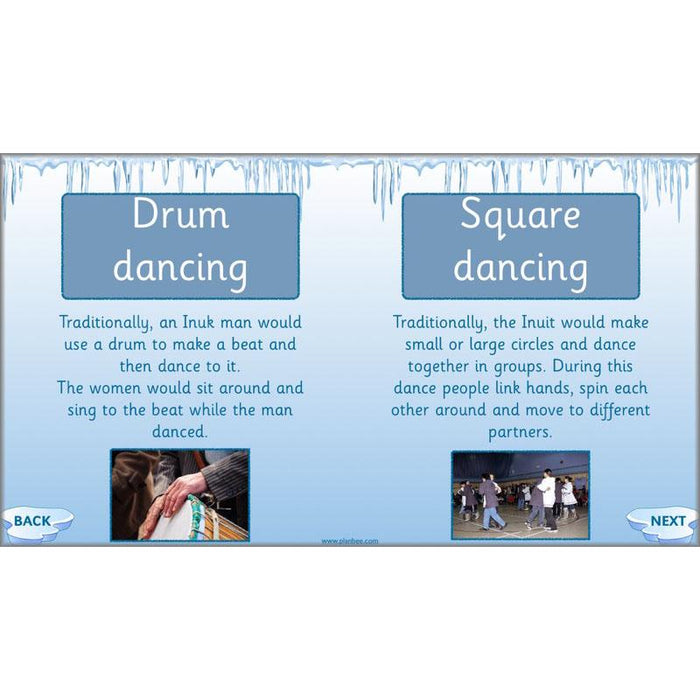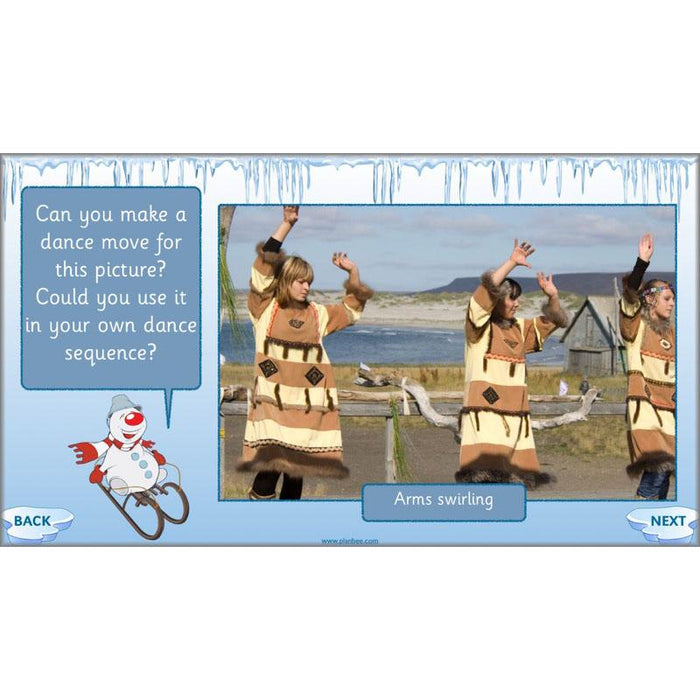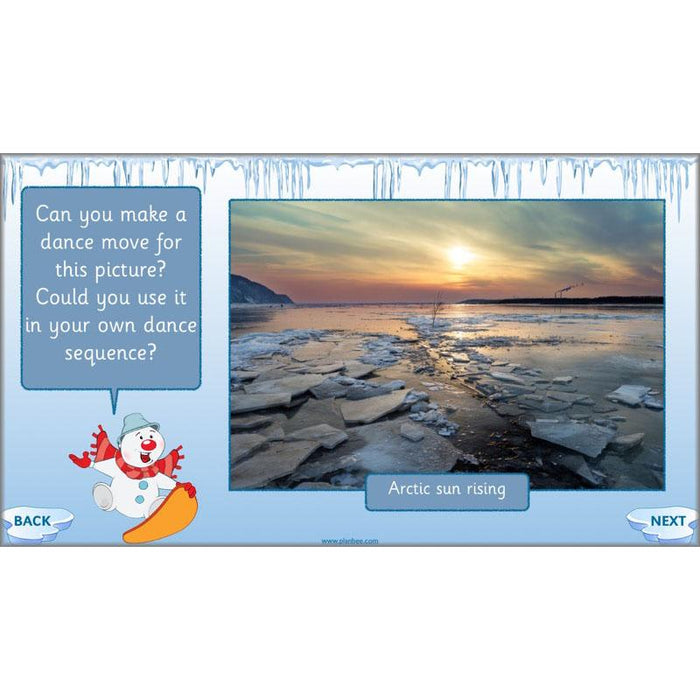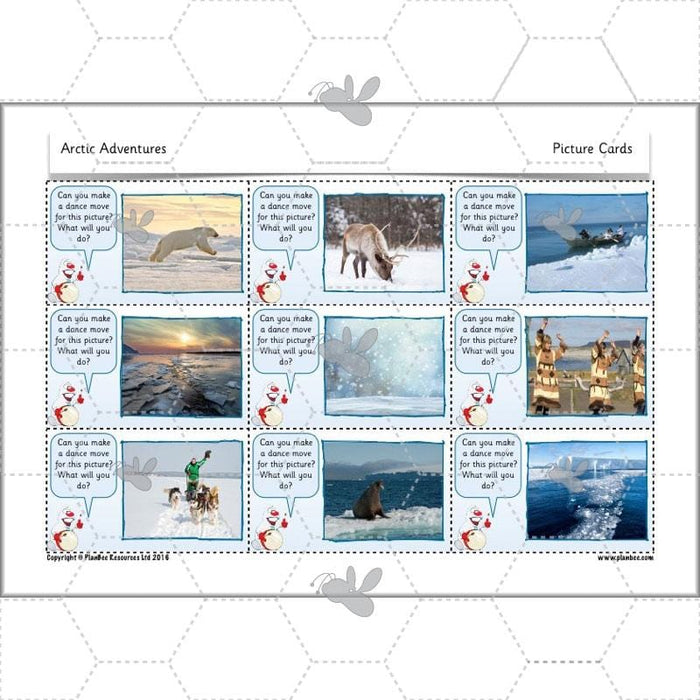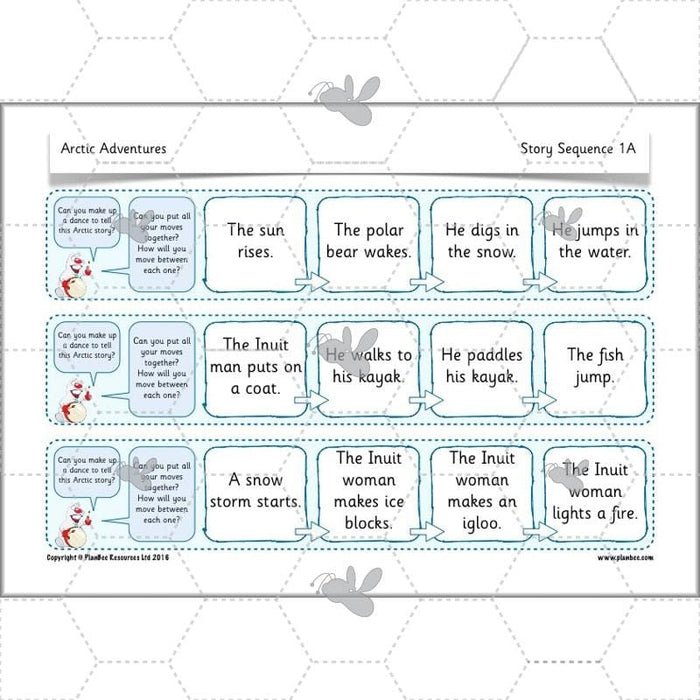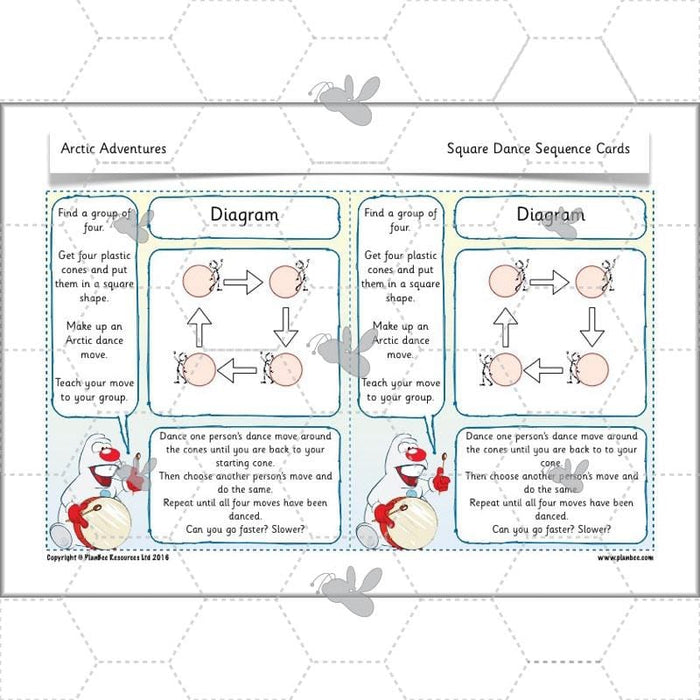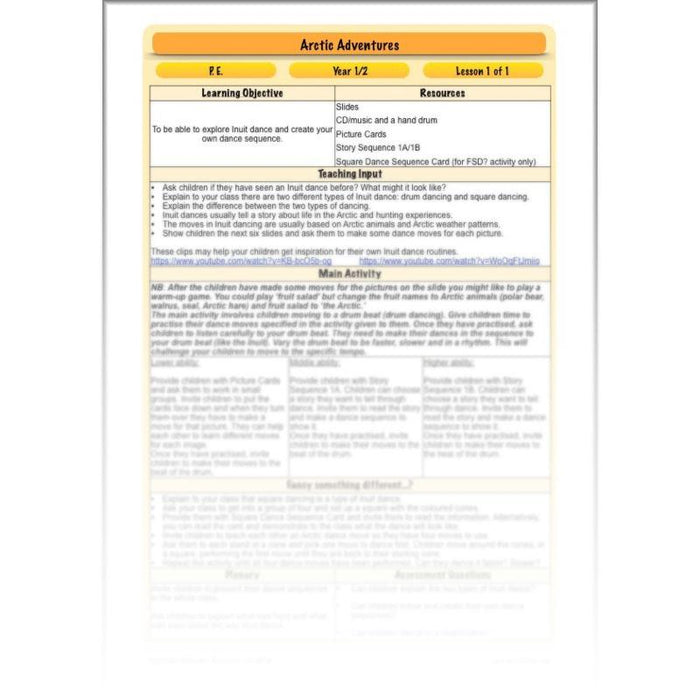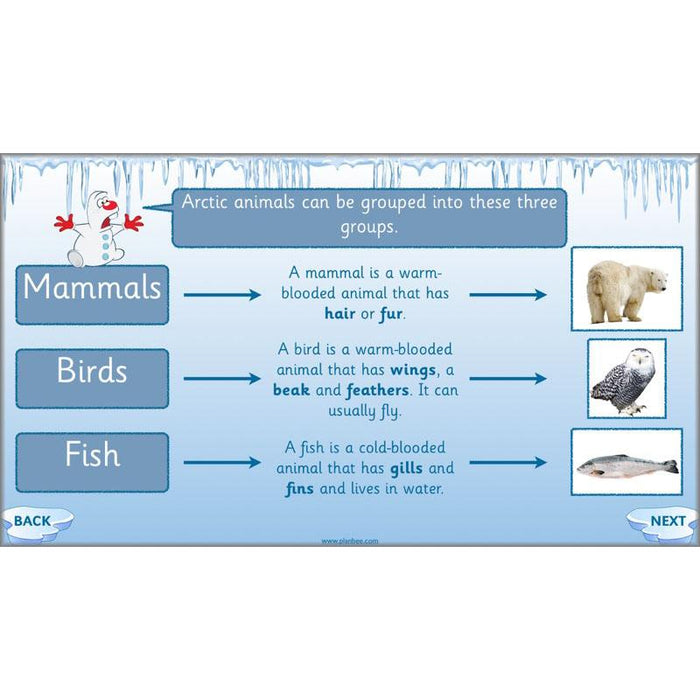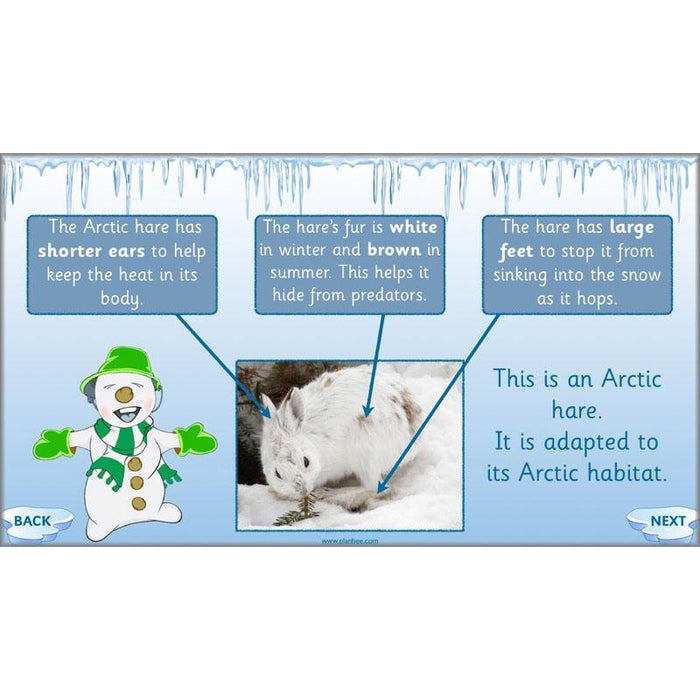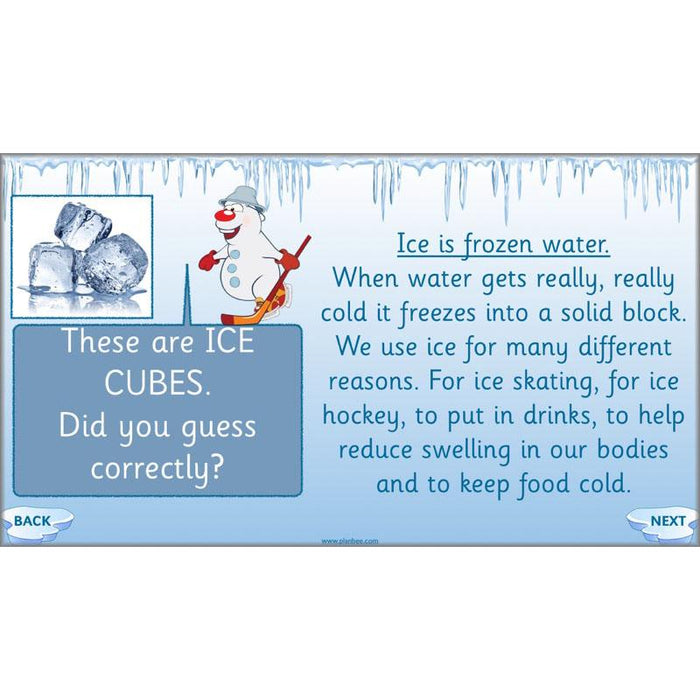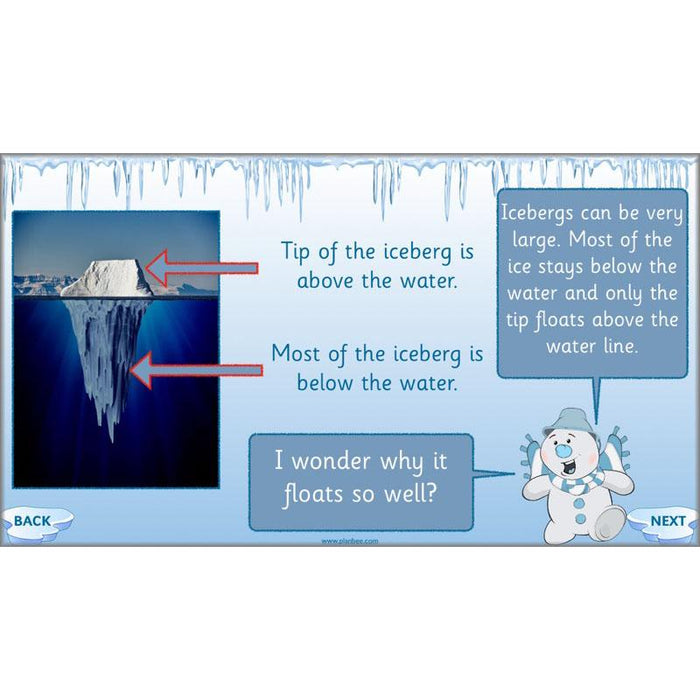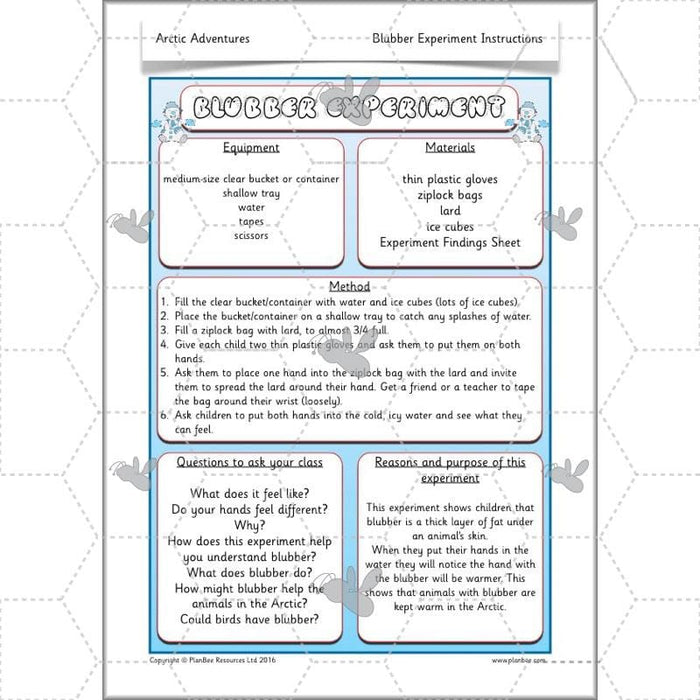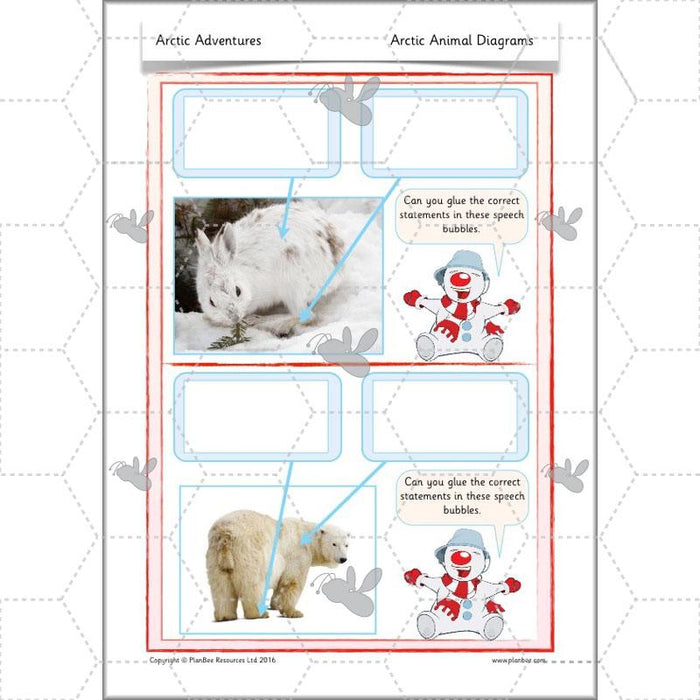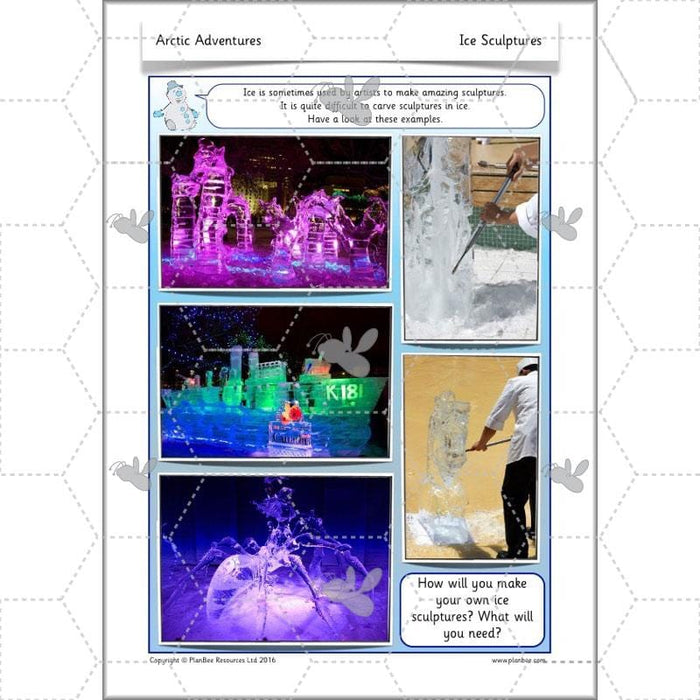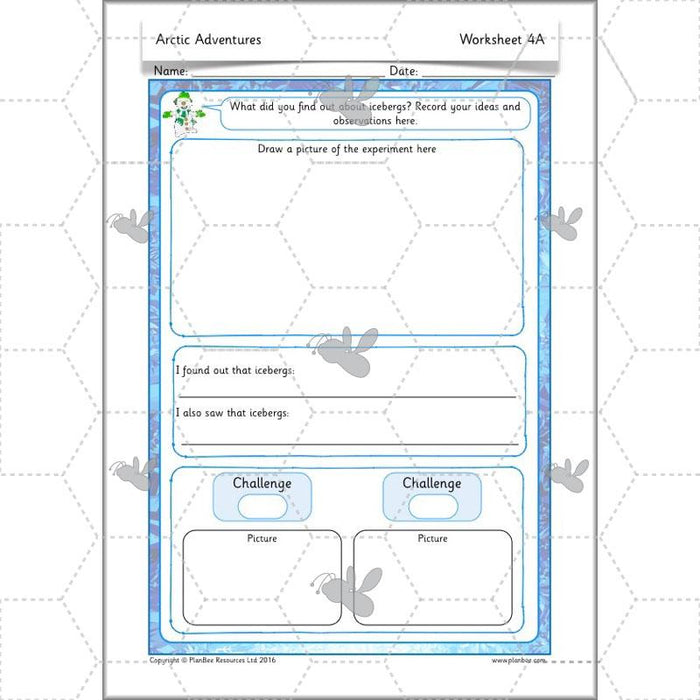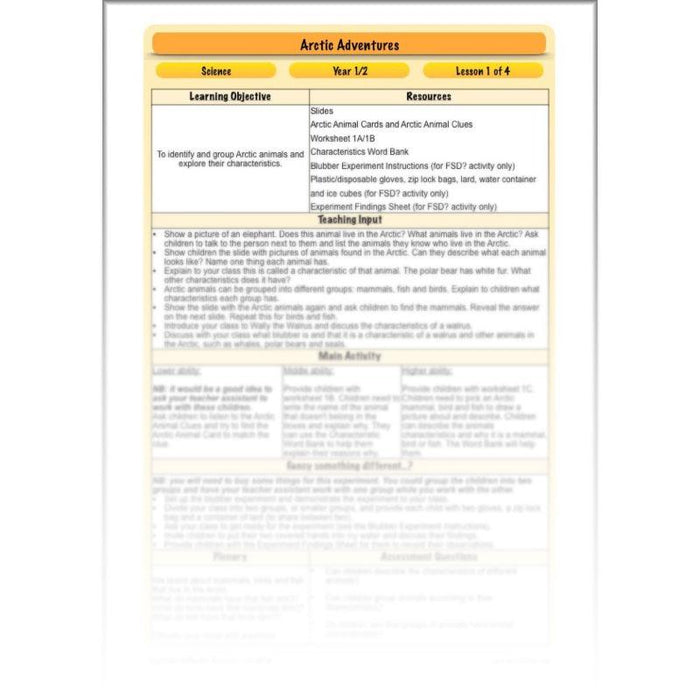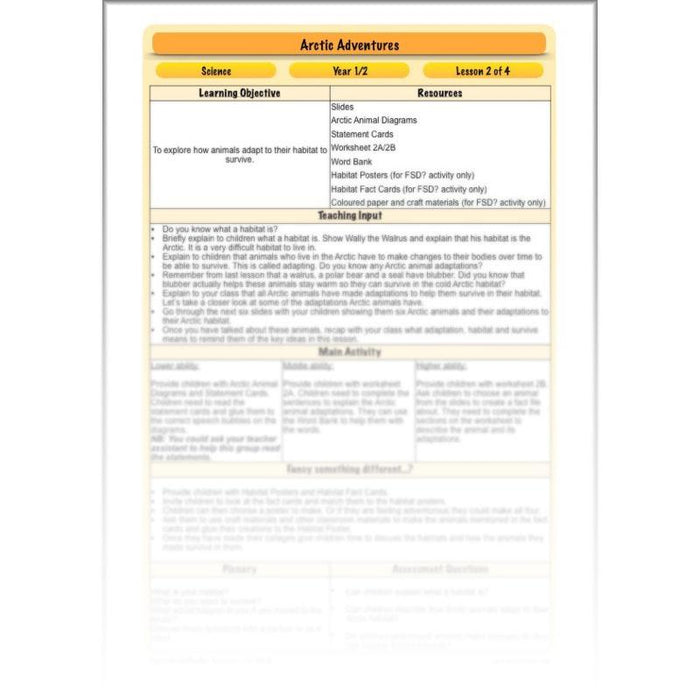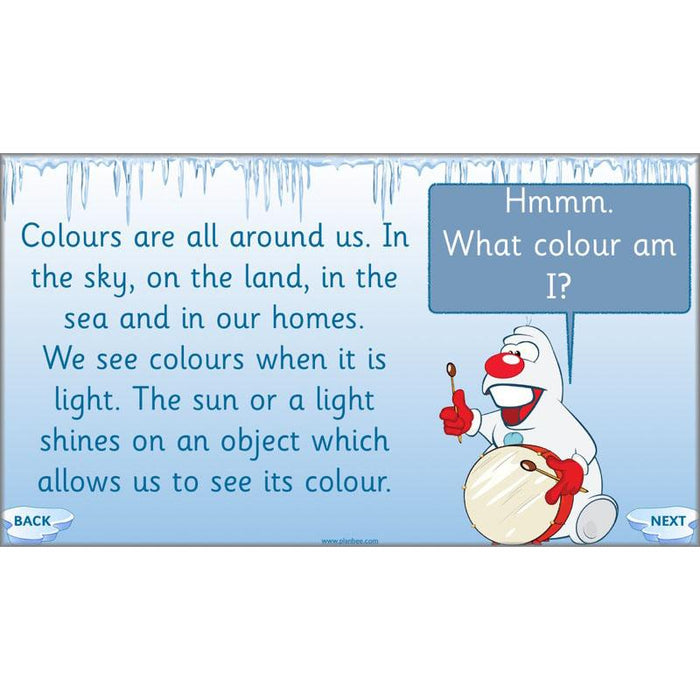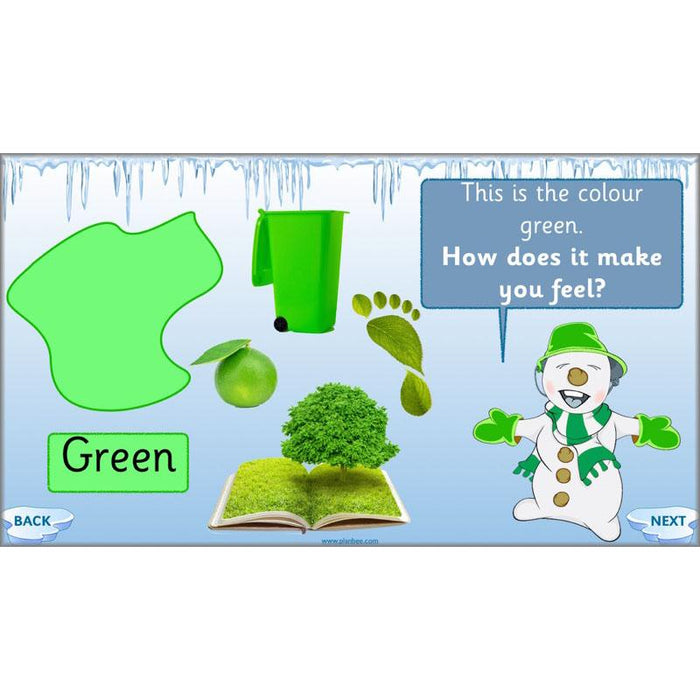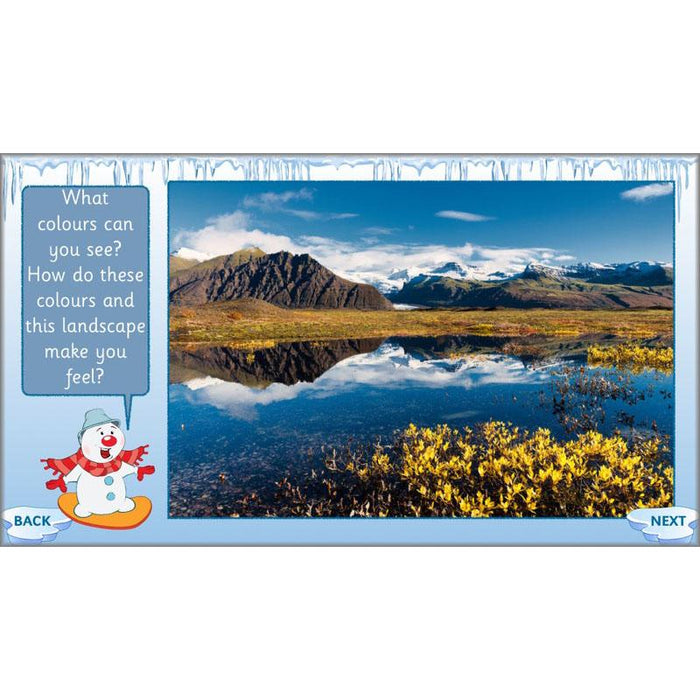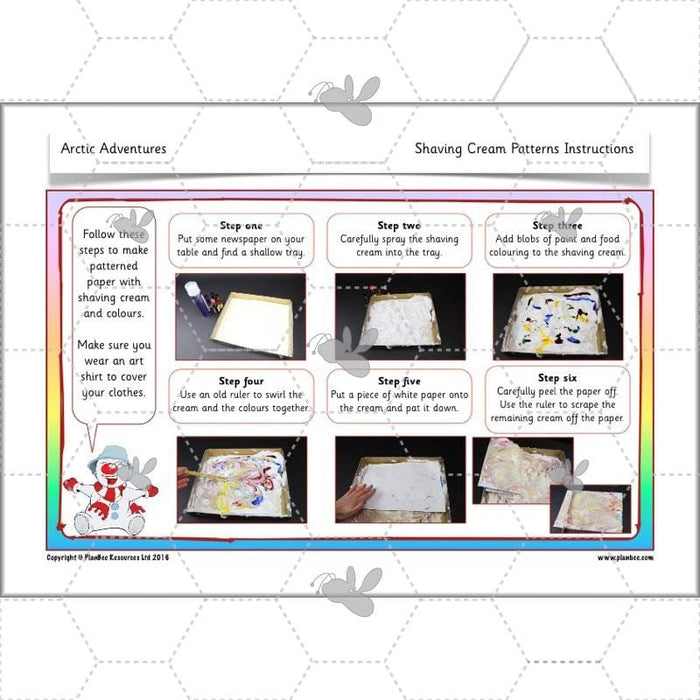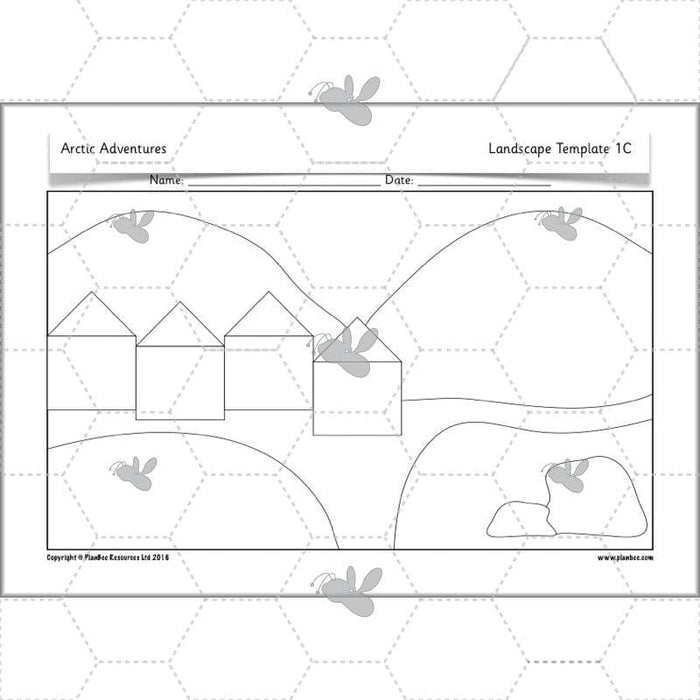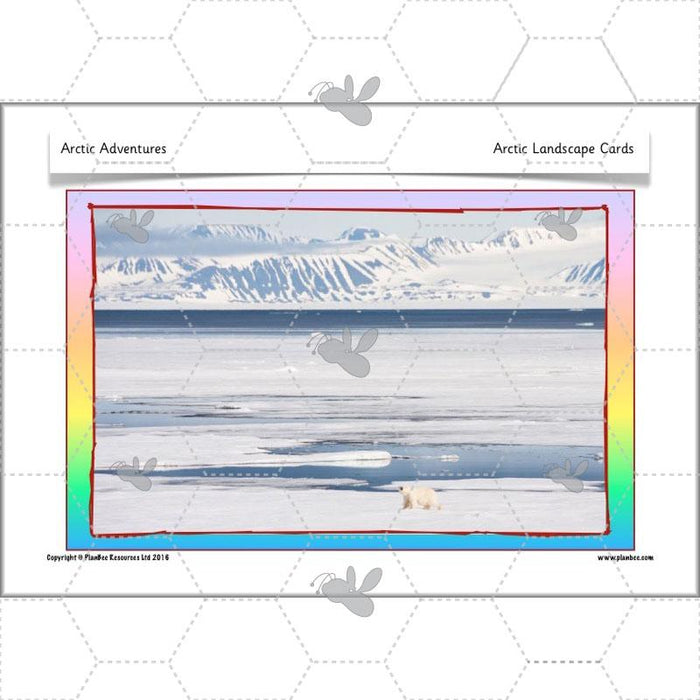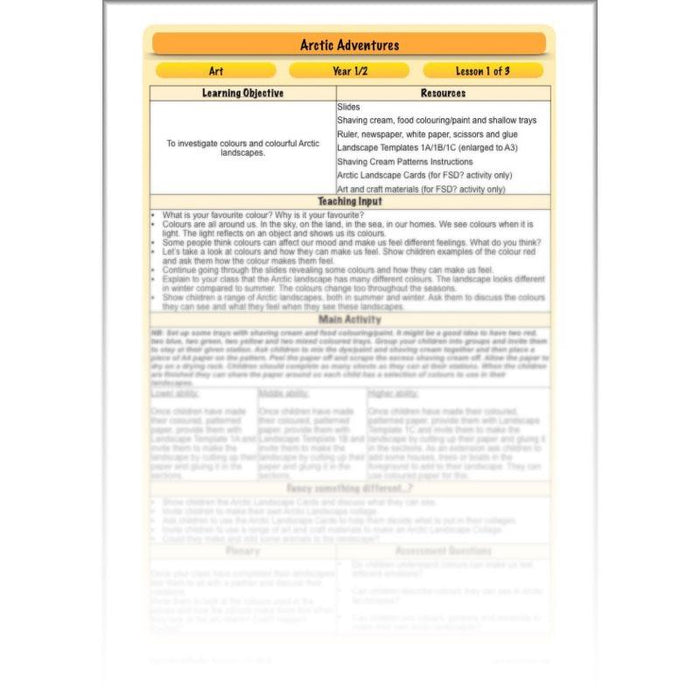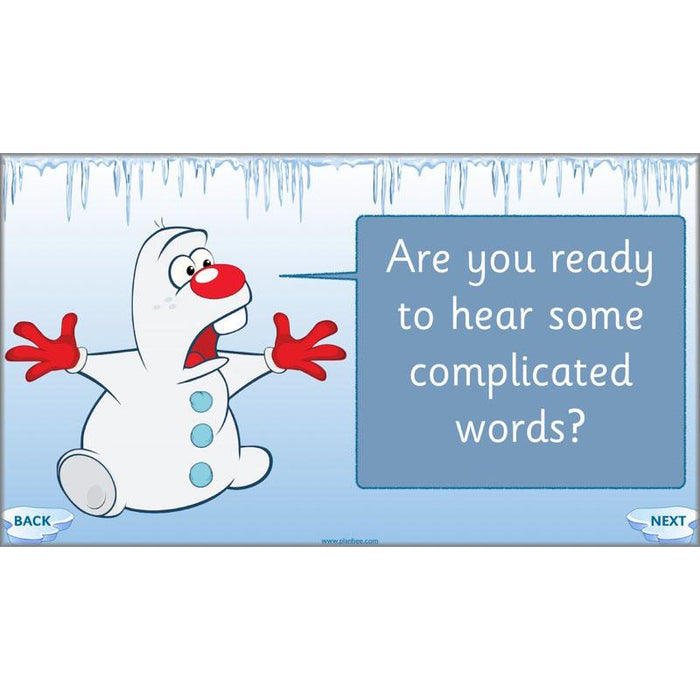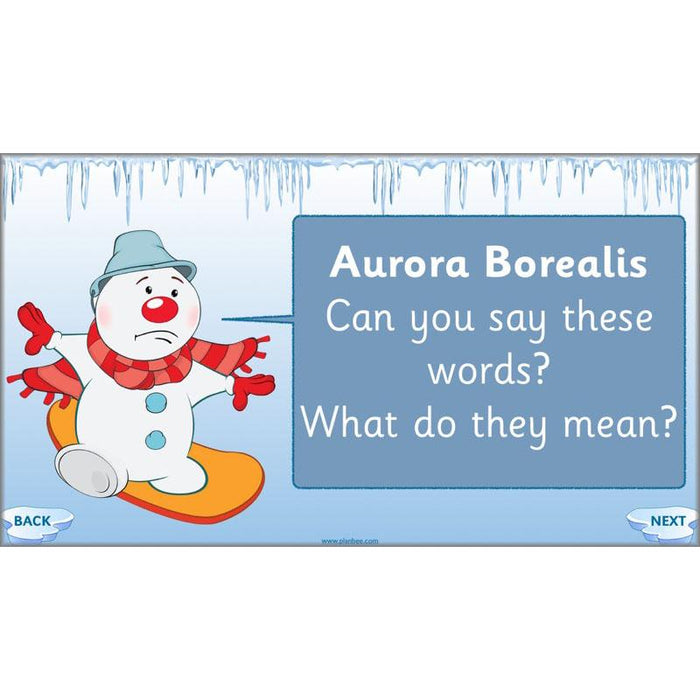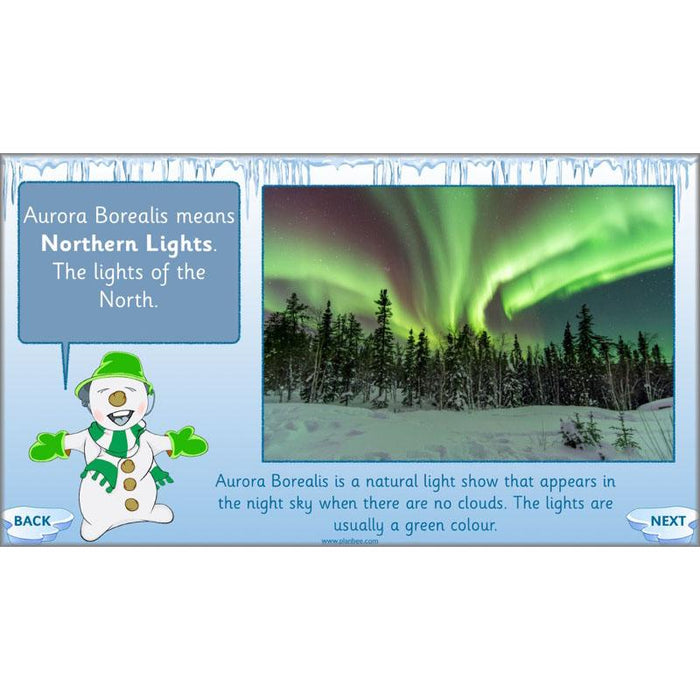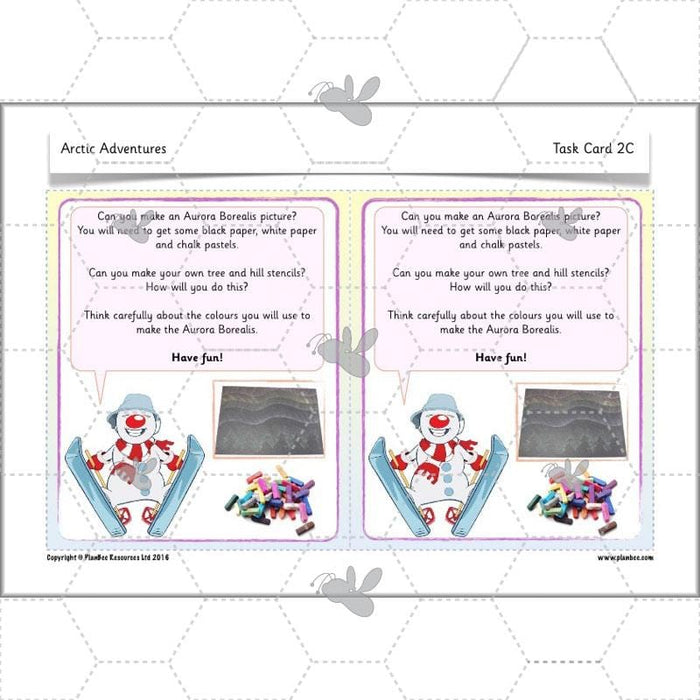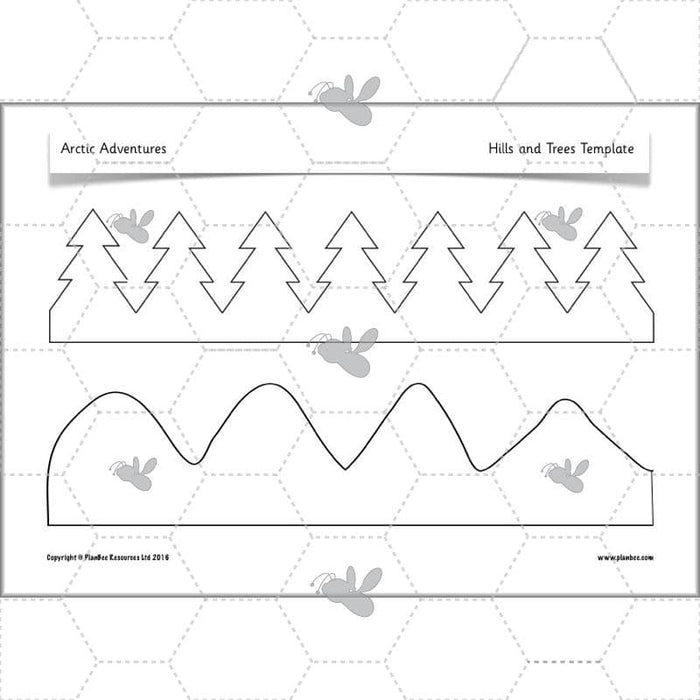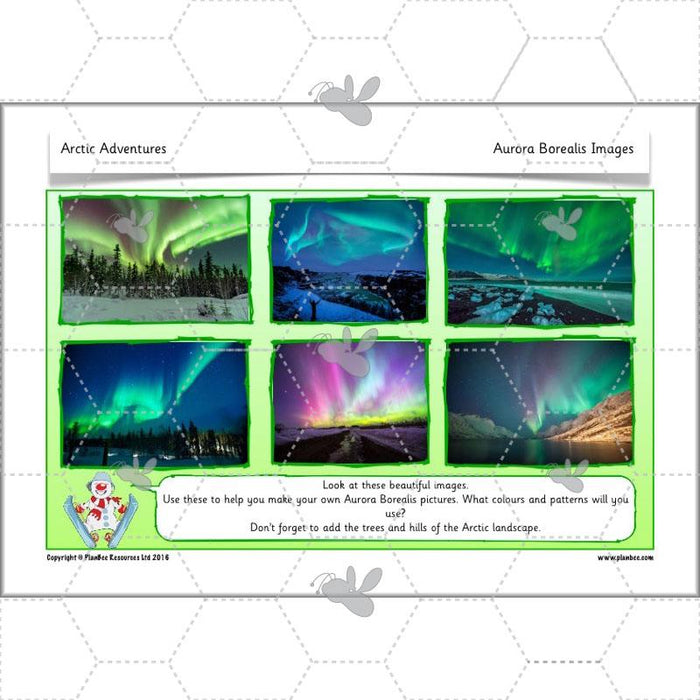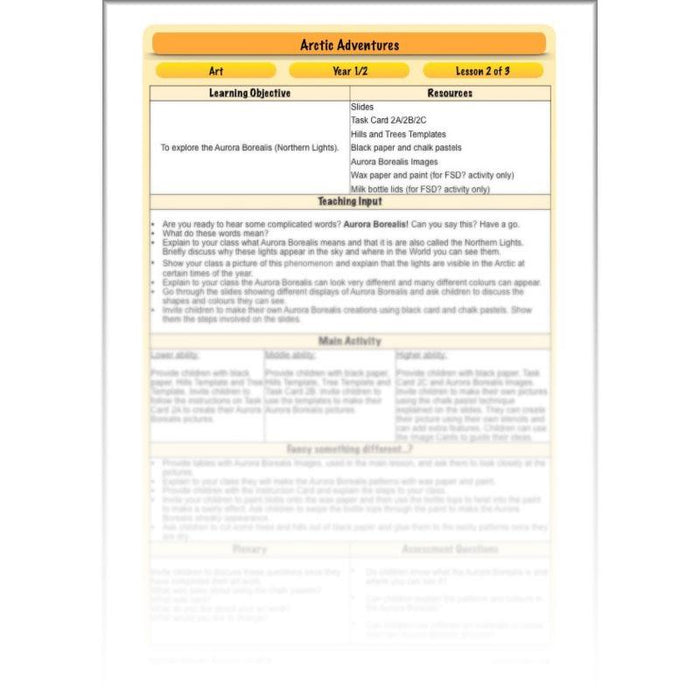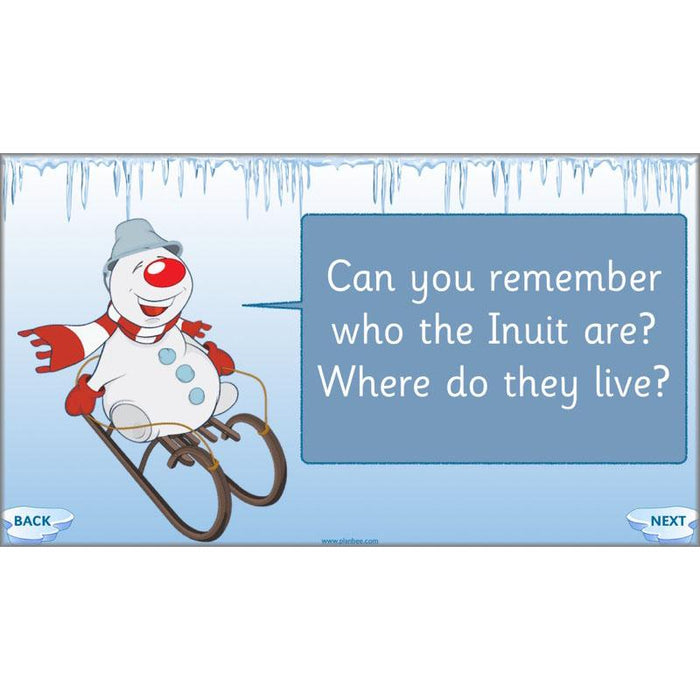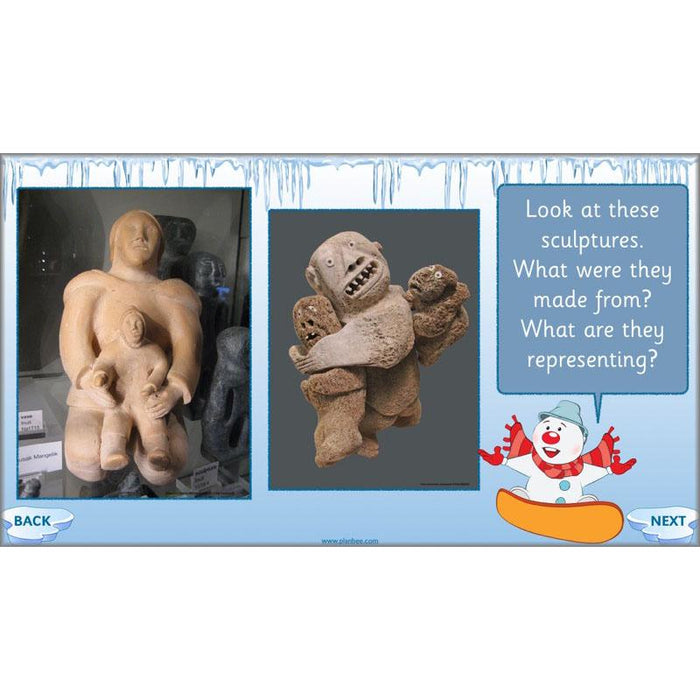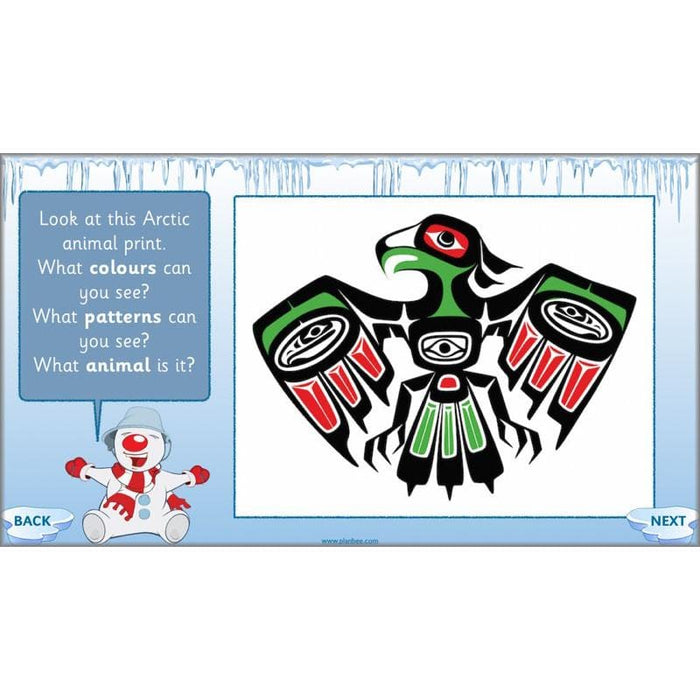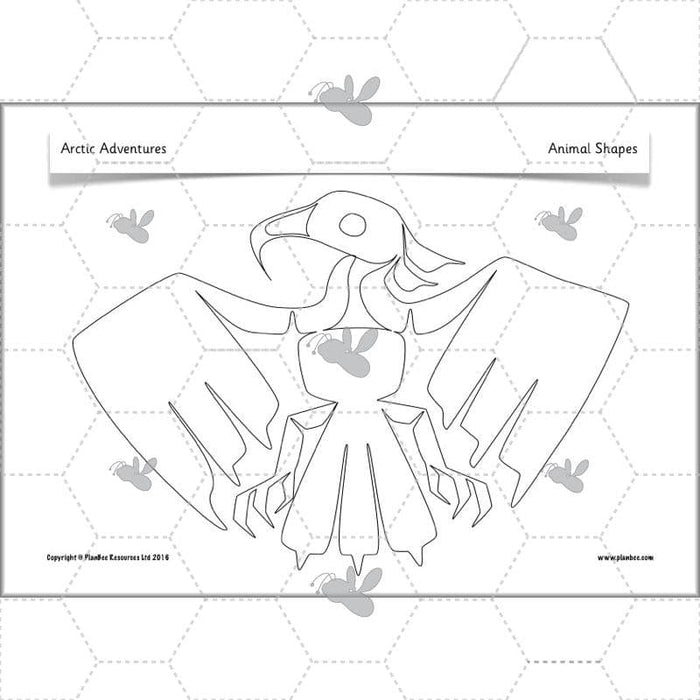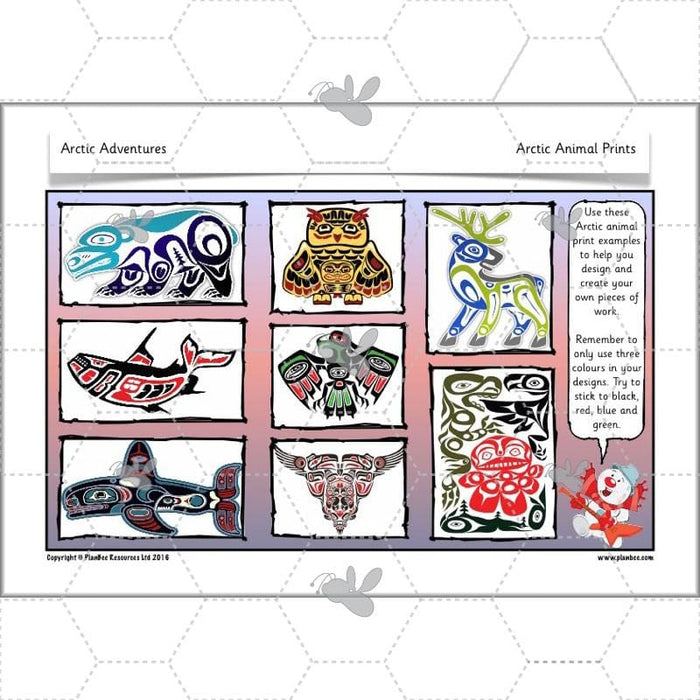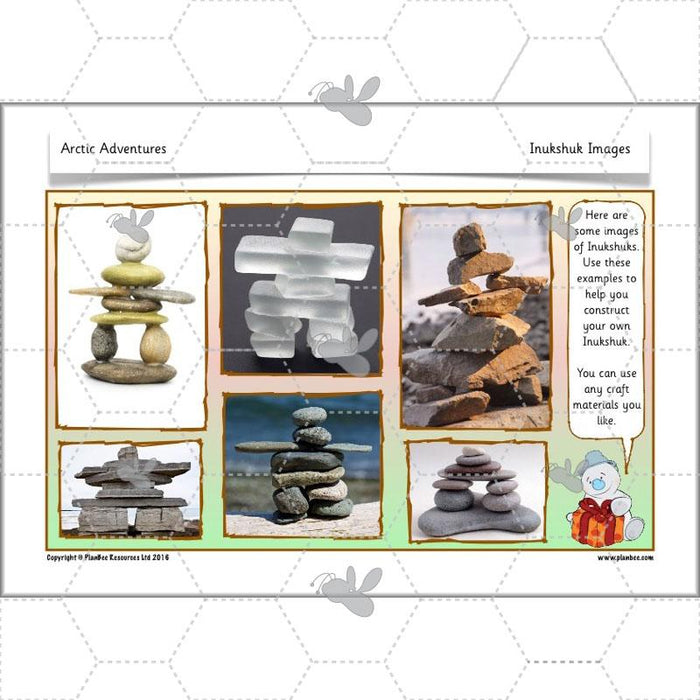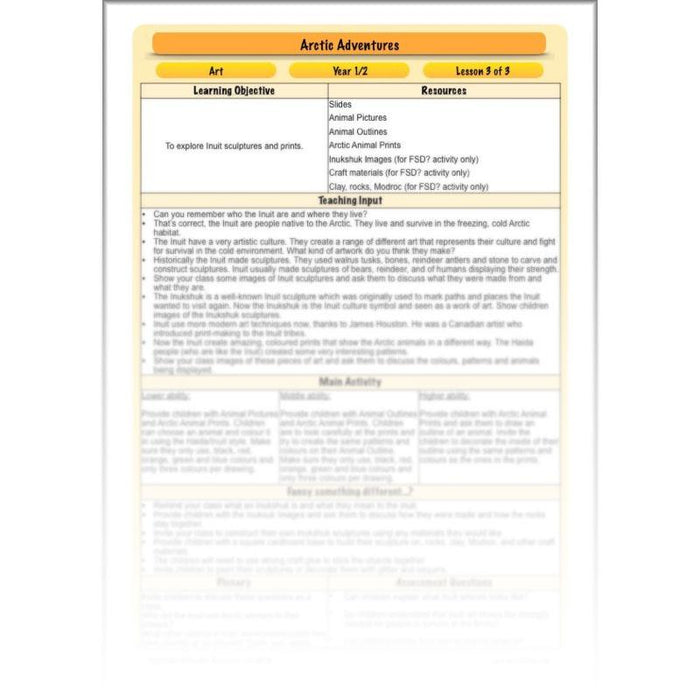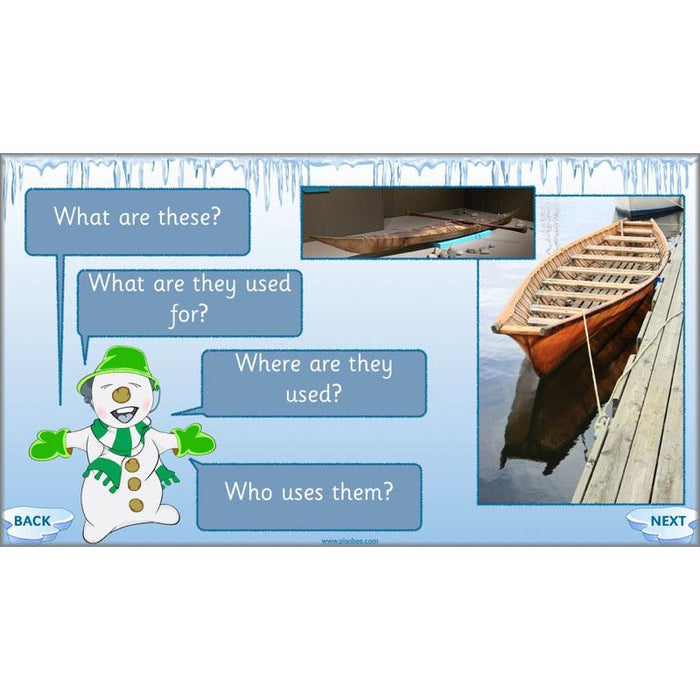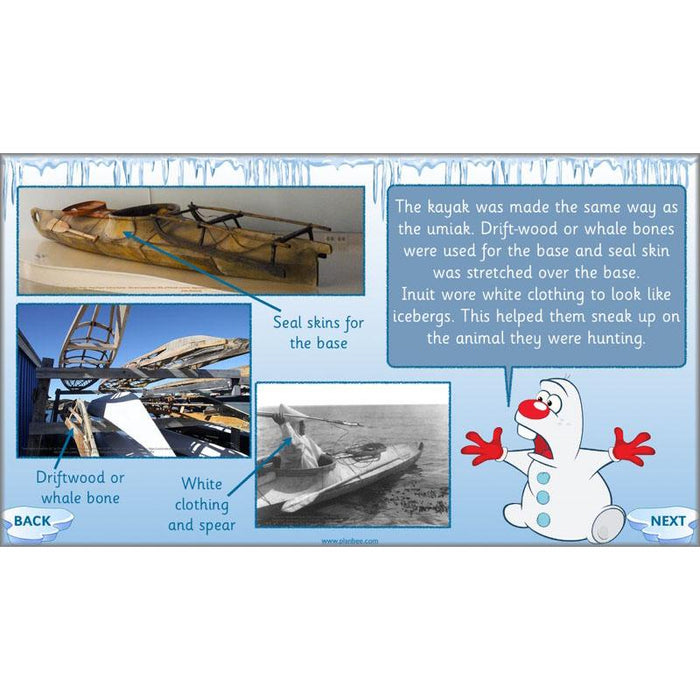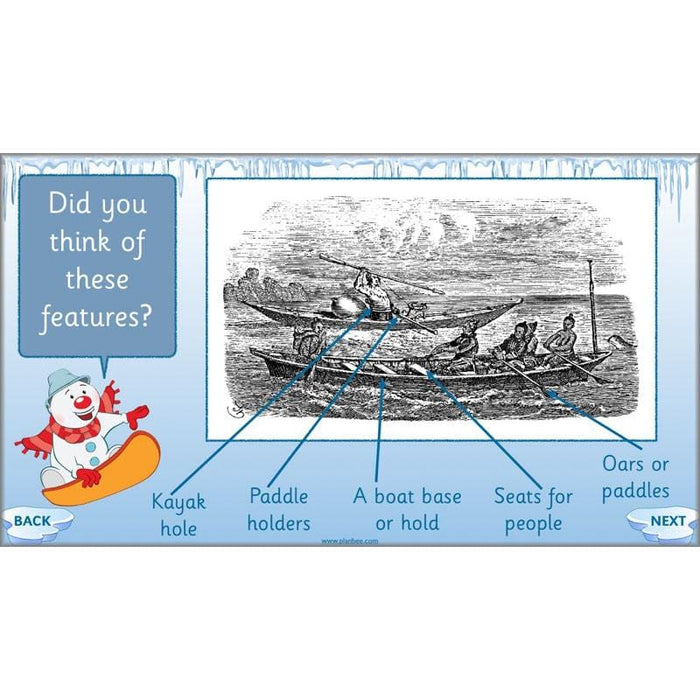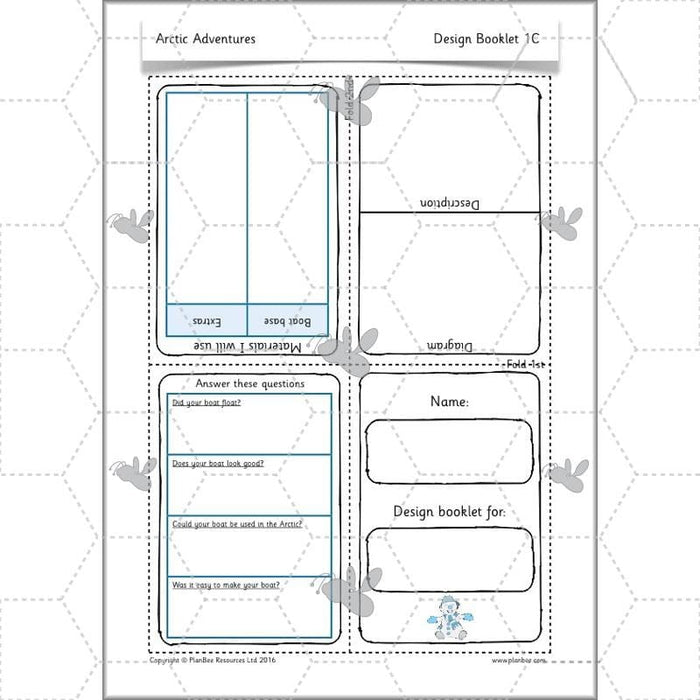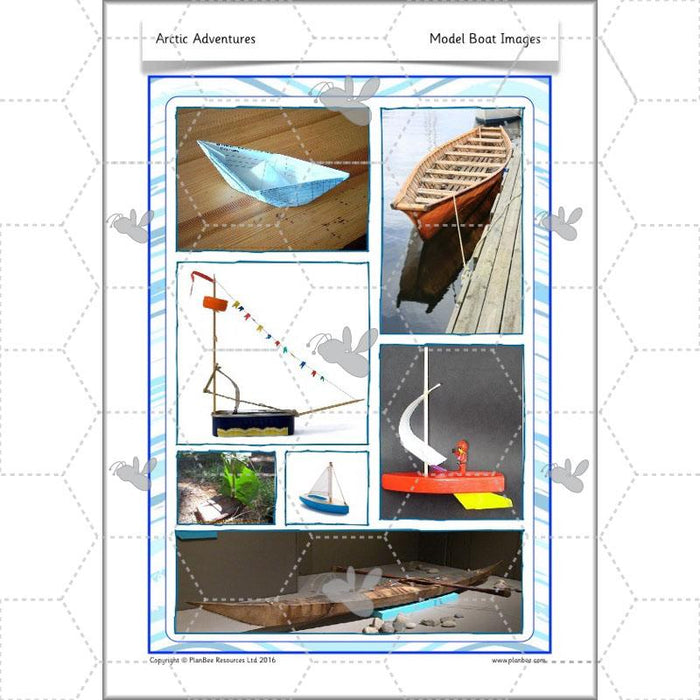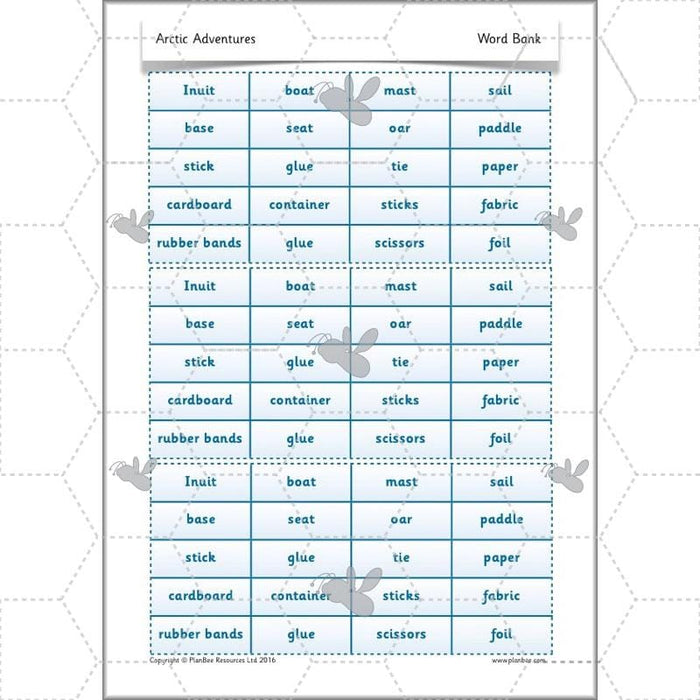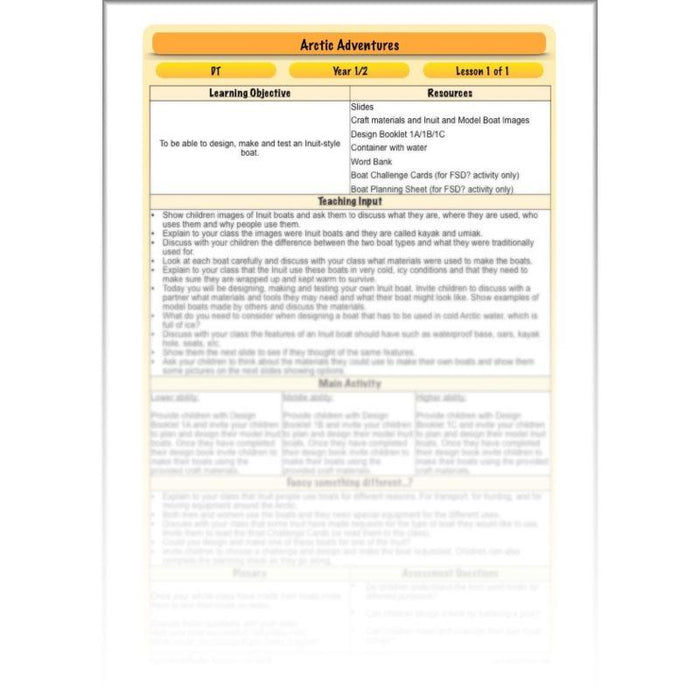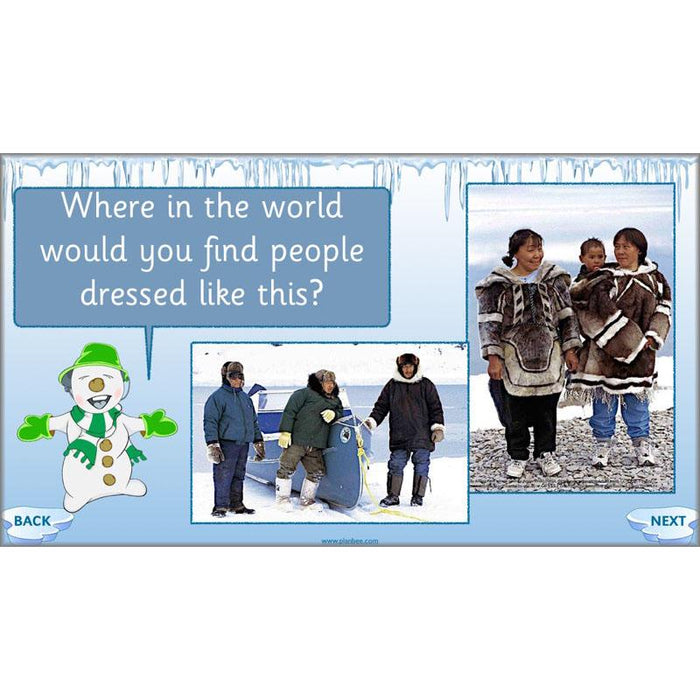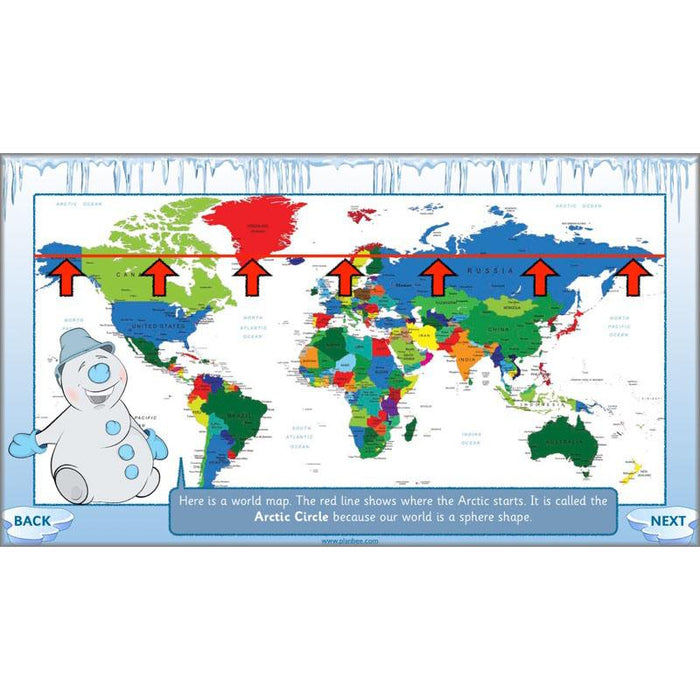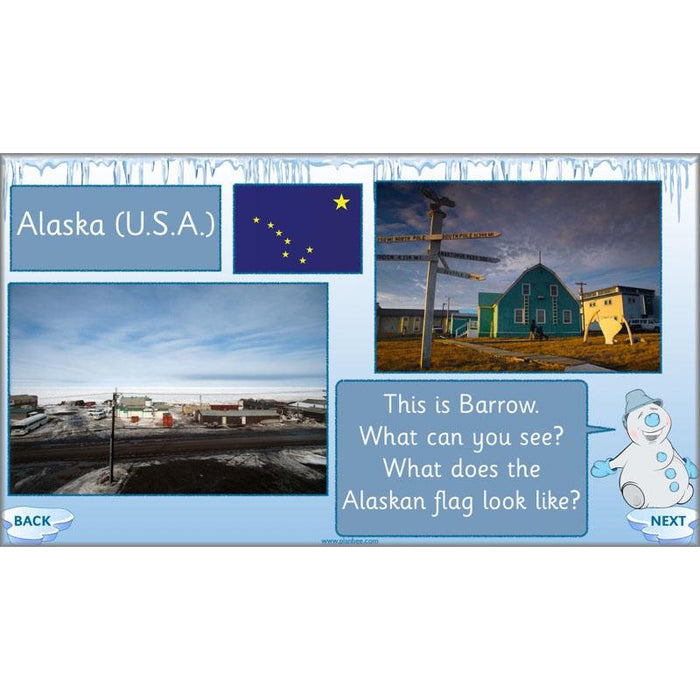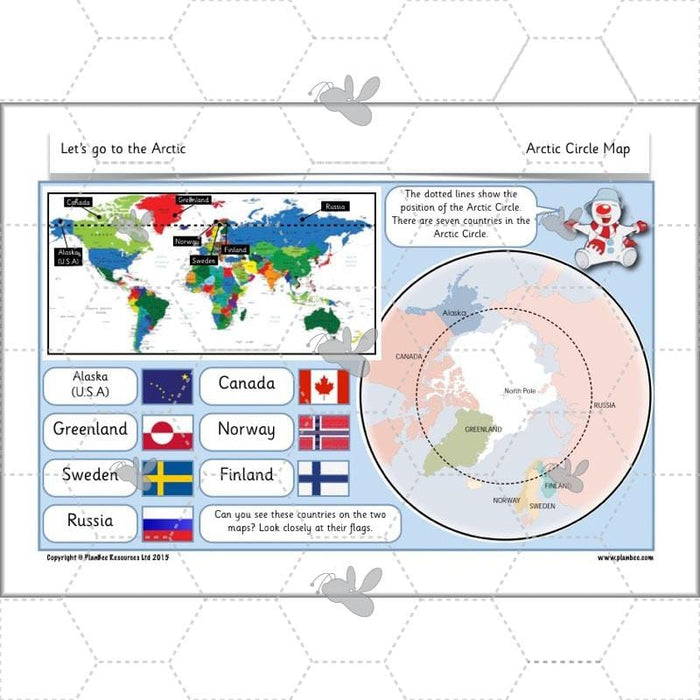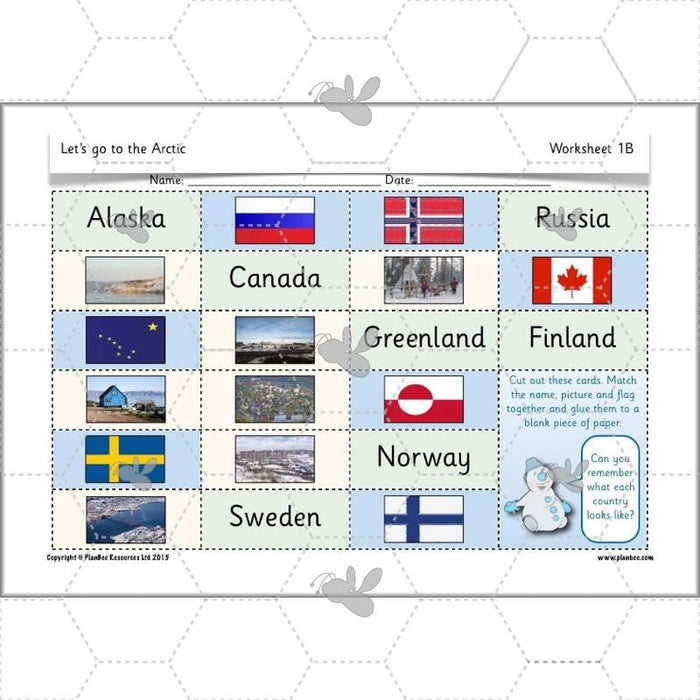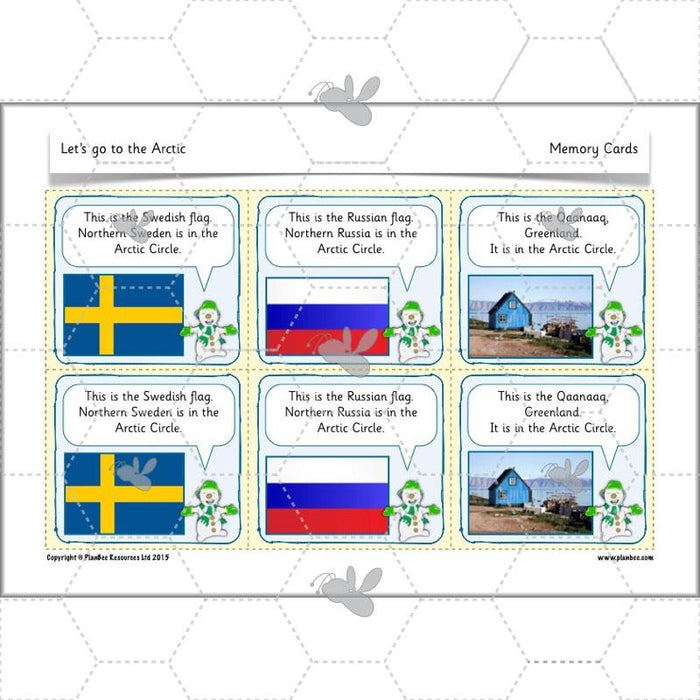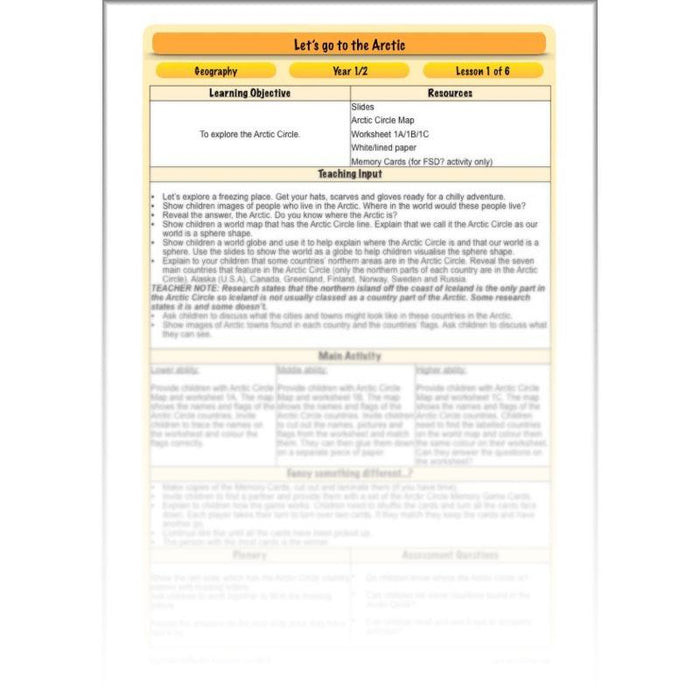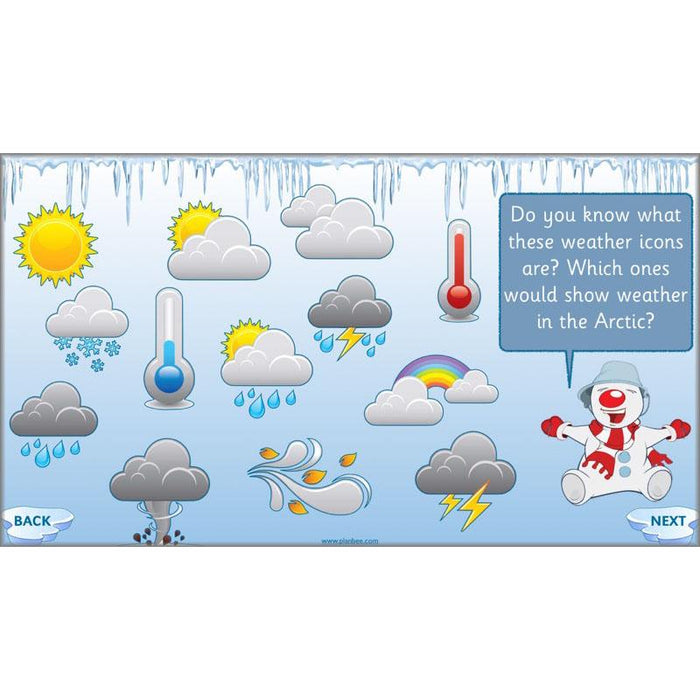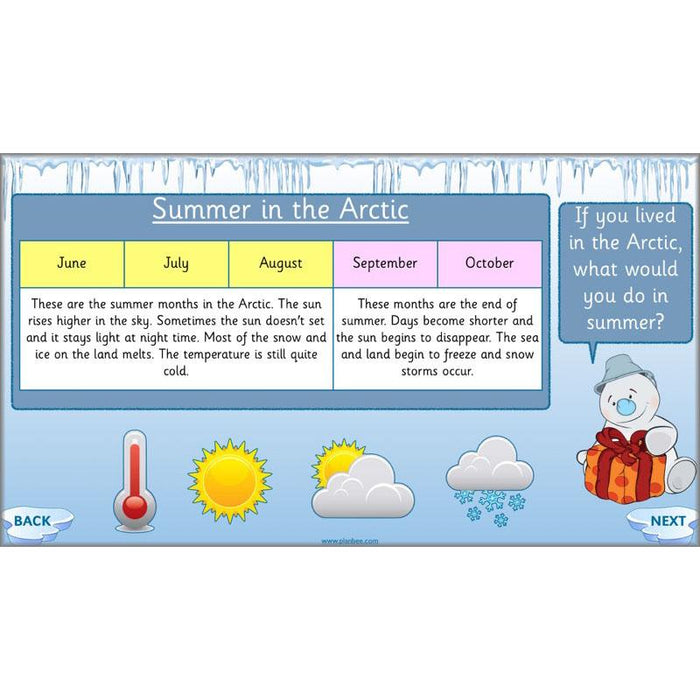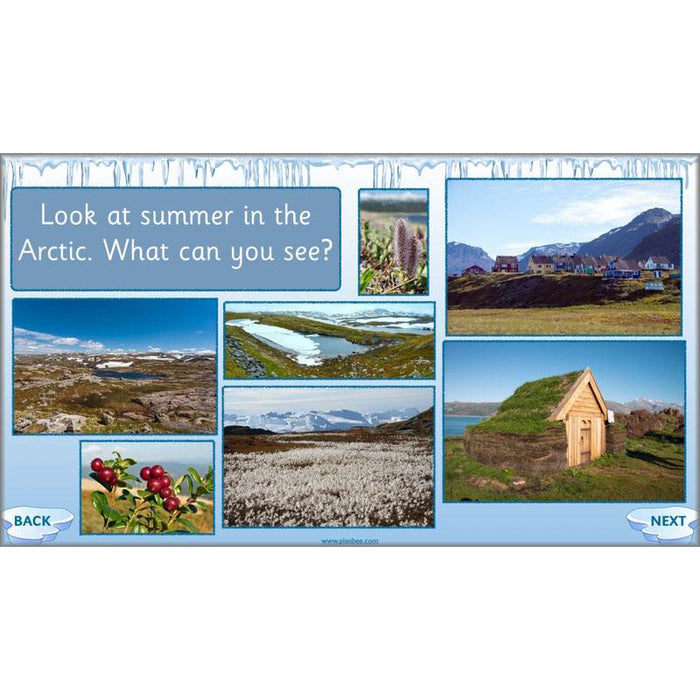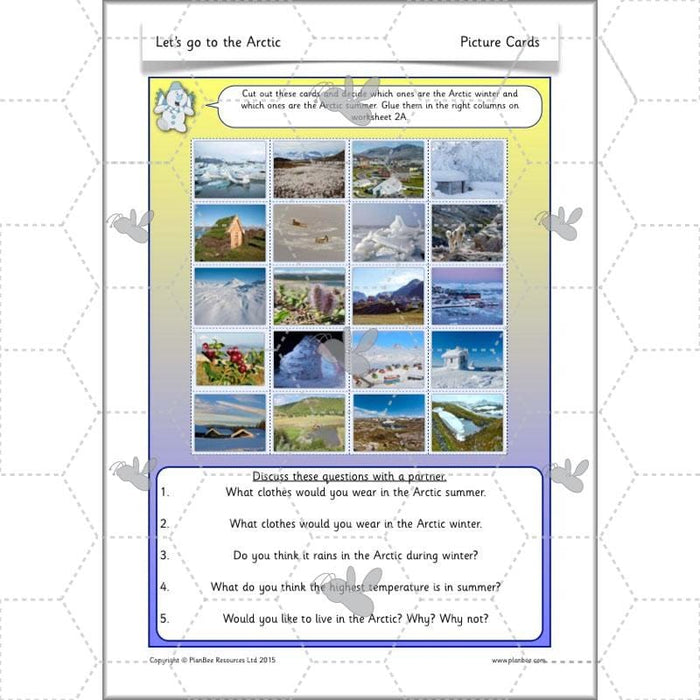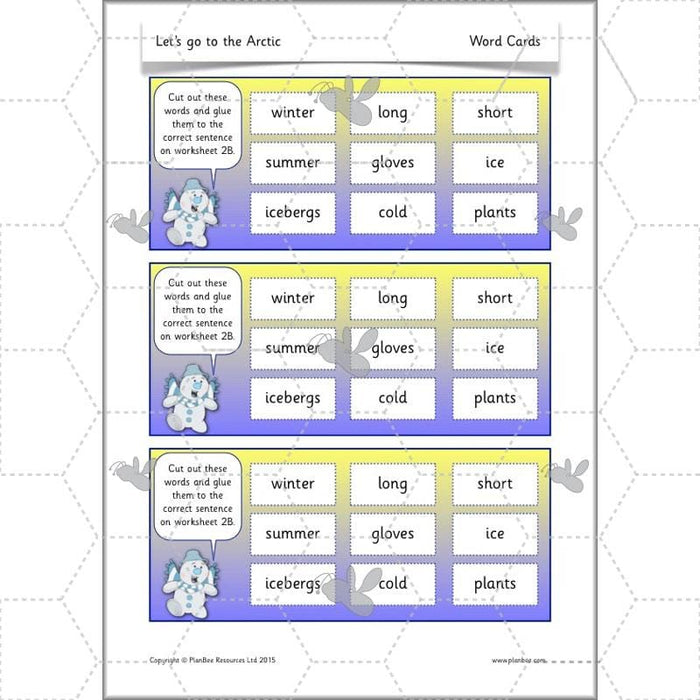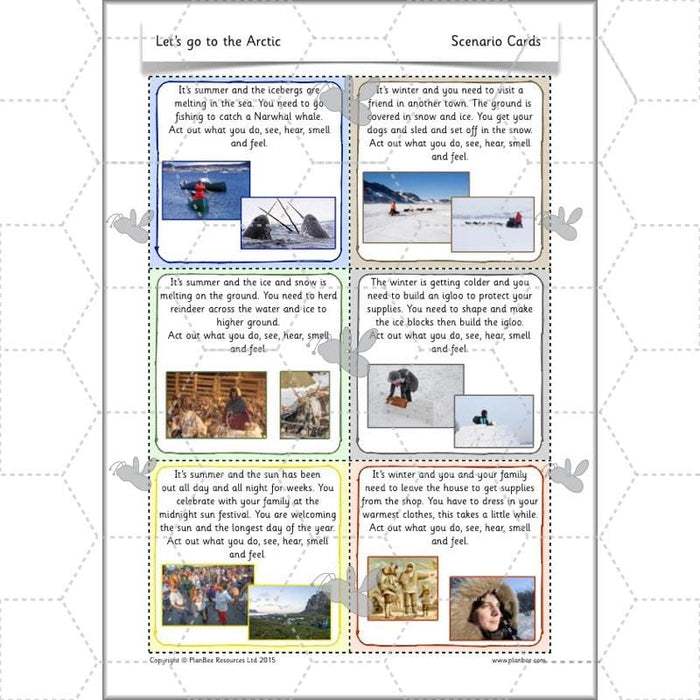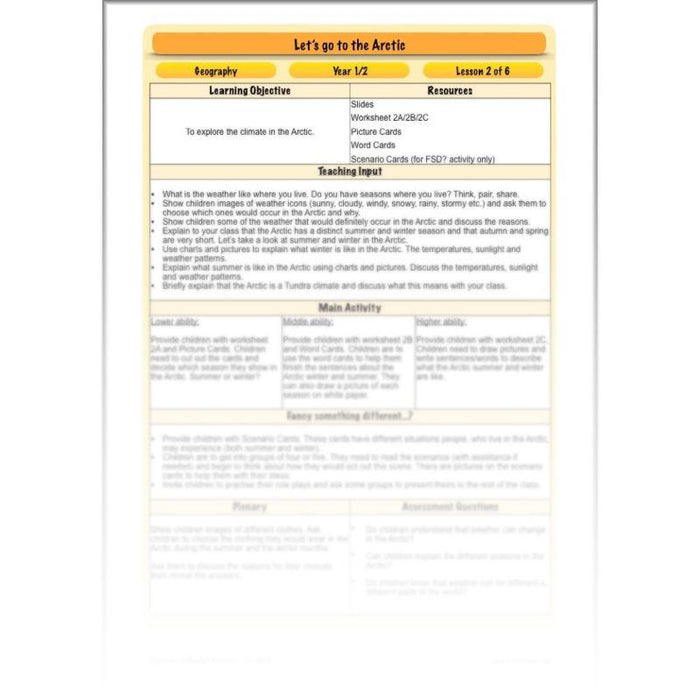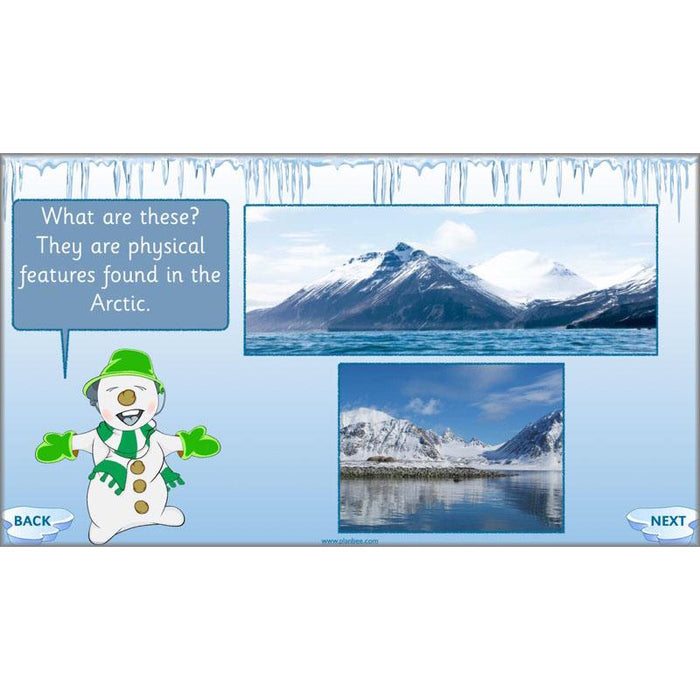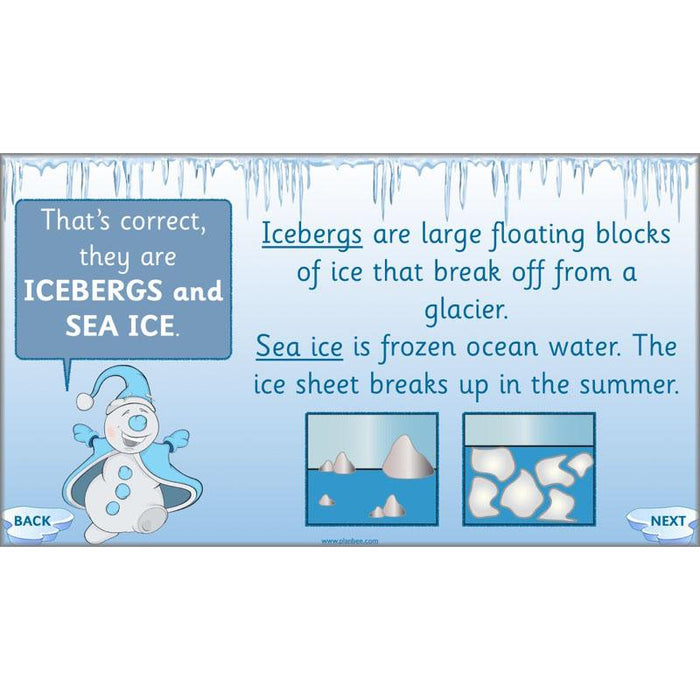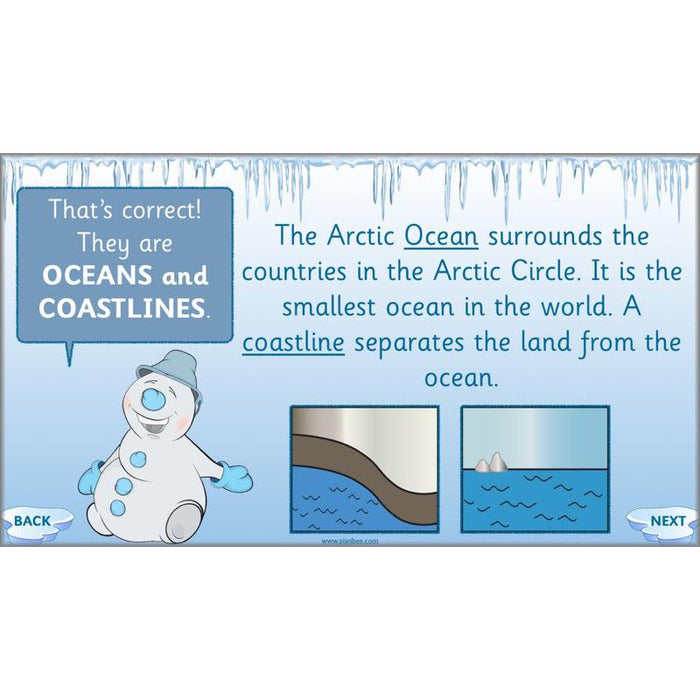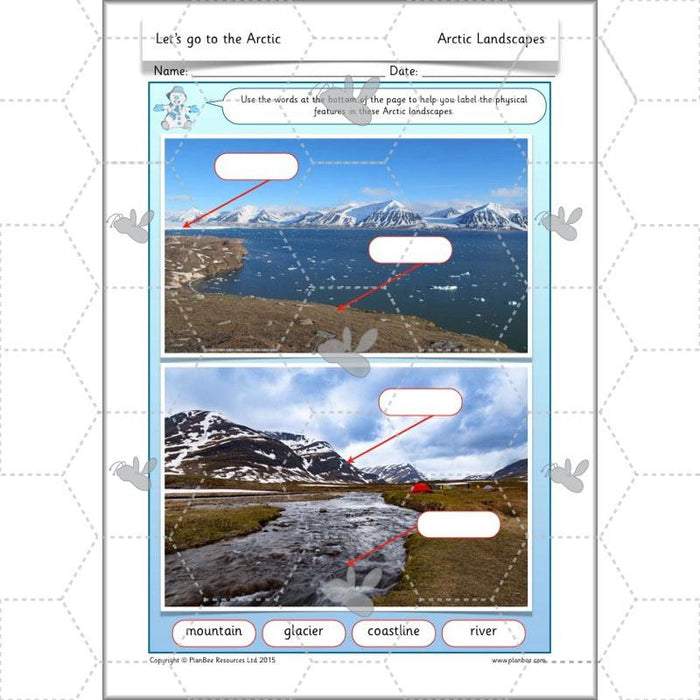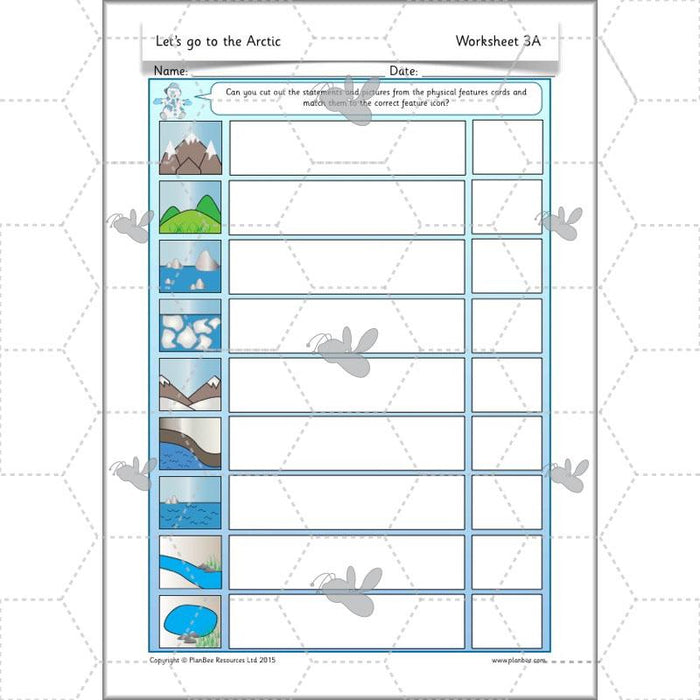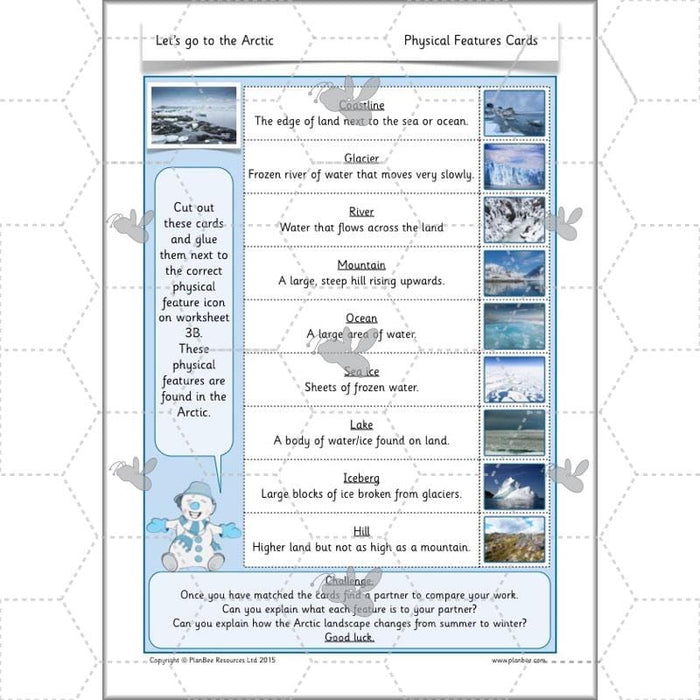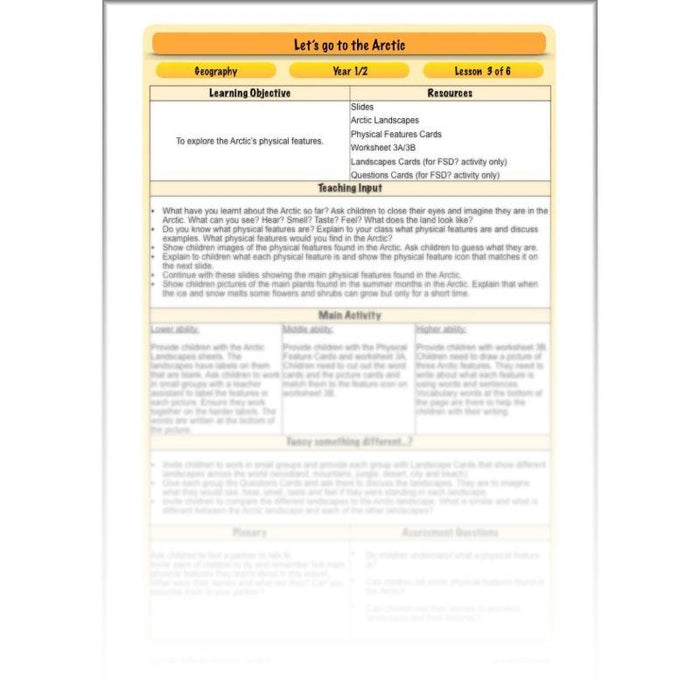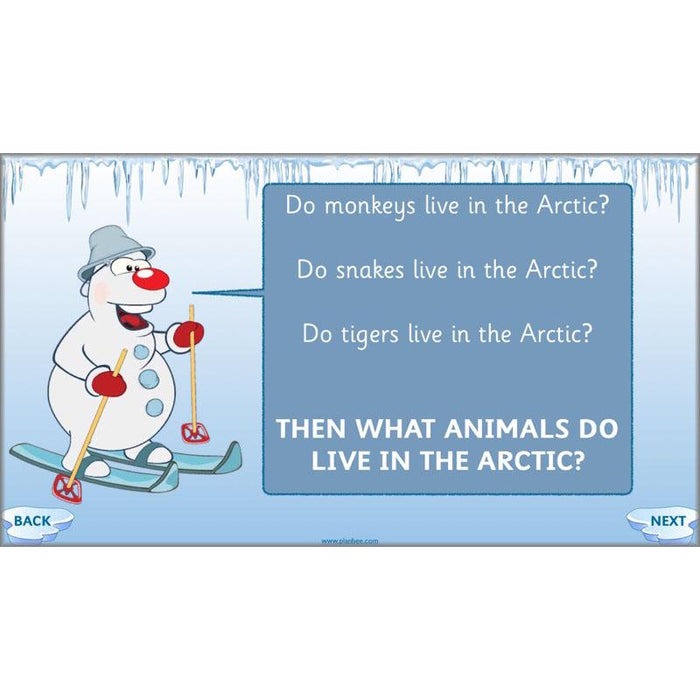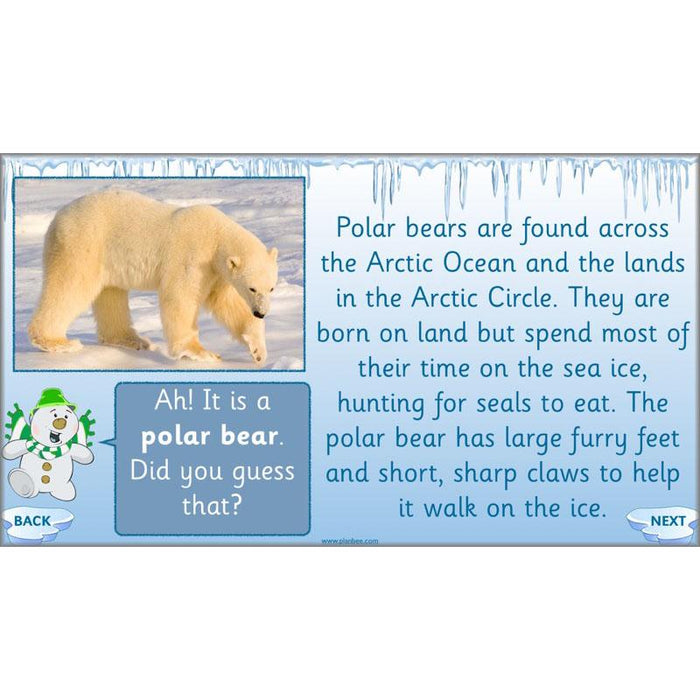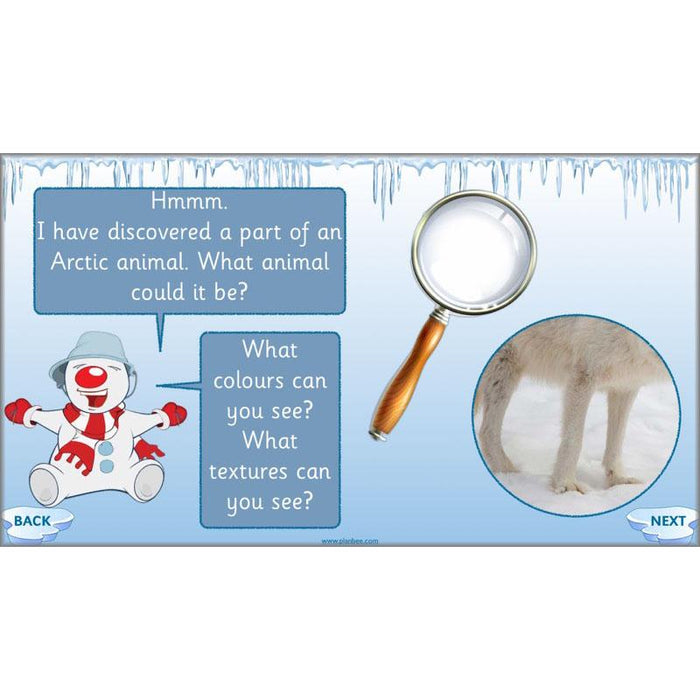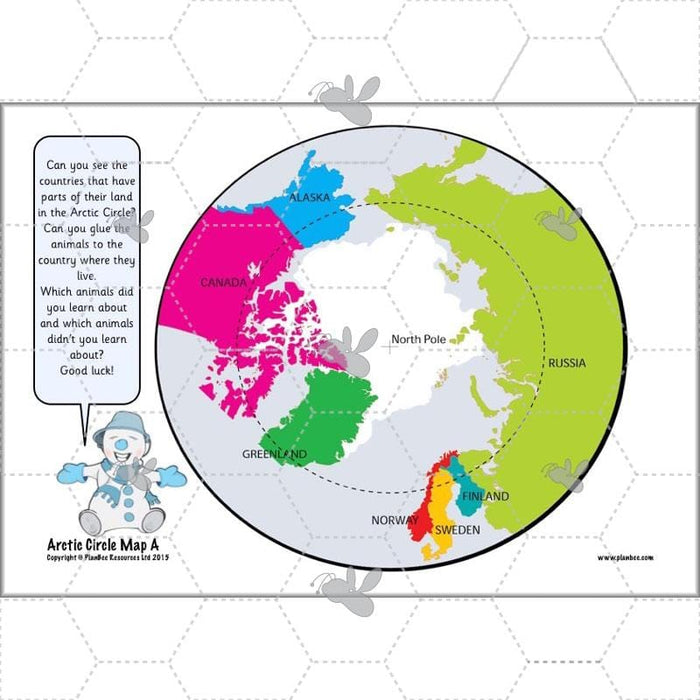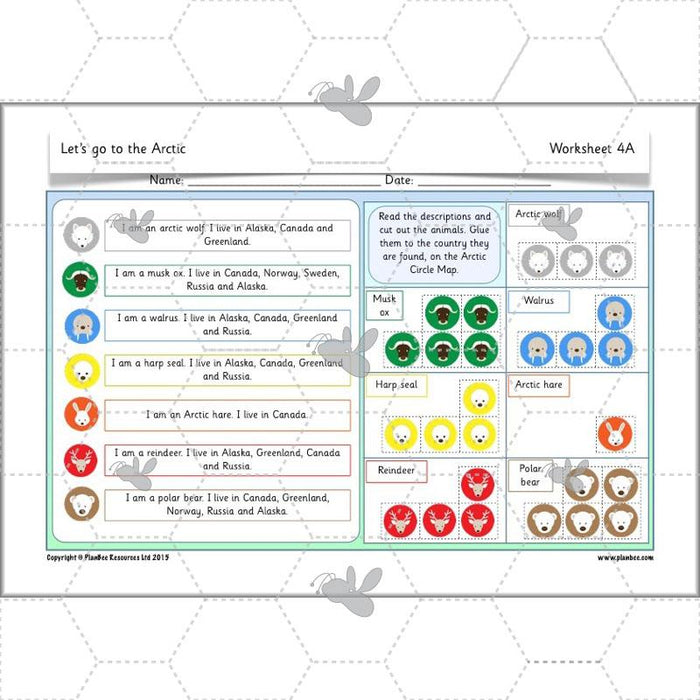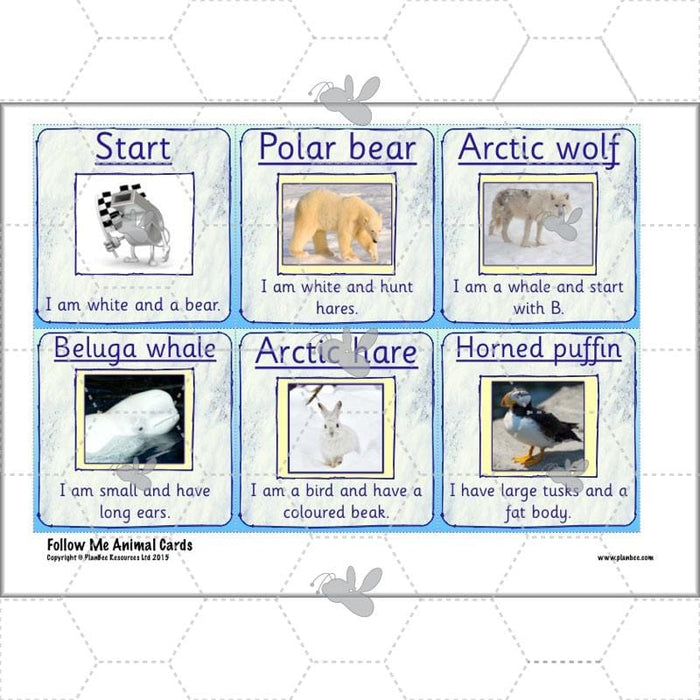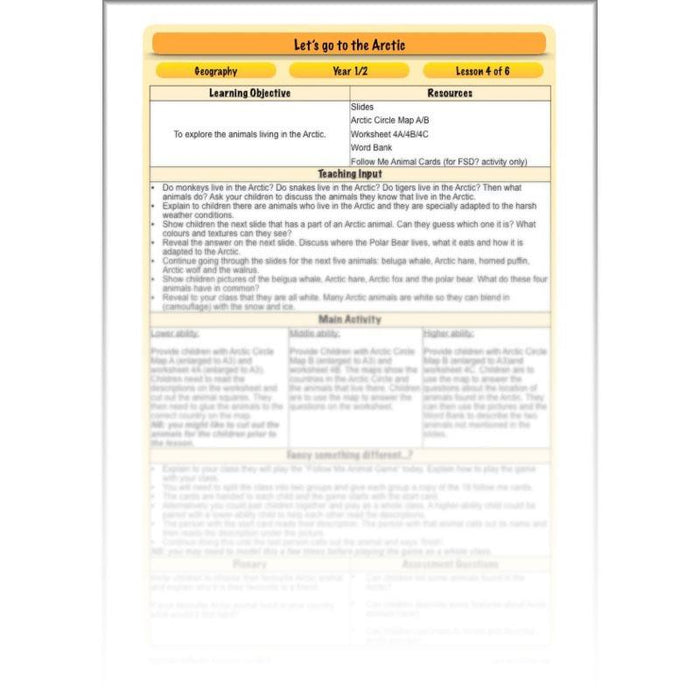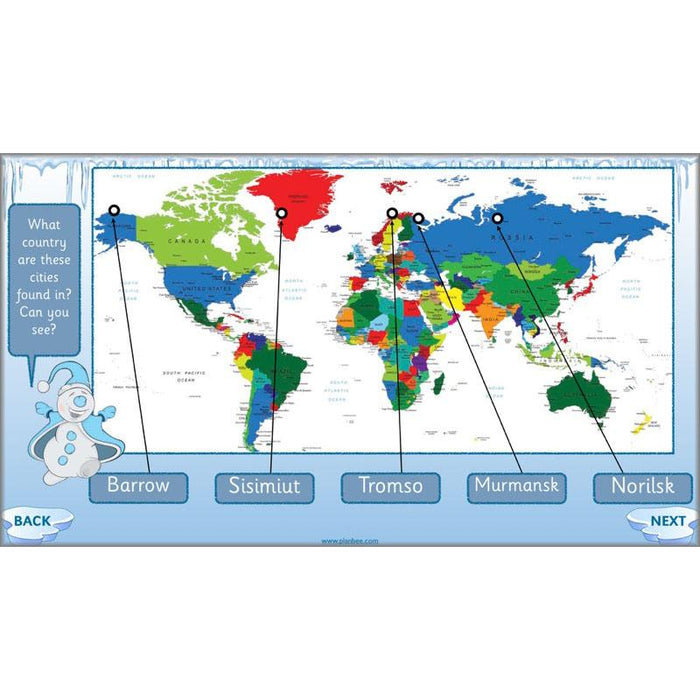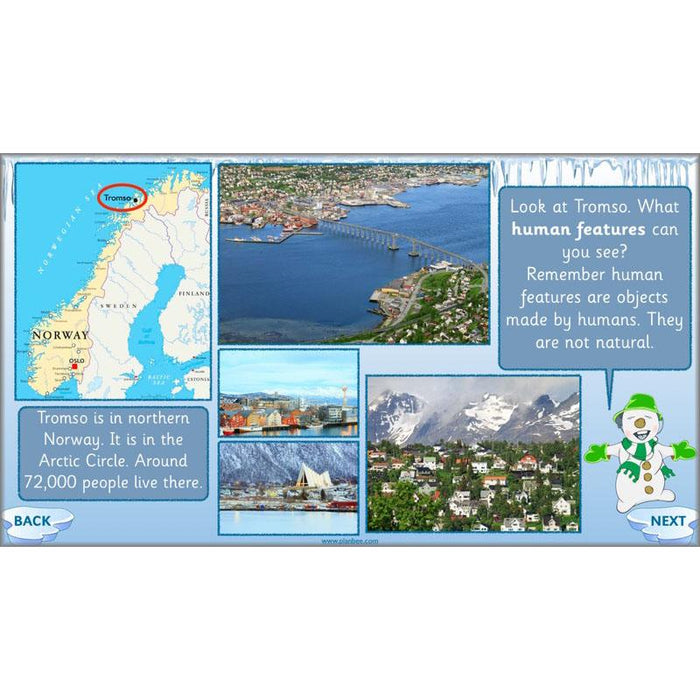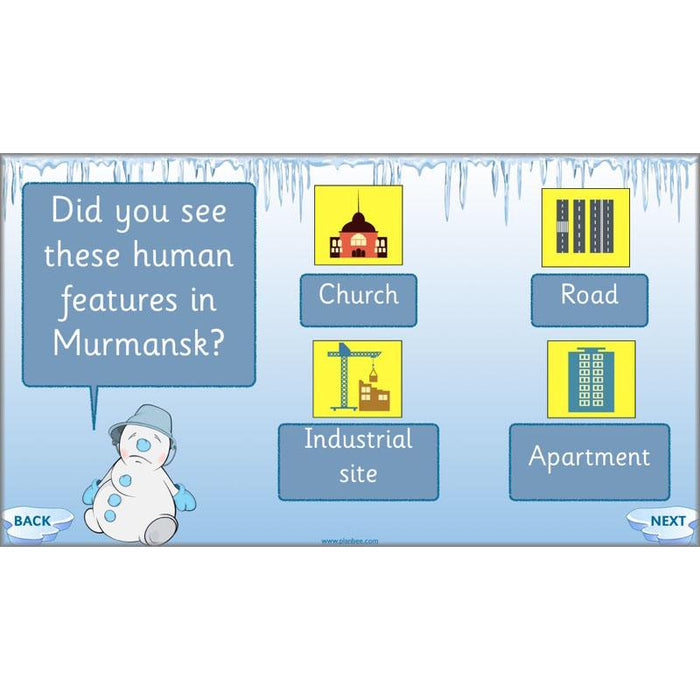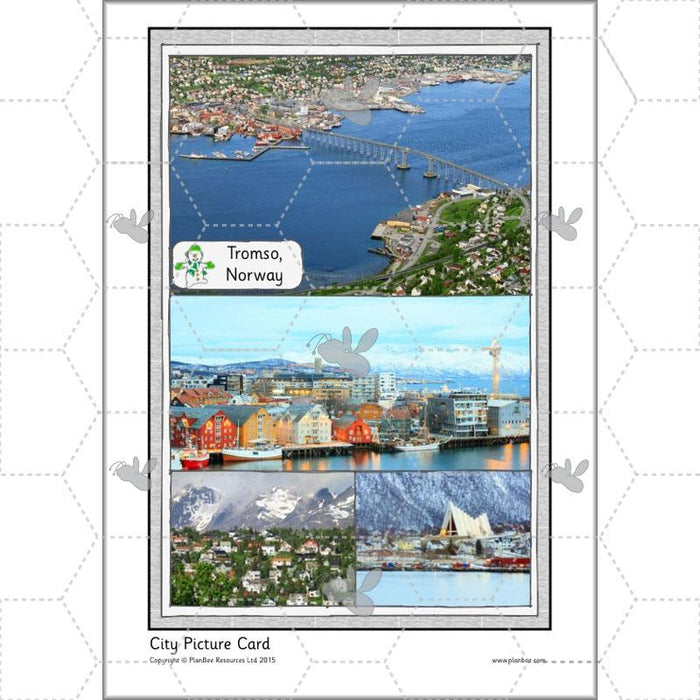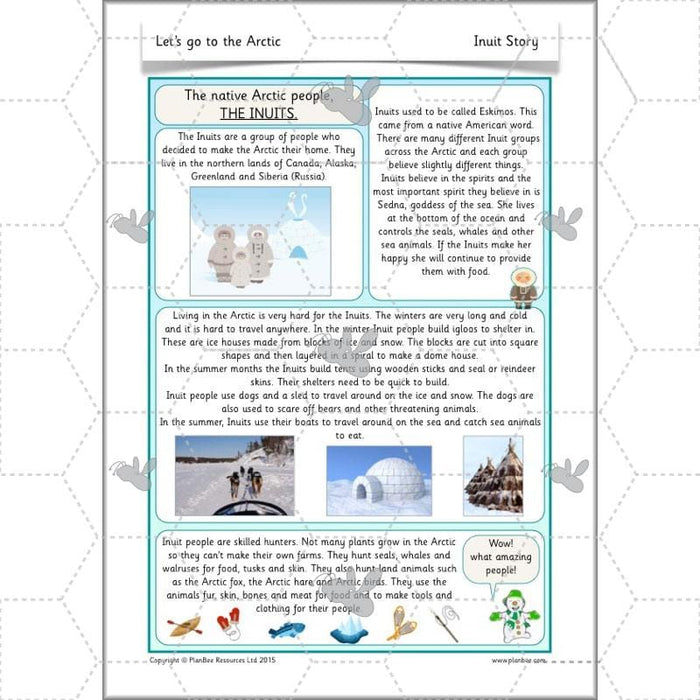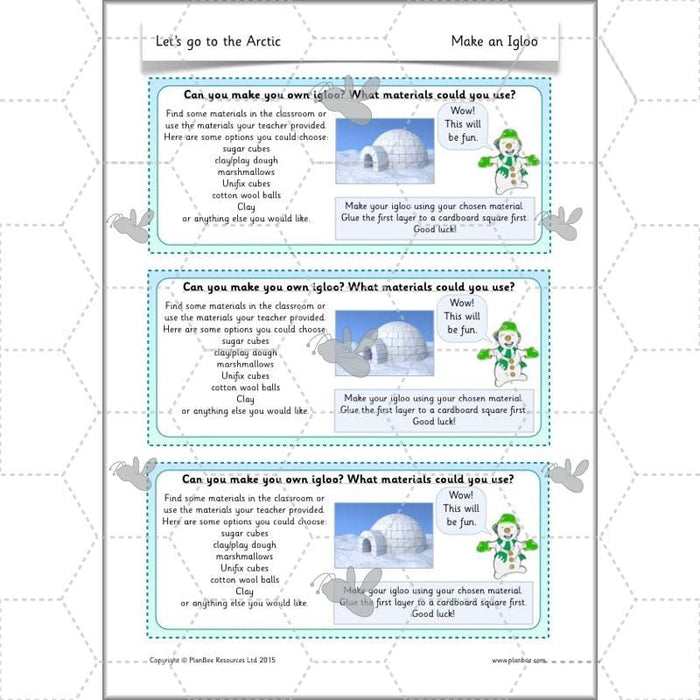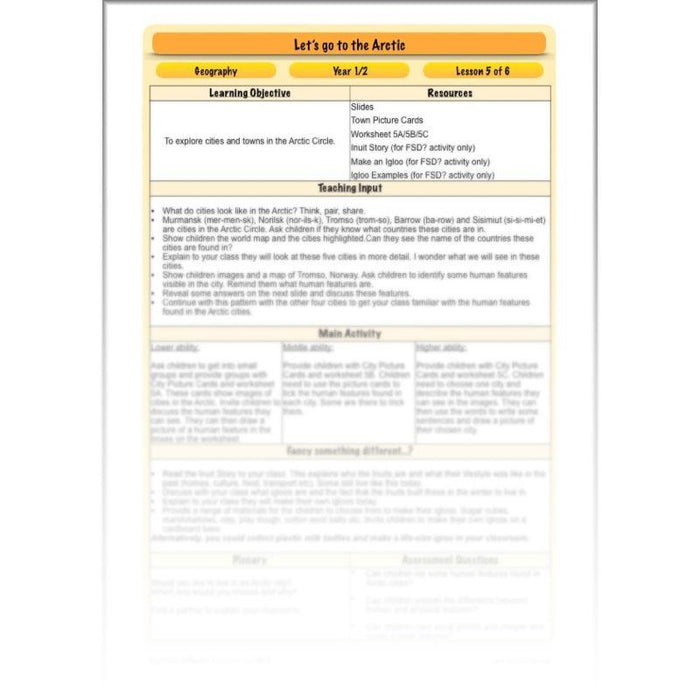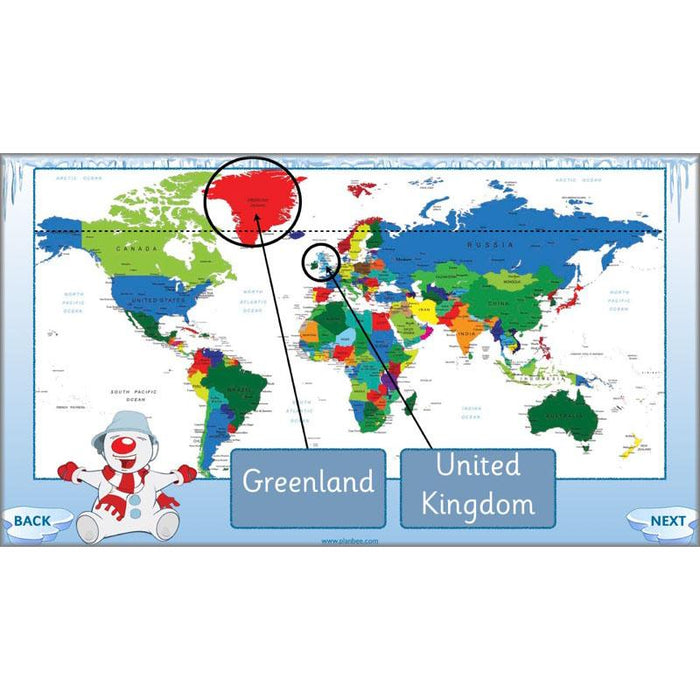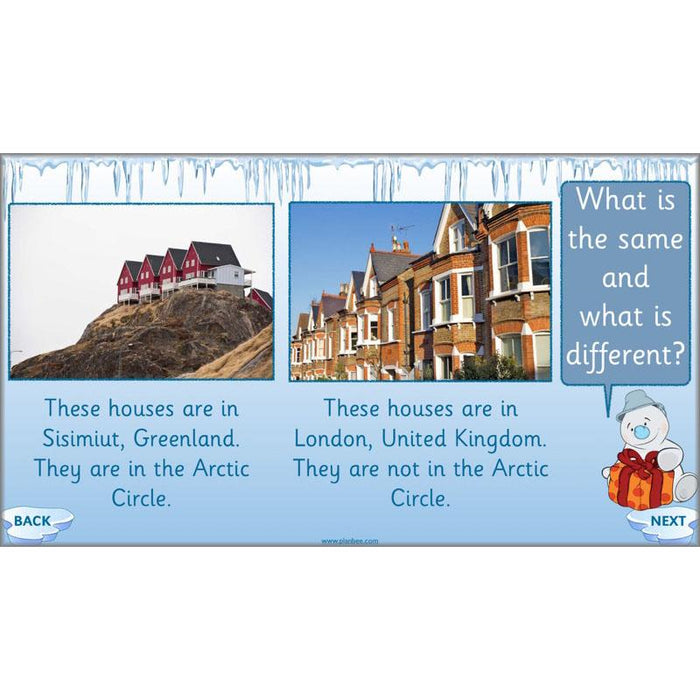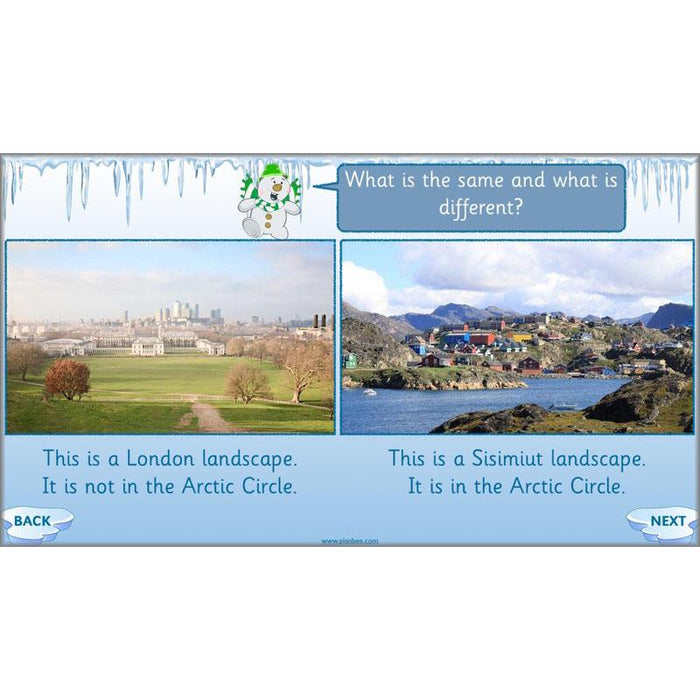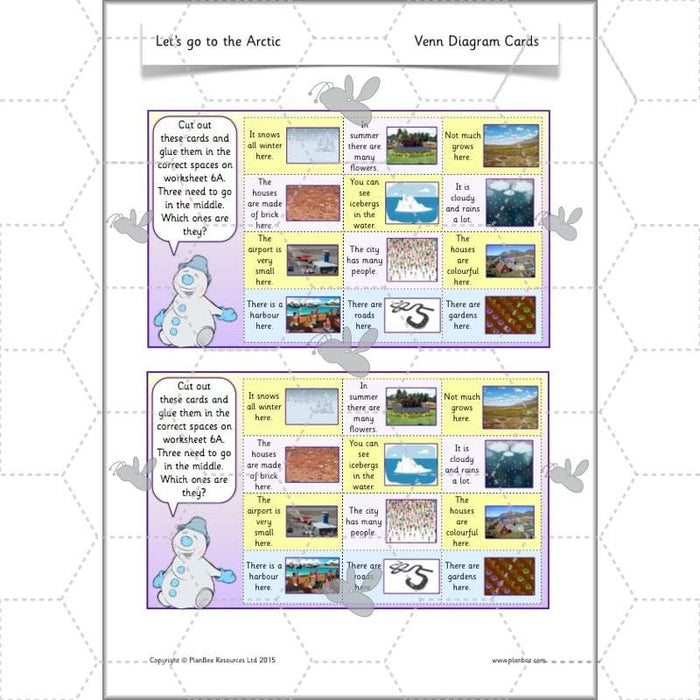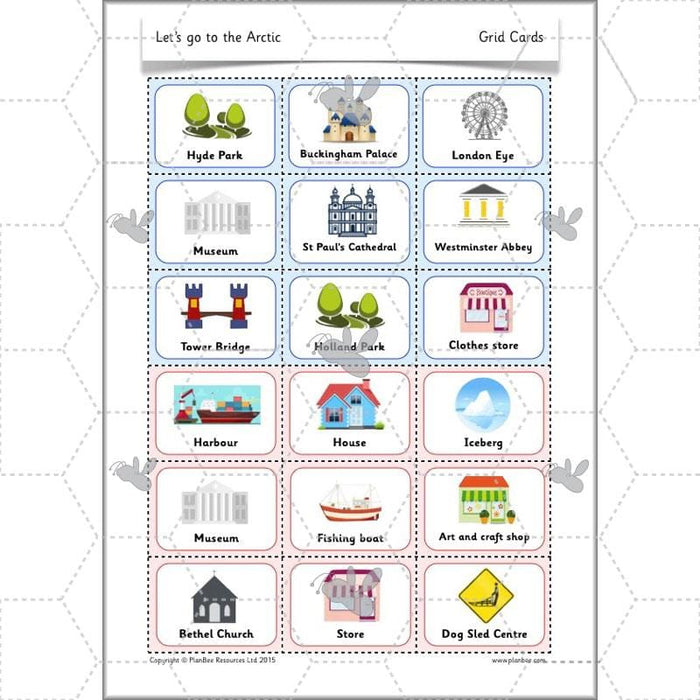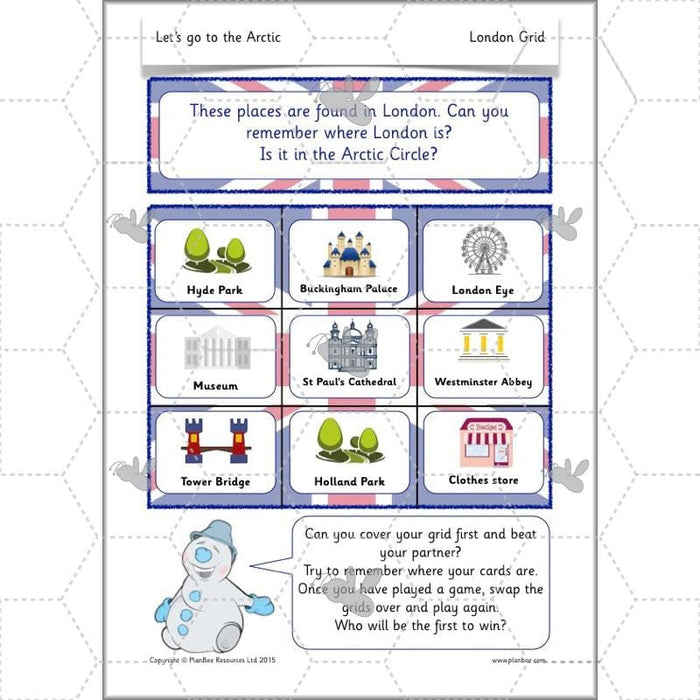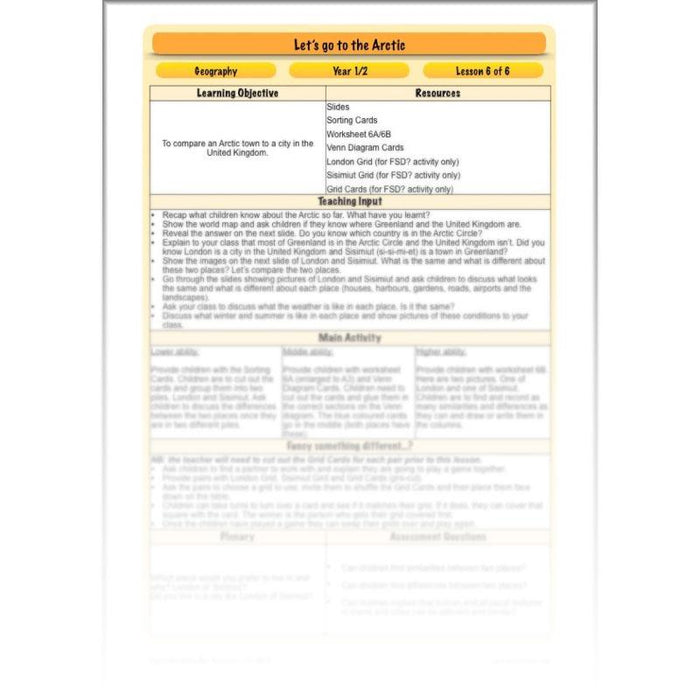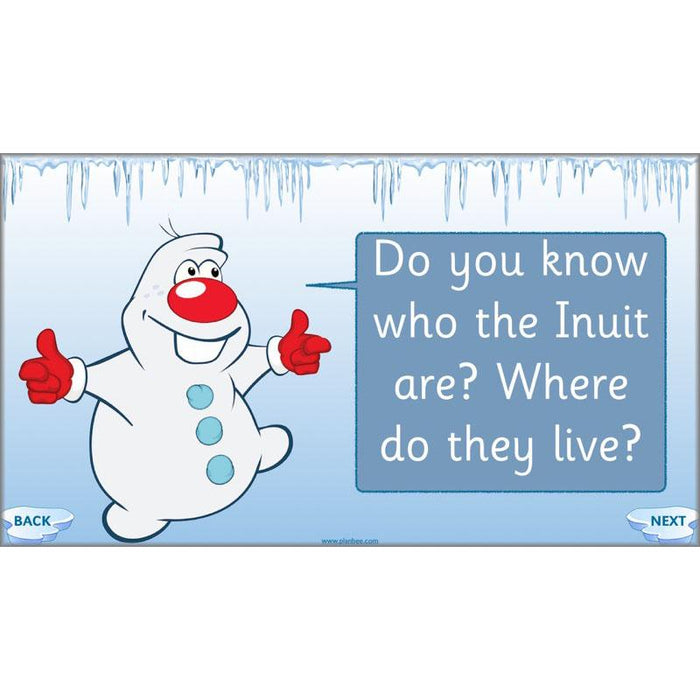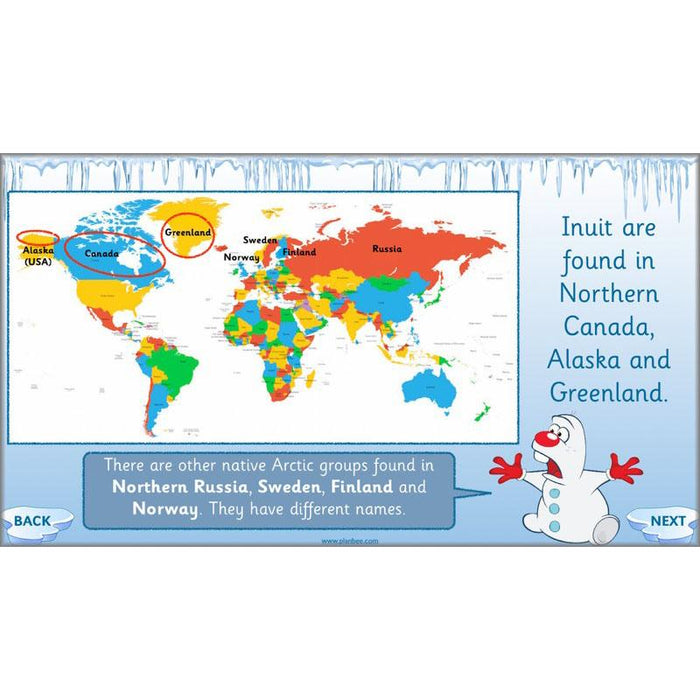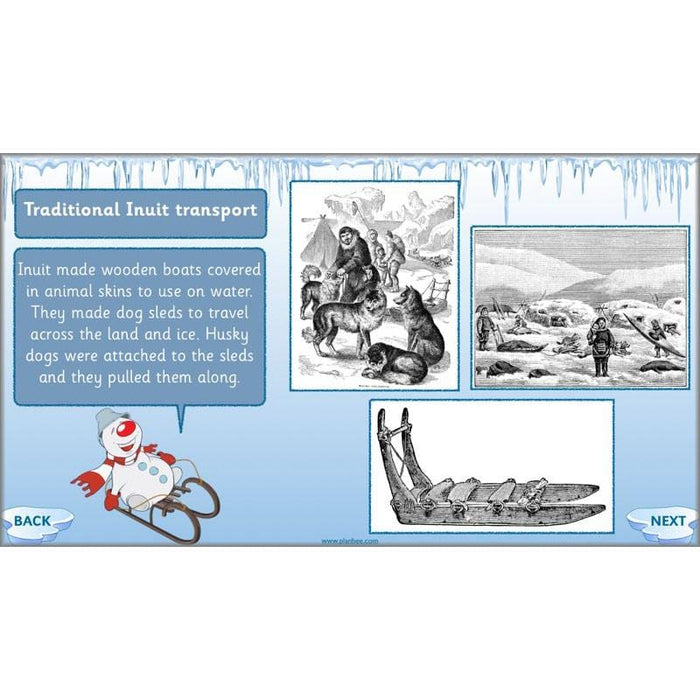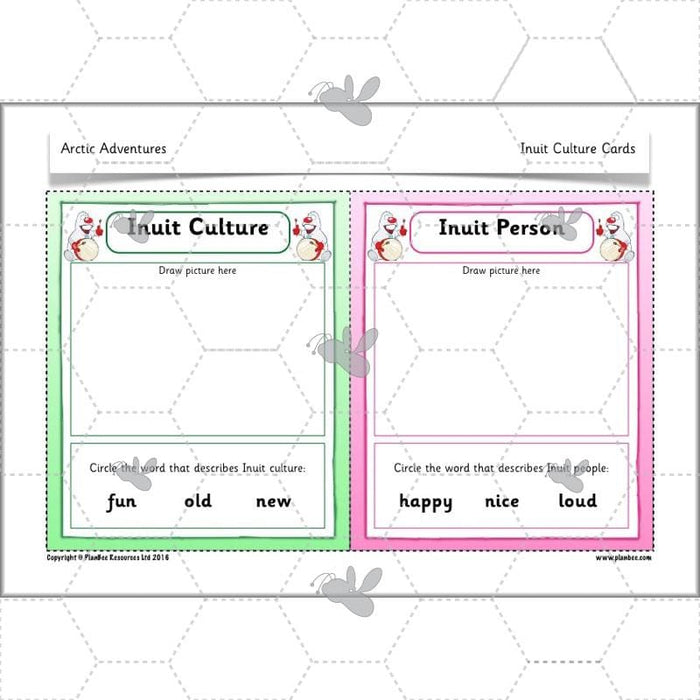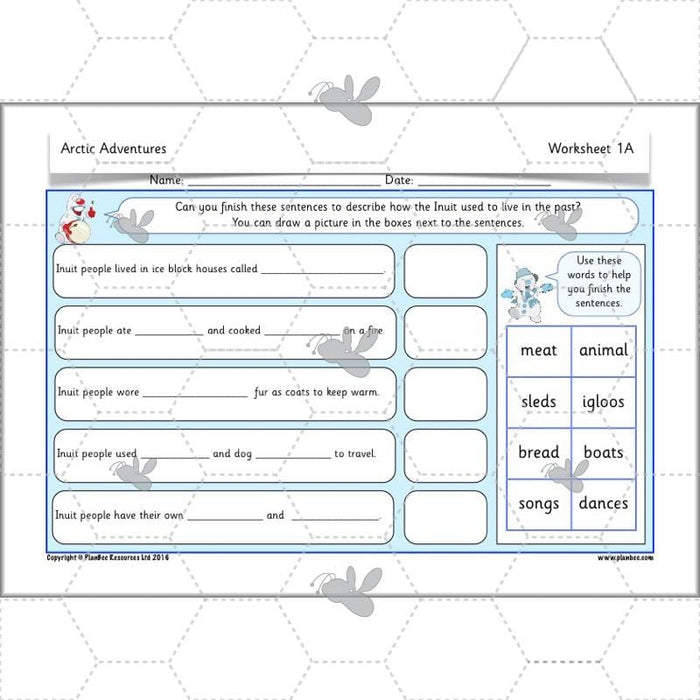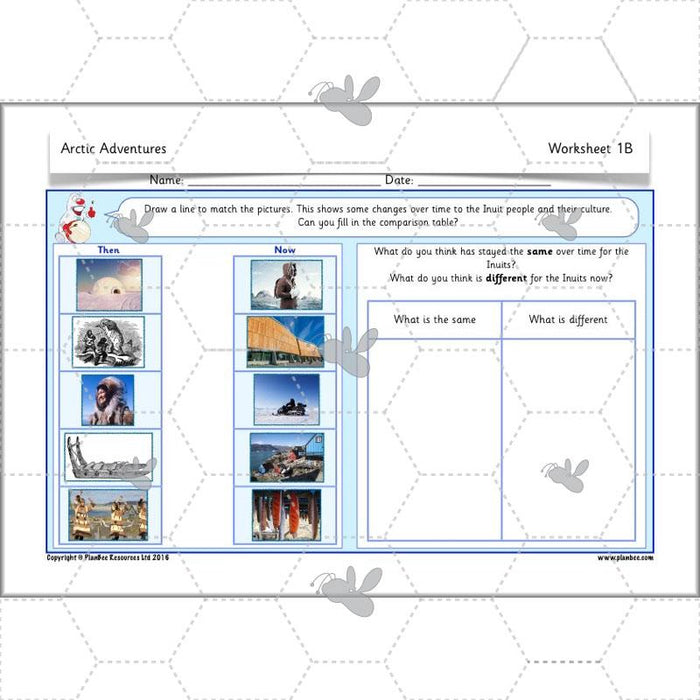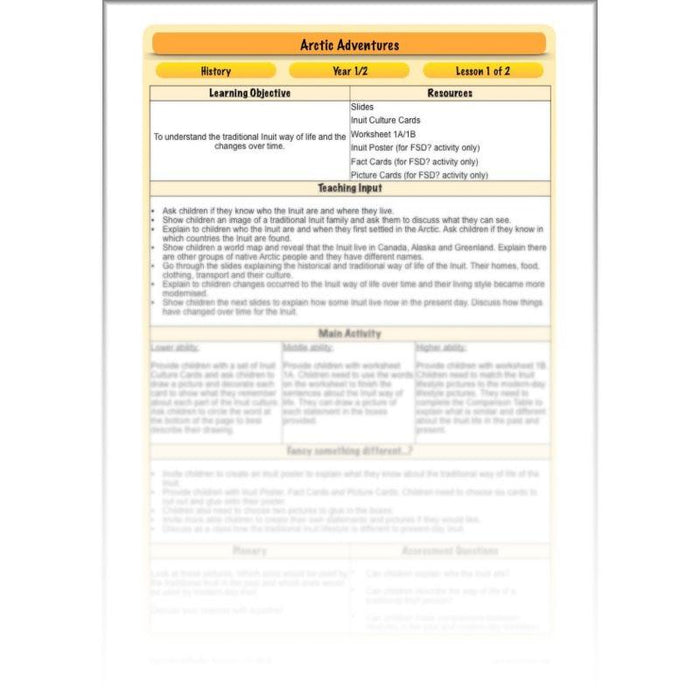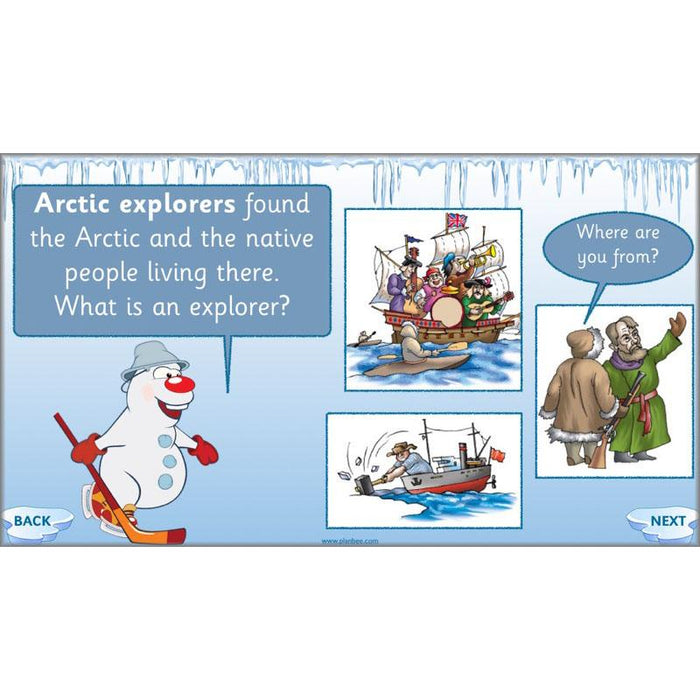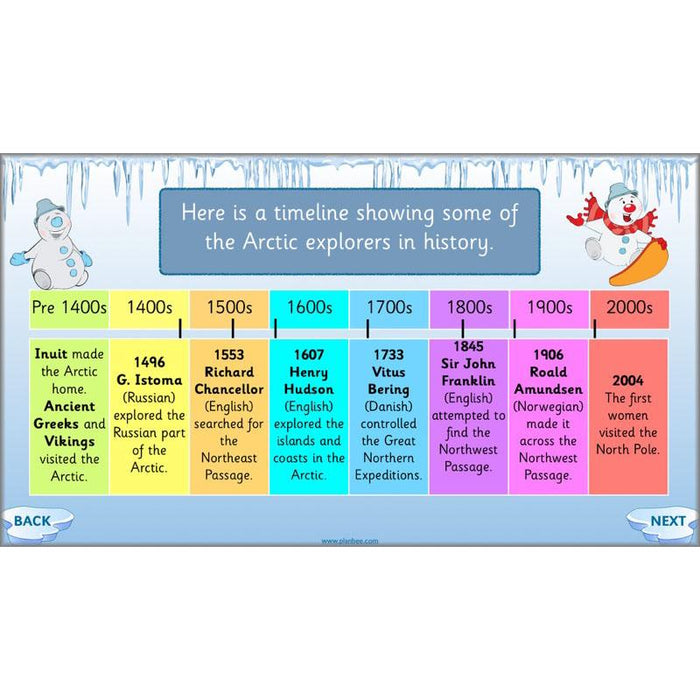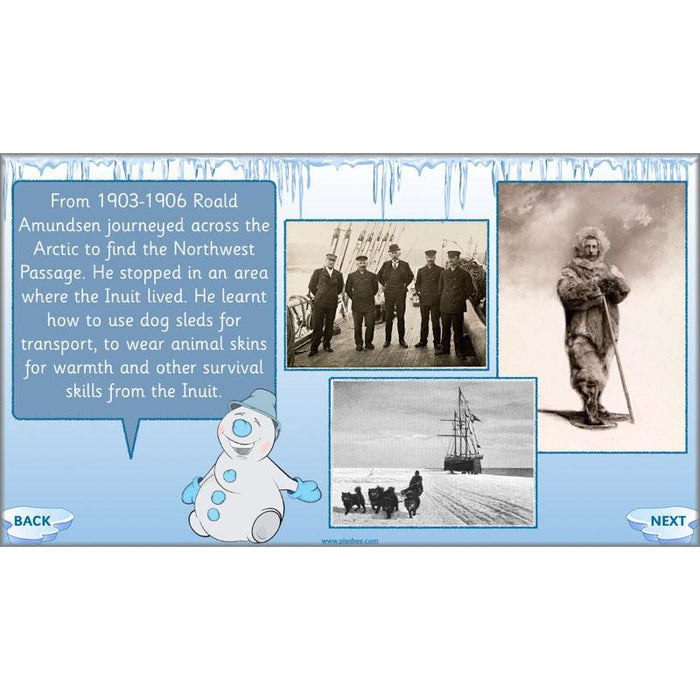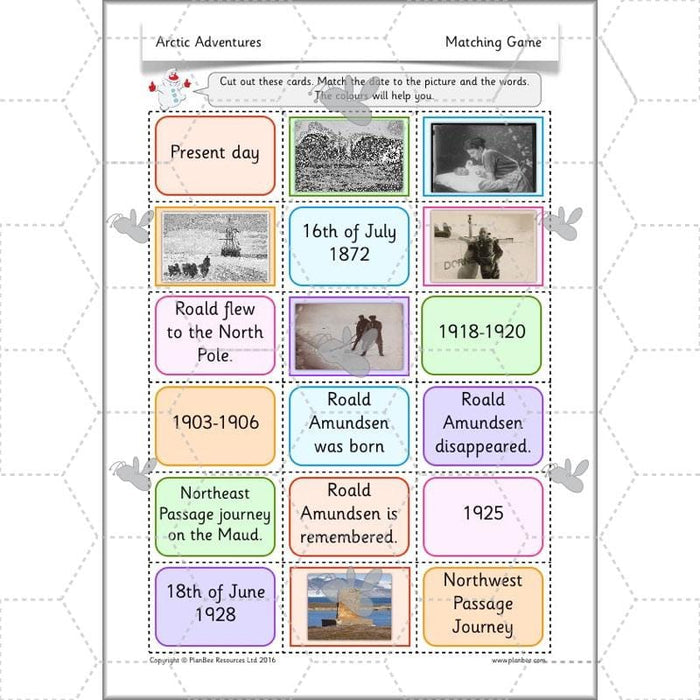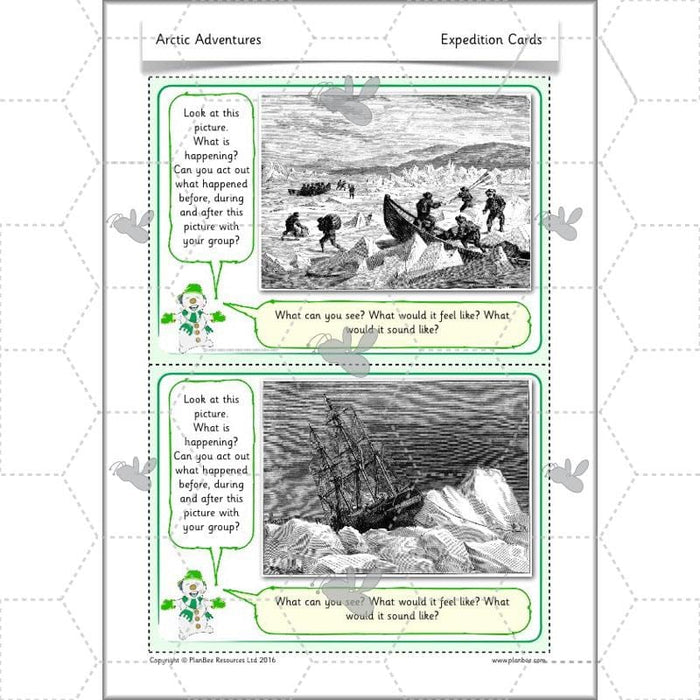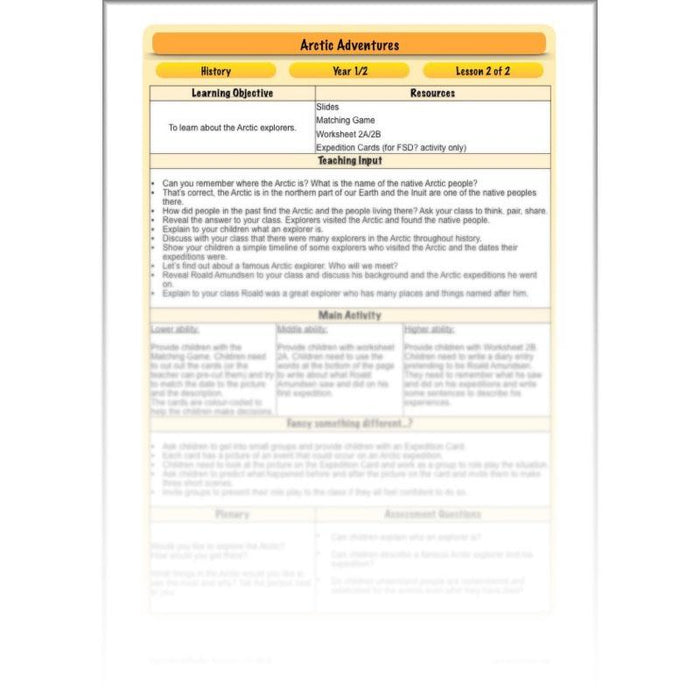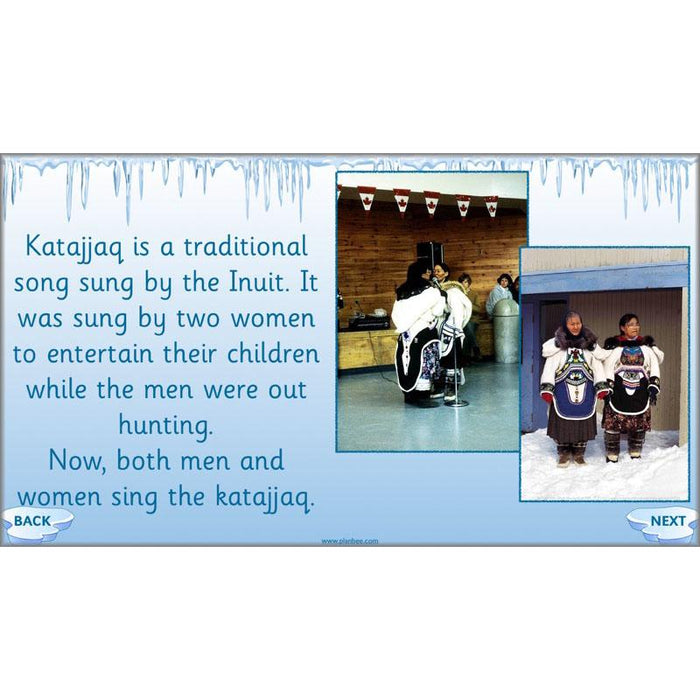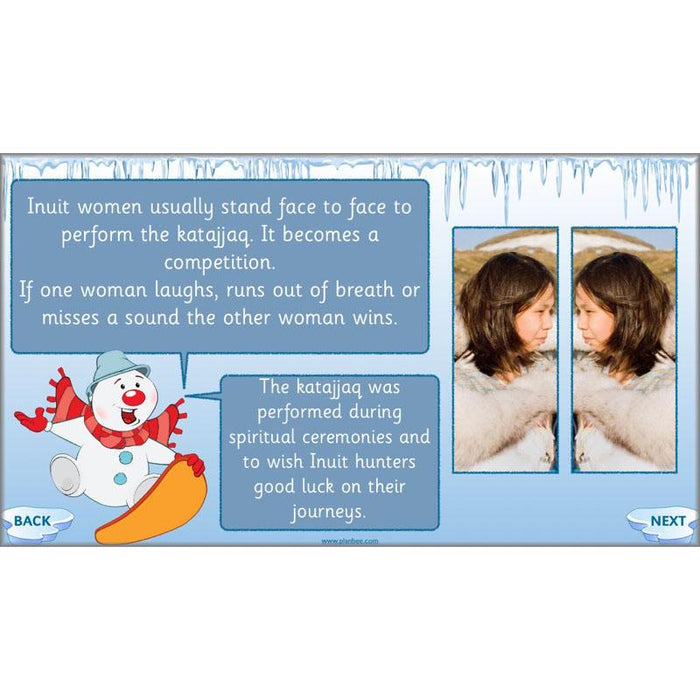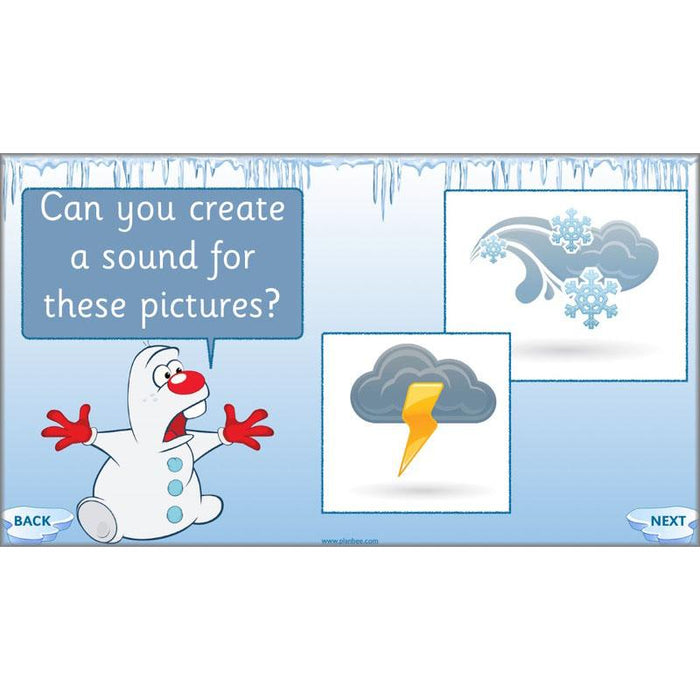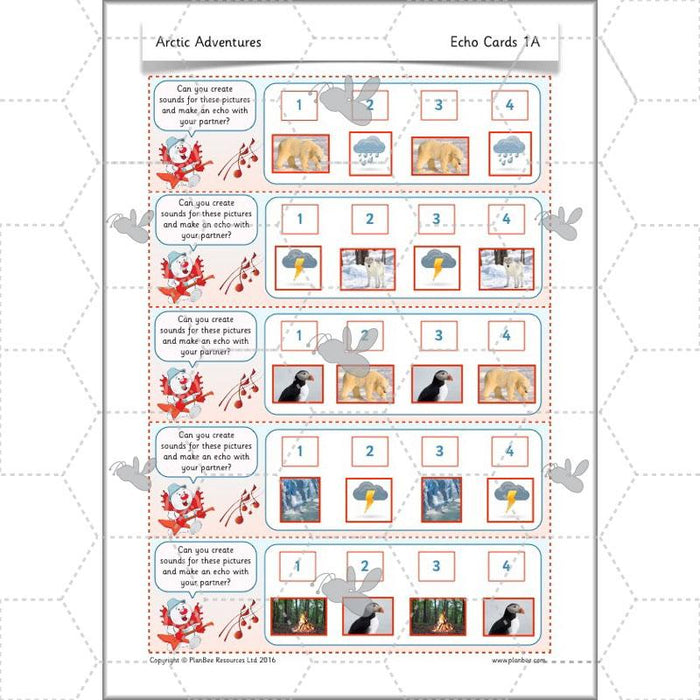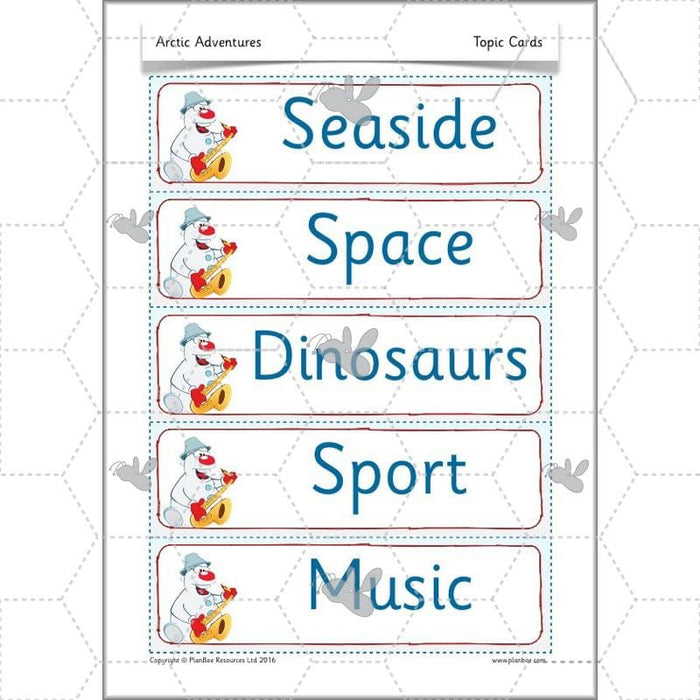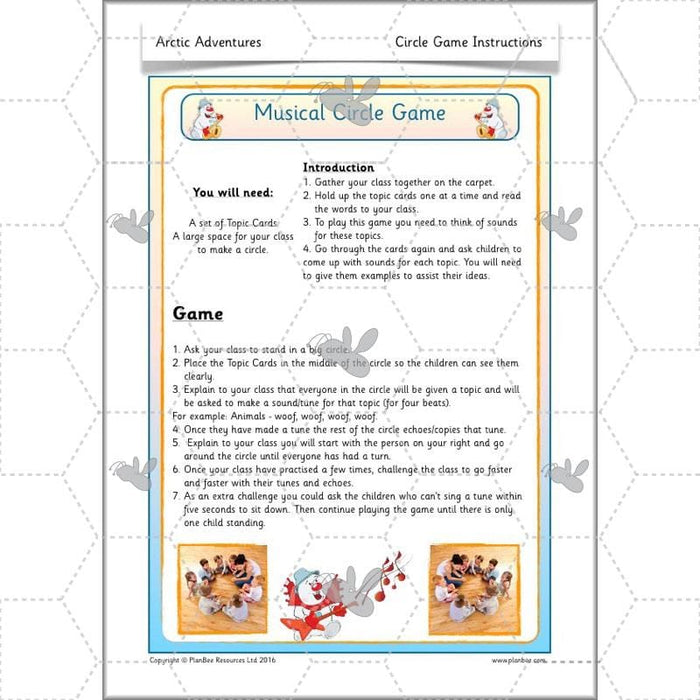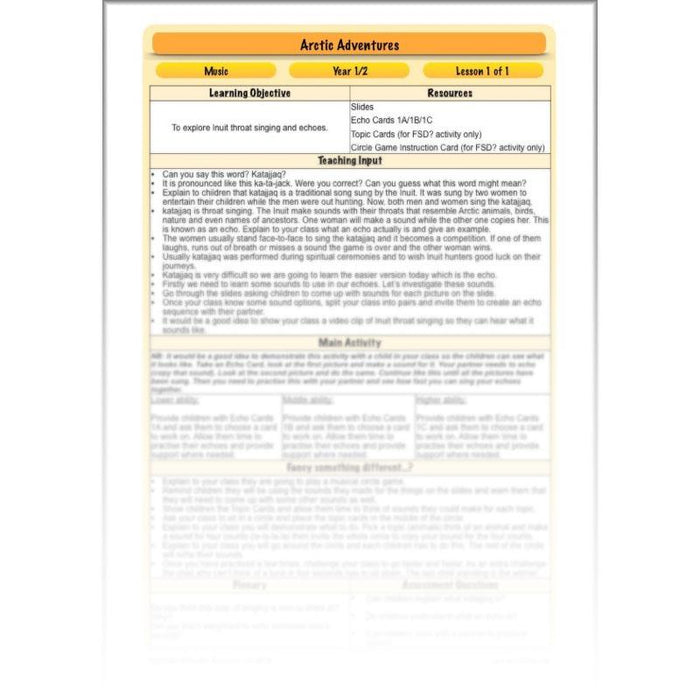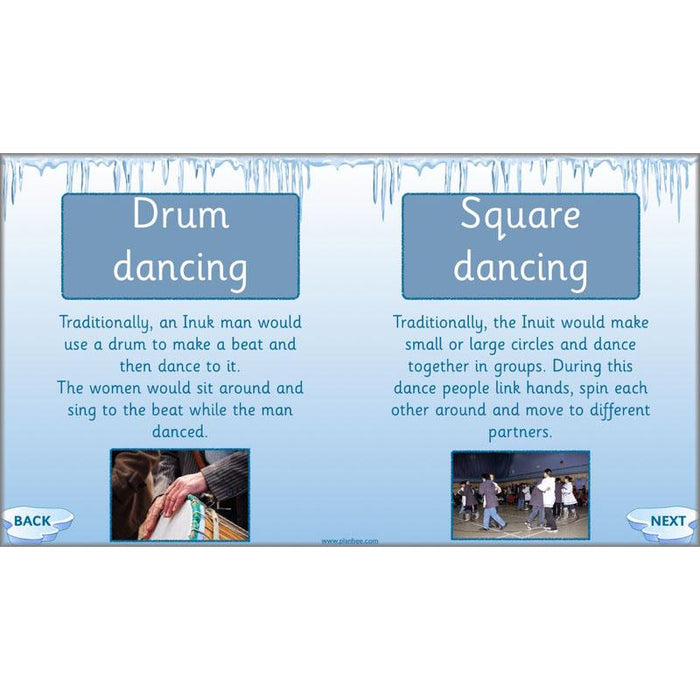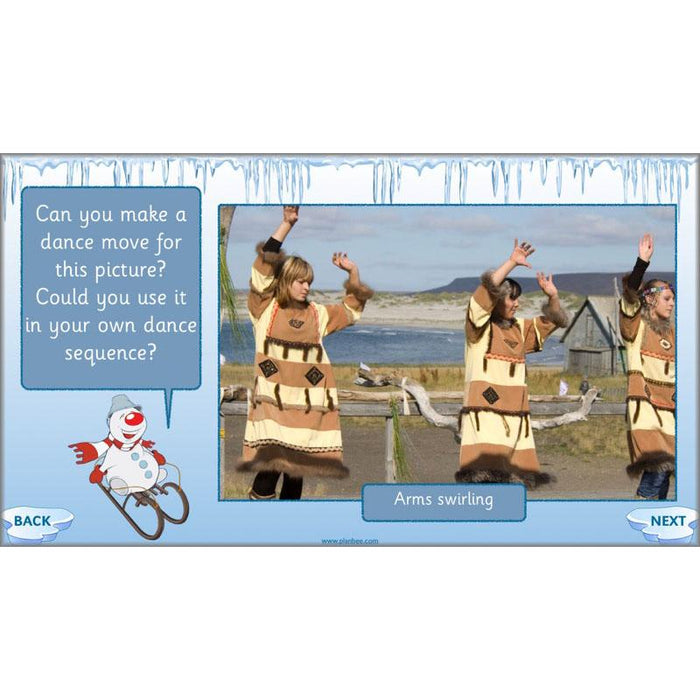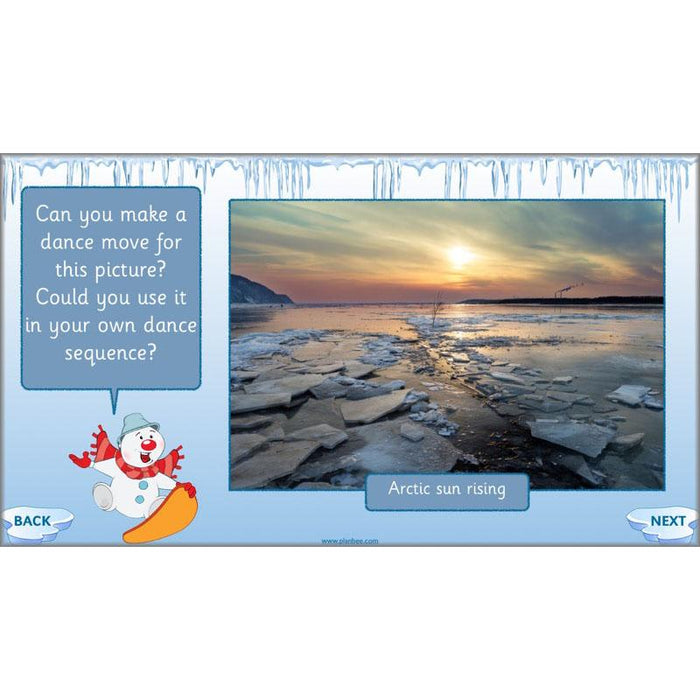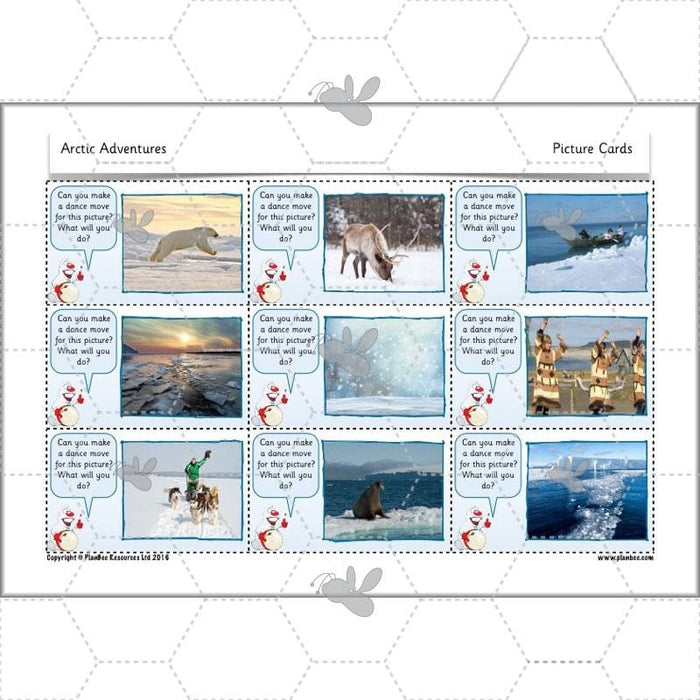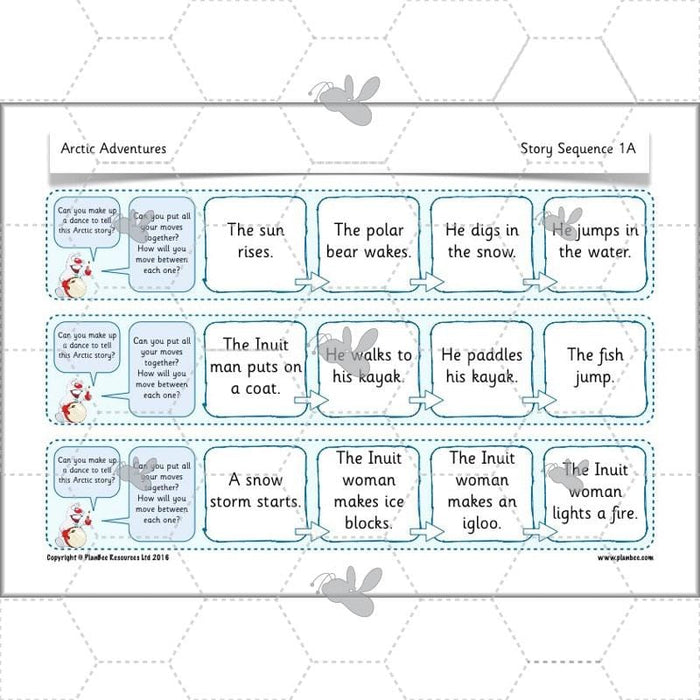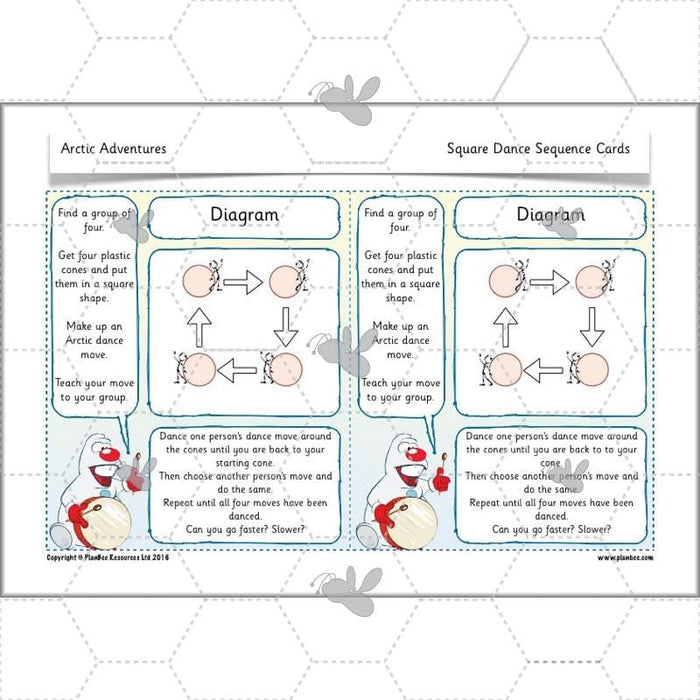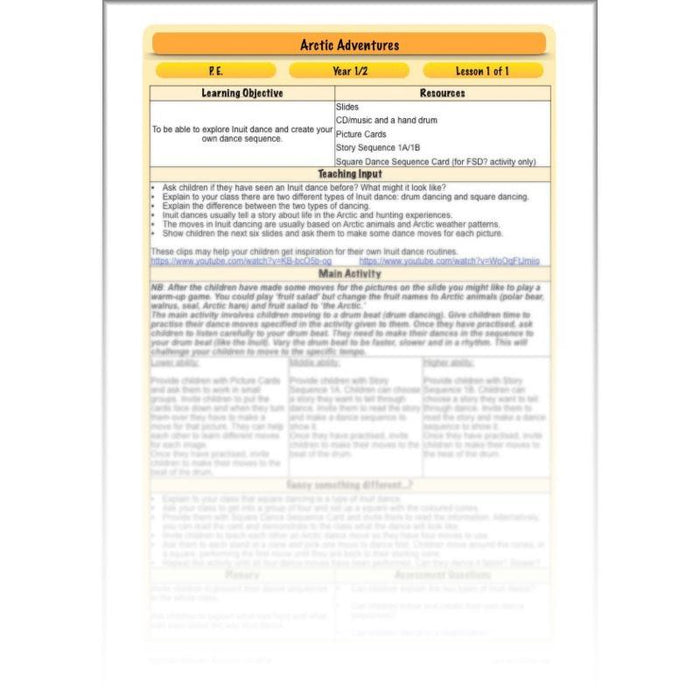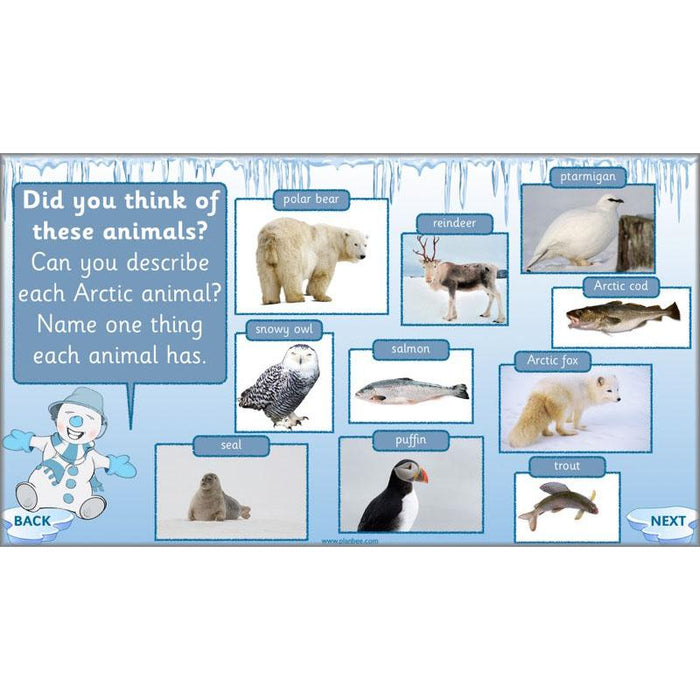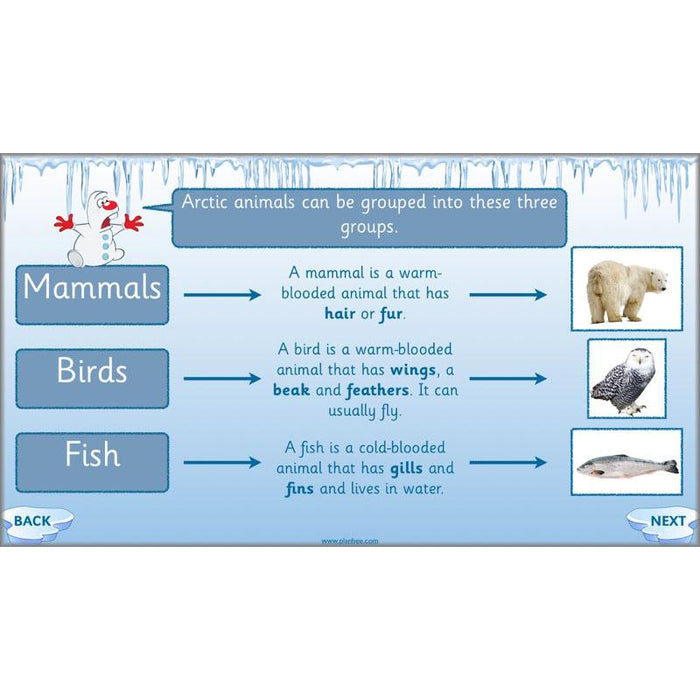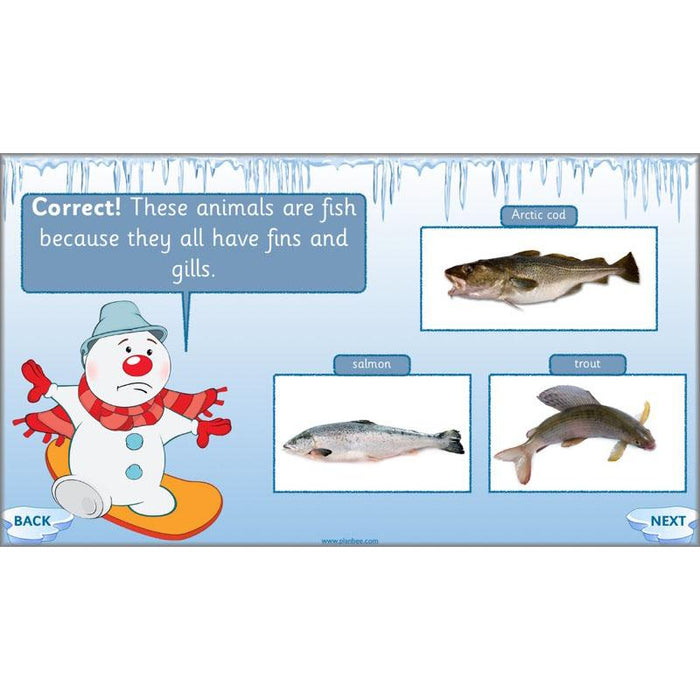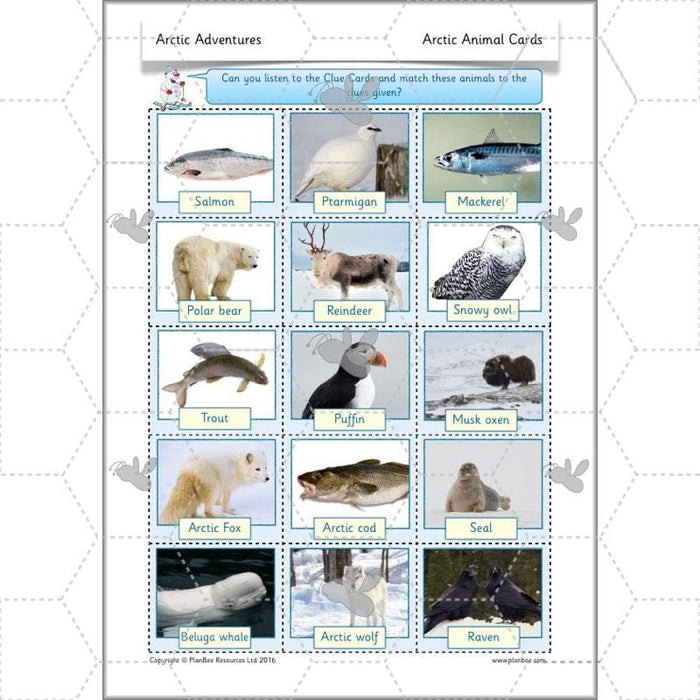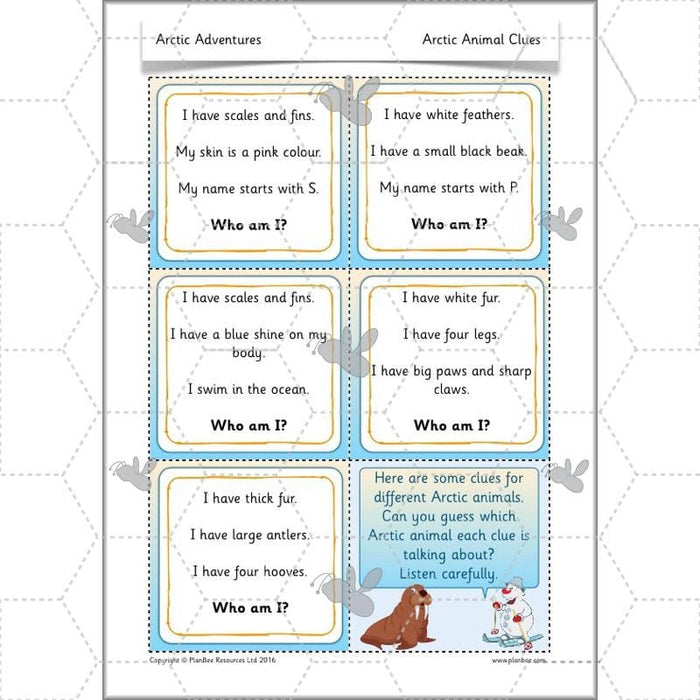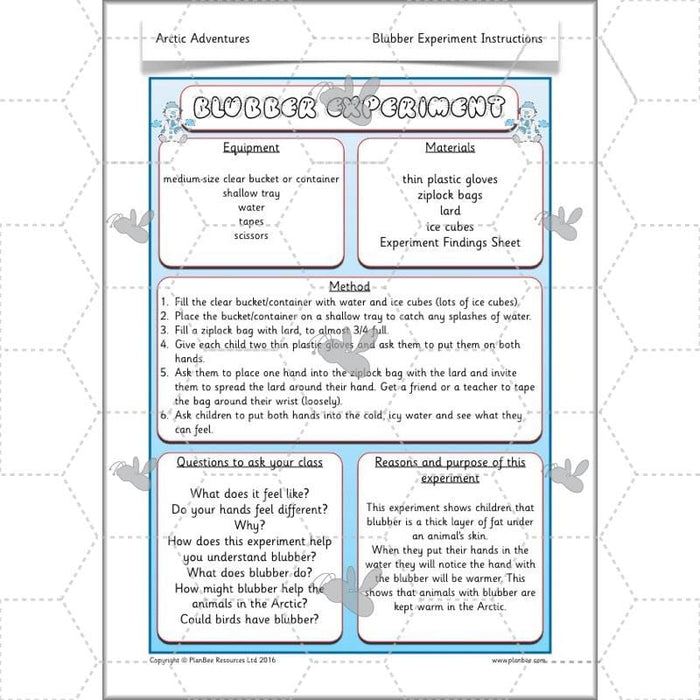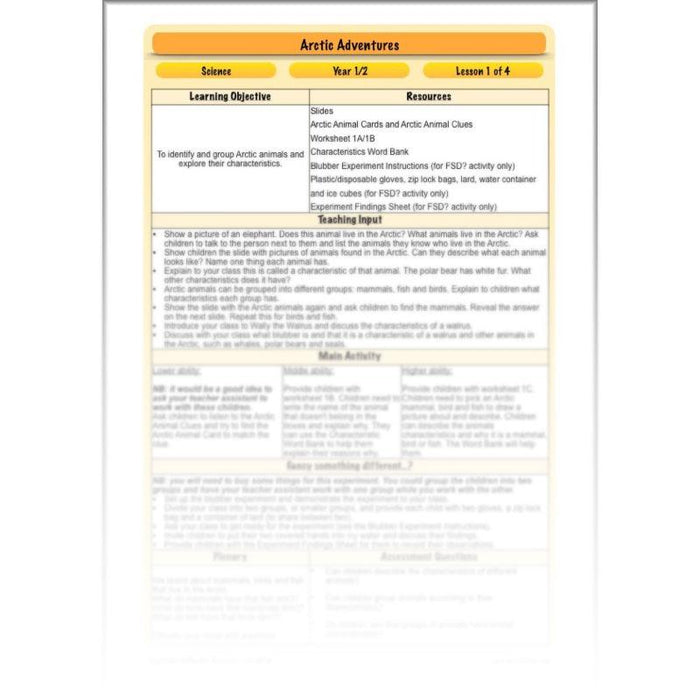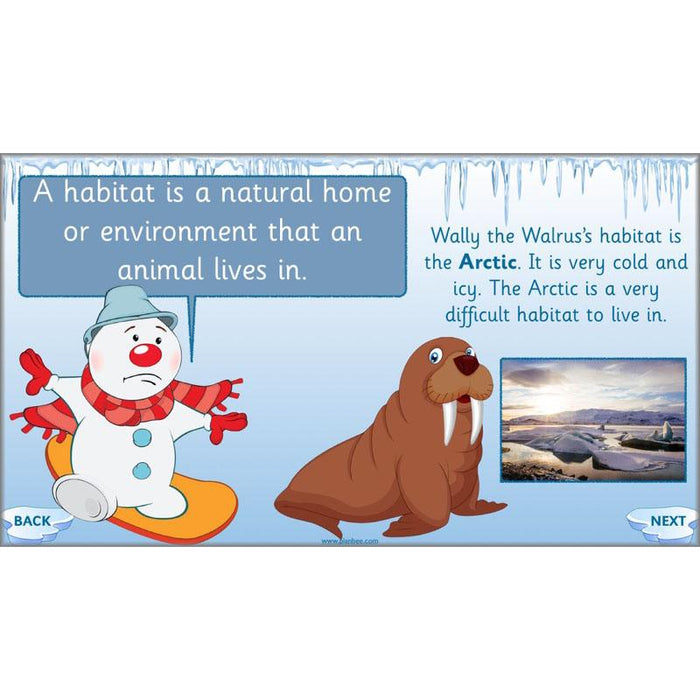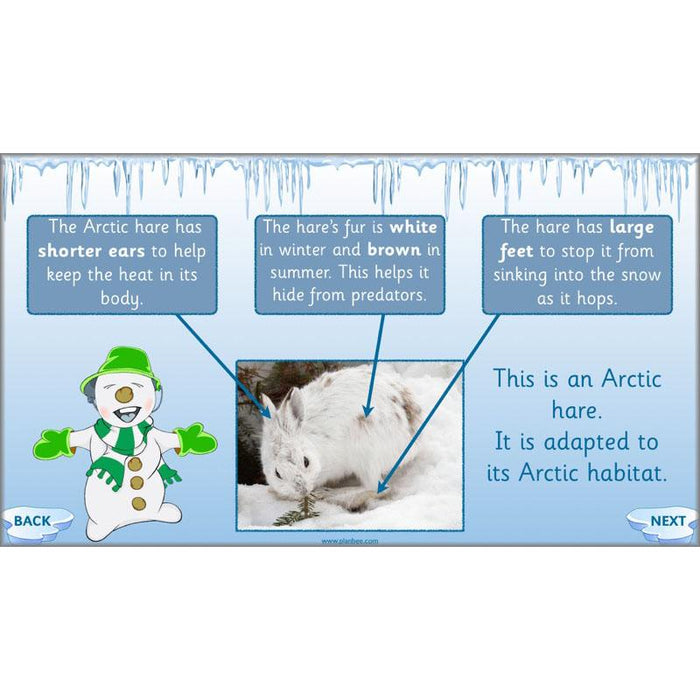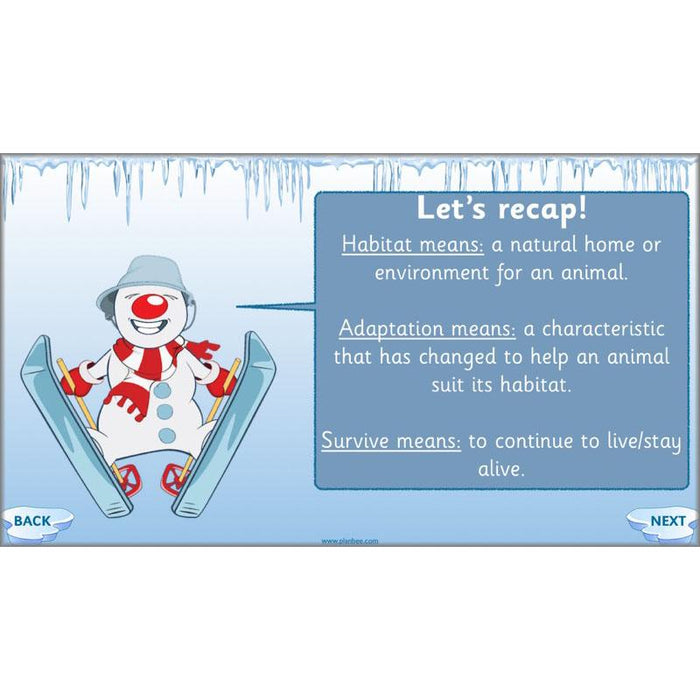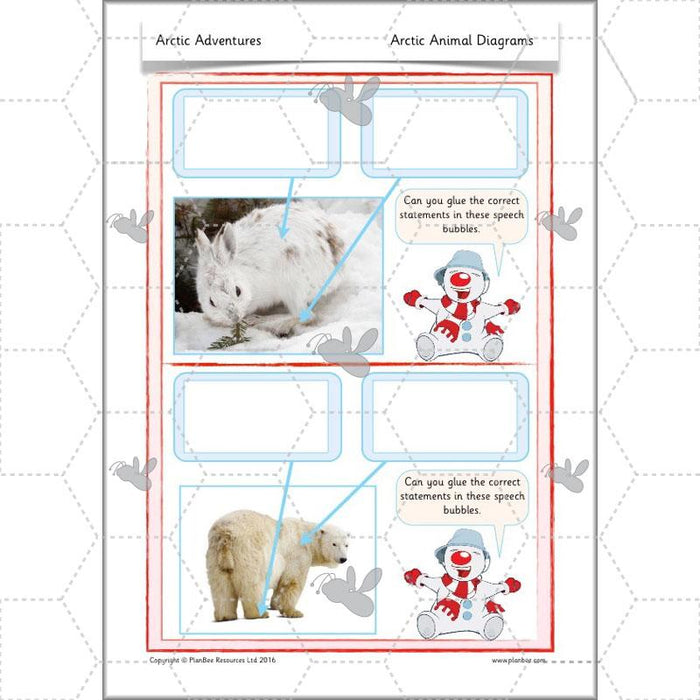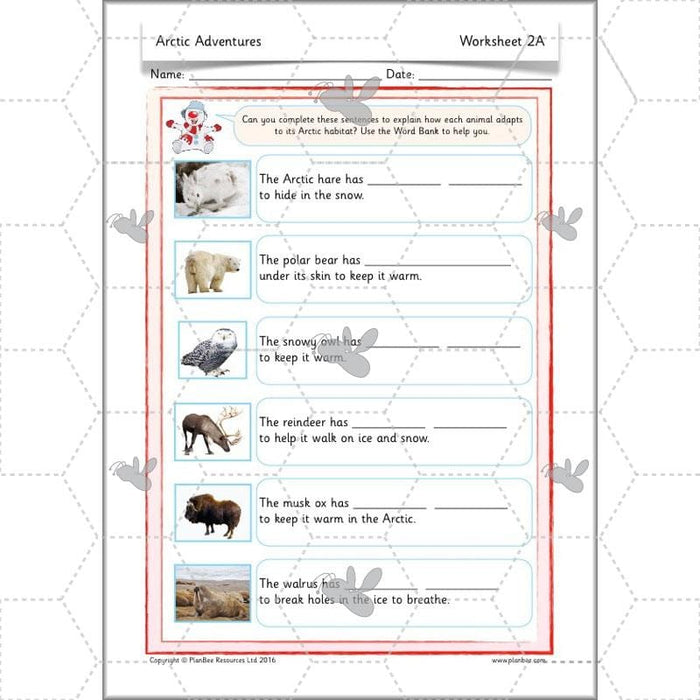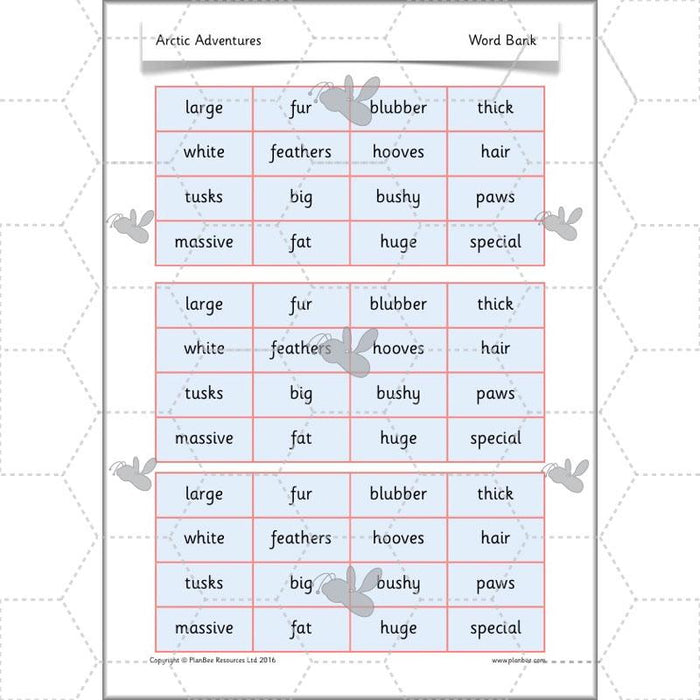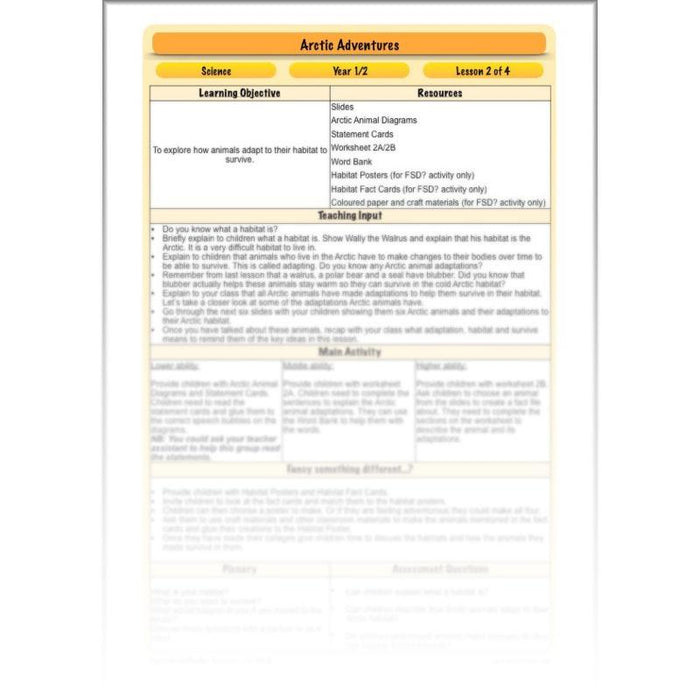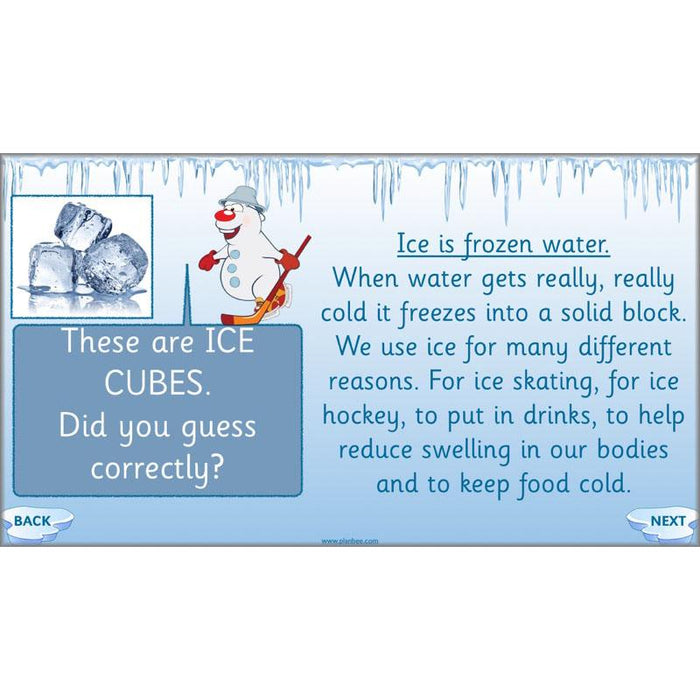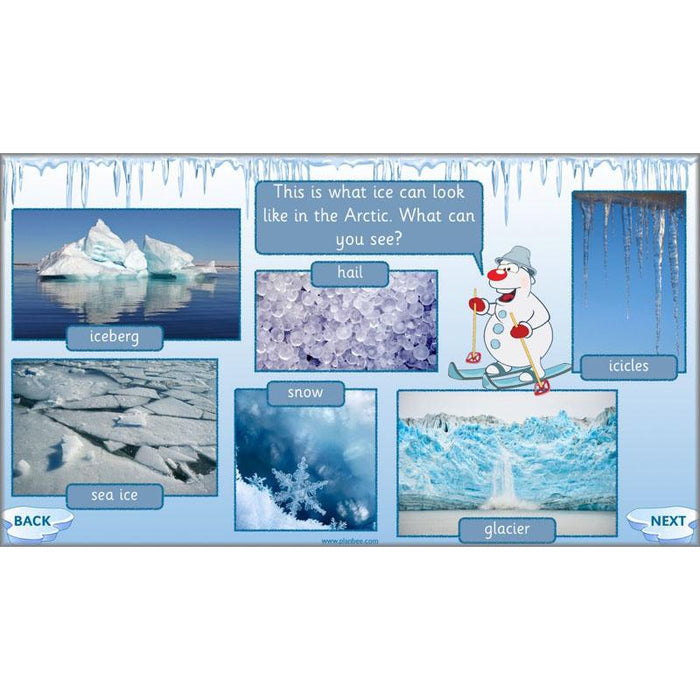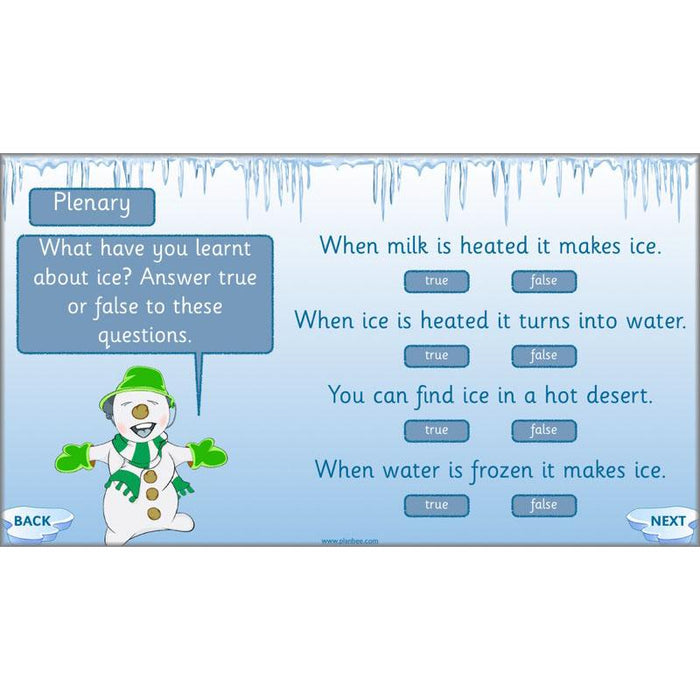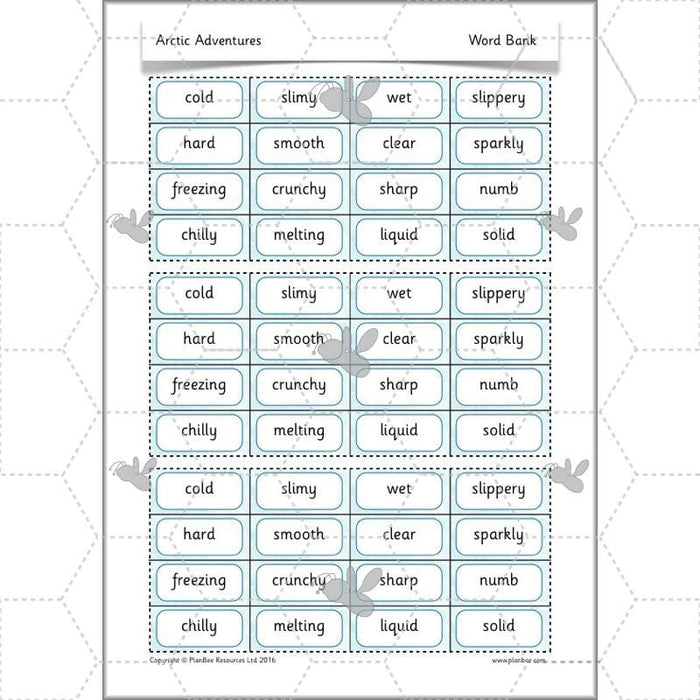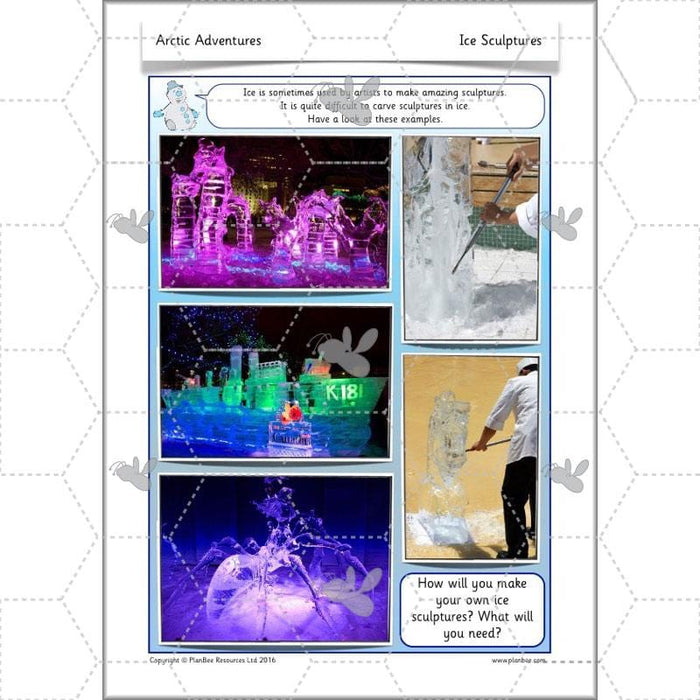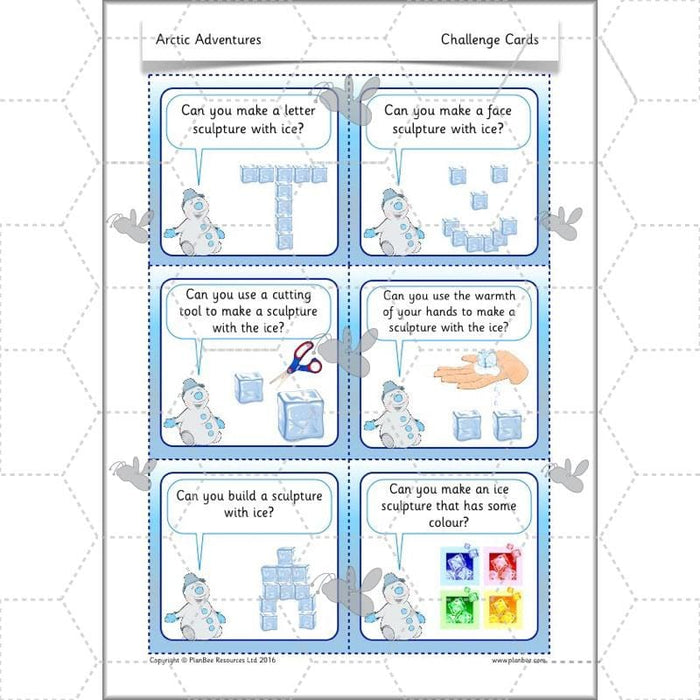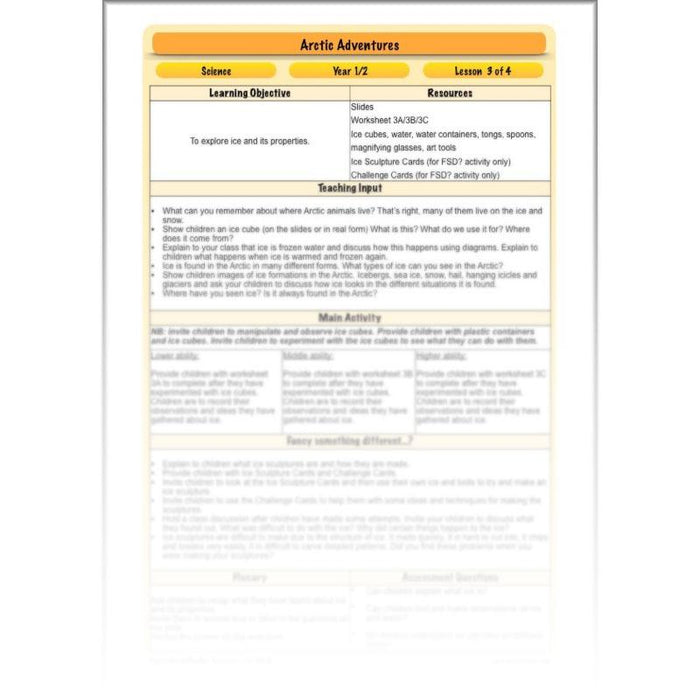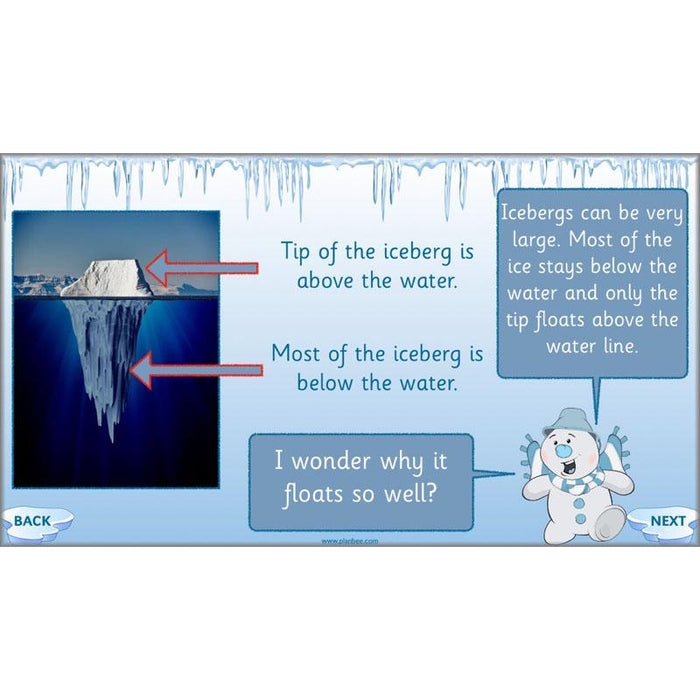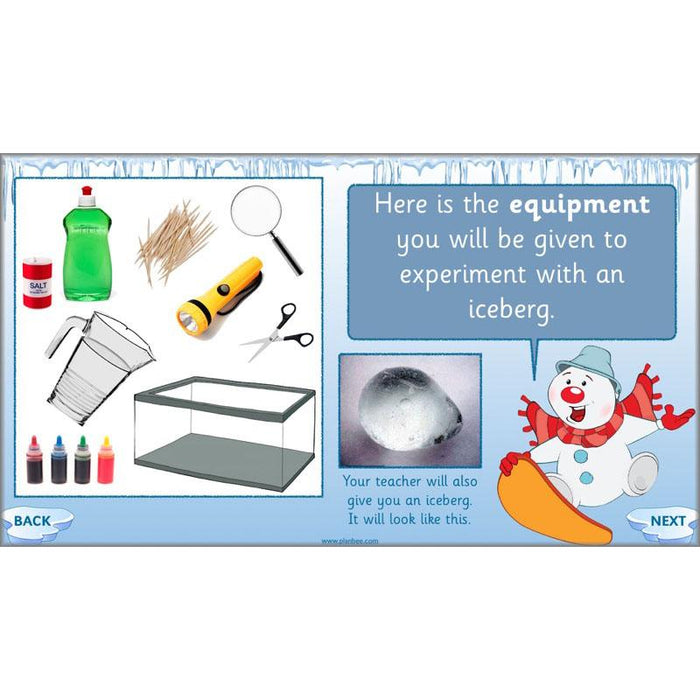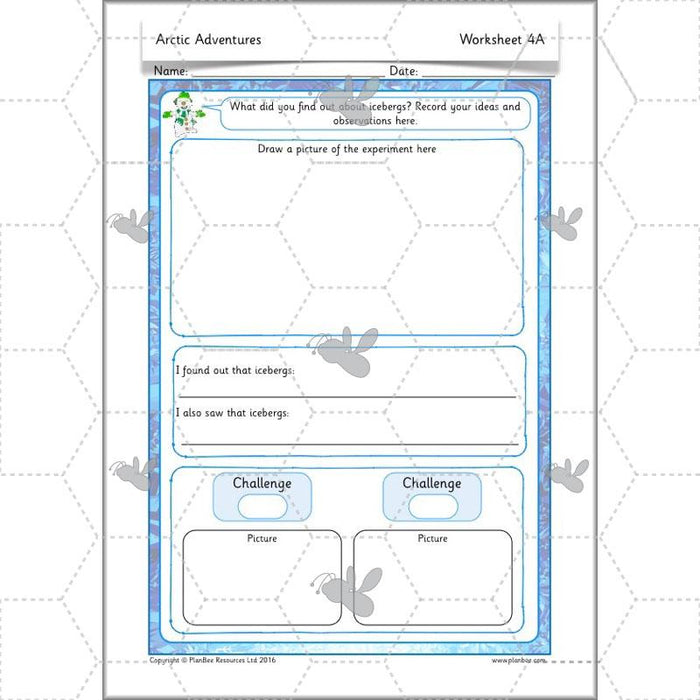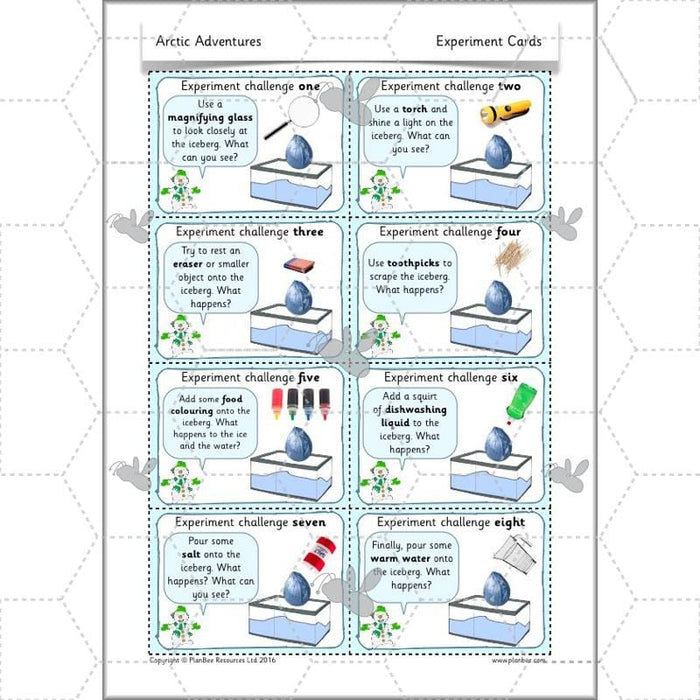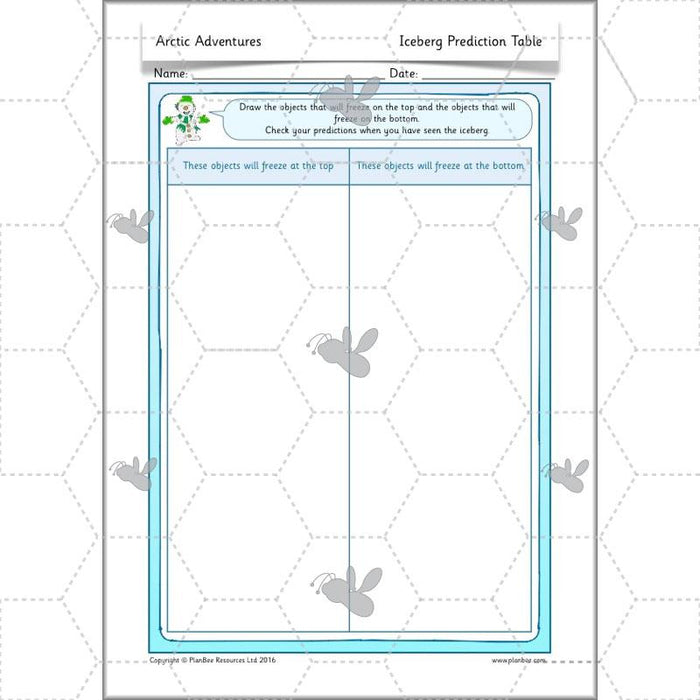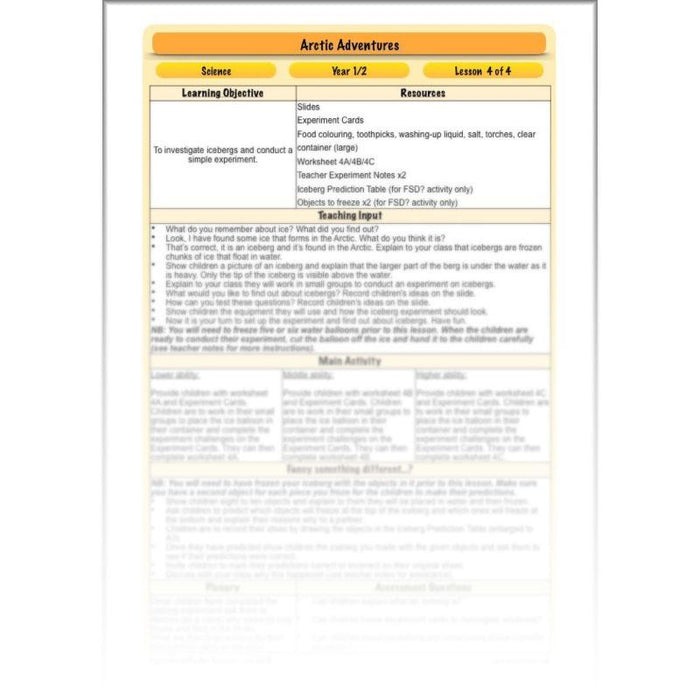With 18 lessons across a range of subjects, this KS1 Arctic Adventure cross-curricular topic contains all the resources you need to deliver a whole term or half term of learning! Each lesson comes with a lesson plan, a fun slideshow for the teaching input, differentiated activity ideas and a range of printable teaching resources, meaning all your planning is done and dusted!
Download the three Arctic Art lessons from our 'Arctic Adventures' cross-curricular topic.
One complete KS1 DT lesson all themed around the topic of Arctic Adventures.
Download the six complete complete Geography lessons that form part of our "Arctic Adventures" topic.
Download the two complete History lessons that form part of our 'Arctic Adventures' topic.
Download the complete Music lesson that forms part of our 'Arctic Adventures' topic.
Download the complete PE lesson that forms part of our "Arctic Adventures" topic.
Download the four complete Science lessons that form part of our 'Arctic Adventures' topic.
In this lesson, your class will explore Arctic landscapes in summer and winter and discuss the differences in colours between the two seasons. They will learn about colours and how they can make us feel, linking their ideas with the Arctic landscape. Your class will have fun making colourful marbled paper with shaving cream and paint to use in their very own Arctic landscapes.
What's included:
- Lesson plan
- Slides
- Activity ideas
- Landscape templates
- Shaving cream pattern instructions
- Arctic landscape cards
Amaze your class with the colours and sights of the Northern Lights (Aurora Borealis). Your children will learn about what the Aurora Borealis is and see images of the different colours and formations they make. Watch your children create lovely chalk pastel Aurora Borealis pictures using stencils and cotton buds. There is even an opportunity for your children to make swirly wax paper paintings to represent the Aurora Borealis.
What's included:
- Lesson plan
- Slides
- Activity ideas
- Differentiated task cards
- Hills and trees templates
- Aurora Borealis images
This lesson allows your class to investigate the different art techniques used by the Inuit. Inuit art represents the harsh life in the Arctic and your class will begin to see the subjects Inuit worked with and why they chose them as the focus of their artwork. This lesson shows your children types of Inuit sculptures and, of course, the very famous Inukshuk. Your class will look at colourful prints of Arctic animals and will learn how to create their own colourful animal print.
What's included:
- Lesson plan
- Slides
- Activity ideas
- Animal pictures
- Animal outlines
- Arctic animal prints
- Inukshuk images
This lesson introduces your class to the importance of boats for the Inuit and the different styles of boats they use. Your children will explore the difference between a Kayak and a Umiak and will explore features of boats. They will then design, make, test and evaluate their own Inuit boat and be able to record their ideas in a design booklet.
What's included:
- Lesson plan
- Slides
- Activity ideas
- Word bank
- Challenge cards
- Boat planning sheet
The first lesson in this scheme of work looks at world maps, pictures and globes to explain where the Arctic Circle is and what it is. Your class will learn the names of the seven main countries that feature in the Arctic. These countries are discussed in more detail showing their flag, features and a major town/city found within it.
Please note that the Geography lessons within this topic are identical to the lessons in our Geography Let's go to the Arctic scheme of work.
What's included:
- Lesson plan
- Slides
- Activity ideas
- Arctic Circle maps
- Differentiated worksheets
- Arctic Circle memory cards
Explore the seasons and weather conditions in the Arctic in this lesson. Your children will become familiar with different weather patterns and the seasons they generally occur in. Explore what winter and summer are like in the Arctic by looking at the different weather and conditions for each month of the year. Through this work, your class will begin to understand what a Tundra climate means.
Please note that the Geography lessons within this topic are identical to the lessons in our Geography Let's go to the Arctic scheme of work.
What's included:
- Lesson plan
- Slides
- Activity ideas
- Differentiated worksheets
- Picture cards
- Word cards
- Scenario cards
Get your children using their senses in this lesson to explore the landscape of the Arctic. Your class will investigate the physical features found in the Arctic, such as mountains, hills, icebergs, rivers, lakes and more, and will begin to express descriptions of each one. Children will be able to compare features found in the Arctic to features found in non-Arctic areas.
Please note that the Geography lessons within this topic are identical to the lessons in our Geography Let's go to the Arctic scheme of work.
What's included:
- Lesson plan
- Slides
- Activity ideas
- Arctic landscapes
- Physical features cards
- Differentiated worksheets
- Landscape cards
- Question cards
Your class will love exploring the weird and wonderful animals found in the Arctic in this lesson! Watch your children excitedly guess the animals on the slides and teach them about the special adaptions Arctic animals make. This lesson reveals the location, features and diet of some of the animals found in the Arctic.
Please note that the Geography lessons within this topic are identical to the lessons in our Geography Let's go to the Arctic scheme of work.
What's included:
- Lesson plan
- Slides
- Activity ideas
- Differentiated worksheets
- Arctic Circle maps
- Follow me animal cards
Your class will be fascinated to find out how people live in the Arctic as they view images of some Arctic cities. This lesson talks about five cities in the Arctic and the countries they are found in. Children will investigate theses cities and discuss the human features found in each city. There is even an opportunity to make their own igloo!
Please note that the Geography lessons within this topic are identical to the lessons in our Geography Let's go to the Arctic scheme of work.
What's included:
- Lesson plan
- Slides
- Activity ideas
- Differentiated worksheets
- City picture cards
- Inuit story
- Igloo images
- Igloo instructions
This lesson gives your children the opportunity to compare a town in the Arctic to London in the United Kingdom. Your class will see human and physical features from each place and discuss what is similar and different about the two. Children will have the opportunity to use grid maps to place famous icons onto each city too.
Please note that the Geography lessons within this topic are identical to the lessons in our Geography Let's go to the Arctic scheme of work.
What's included:
- Lesson plan
- Slides
- Activity ideas
- Differentiated worksheets
- Sorting cards
- Venn diagram cards
- London and Sisimiut grid maps
- Position cards
Journey back in time with your class and explore the traditional Inuit way of life. Your class will learn how the native Arctic people survived in the harsh Arctic climate and how they worked together as a tribe to do this. Your children will love investigating traditional Inuit homes, diet, clothing, transport and culture and will begin to understand how things changed over time for the Inuit.
What's included:
- Lesson plan
- Slides
- Activity ideas
- Differentiated worksheets
- Inuit culture cards
- Inuit poster
- Fact cards
- Picture cards
Who found the Arctic and the Inuit? Expose your class to the early Arctic explorers and the expeditions they made to the Arctic. Your children will investigate the types of expeditions people went on in the Arctic and what they were looking for. They will find out about a famous Arctic explorer, Roald Amundsen, and investigate the life of an explorer. There is even an opportunity to role-play some Arctic expedition events in this lesson, which your children will love.
What's included:
- Lesson plan
- Slides
- Activity ideas
- Differentiated worksheets
- Matching game
- Expedition cards
Enjoy the unique sound of the Inuit throat singing in this lesson as your class are introduced to this interesting and entertaining form of singing. Your class will love learning about the throat singing game Inuit women play and enjoy trying throat singing for themselves. They will also learn how to make sounds and echoes for Arctic objects and animals, working together in pairs to create a unique song.
What's included:
- Lesson plan
- Slides
- Activity ideas
- Echo cards
- Topic cards
- Circle game instruction cards
Children will get their rhythm on in this lesson as they attempt to perform traditional Inuit dances! Your class will learn about drum dancing and its importance to the Inuit culture. They will also look at square dancing and how it is different to drum dancing. They will have the opportunity to compose their own dance sequence using different movements and body formations, and will begin to tell a story through dance, performing their moves to a given beat or tempo.
What's included:
- Lesson plan
- Slides
- Activity ideas
- Picture cards
- Story sequence cards
- Square dance sequence cards
Investigate some of the weird and wonderful of the Arctic and explore their characteristics with your class as introduce them to the a variety of Arctic mammals, fish and birds. This lesson will challenge your class to sort the animals into scientific groups and will challenge them to explain their reasons for their decisions.
What's included:
- Lesson plan
- Slides
- Activity ideas
- Differentiated worksheets
- Characteristics word bank
- Blubber experiment instructions
- Experiment findings sheet
Expose your children to the concept of habitats, adaptations and survival in this Science lesson. Wally the Walrus will help explain to your class that the Arctic is a hard habitat to live in. Your children will begin to understand why Arctic animals have certain features which help them survive in their habitats. Investigate six Arctic animals with your children and how they have adapted to survive in the Arctic.
What's included:
- Lesson plan
- Slides
- Activity ideas
- Differentiated worksheets
- Statement cards
- Word bank
- Habitat posters
- Habitat fact cards
Get your hands cold and wet with this ice exploration lesson! Your children will learn about ice, what it is and what it is used for. They will begin to understand when what happens to water when it freezes and what happens when ice is heated. They will investigate ice formations in the Arctic and what they look like, as well as exploring and playing with ice cubes and discussing the new concepts and ideas they discover.
What's included:
- Lesson plan
- Slides
- Activity ideas
- Differentiated worksheets
- Ice sculpture cards
- Challenge cards
This fantastic iceberg lesson will have your children enthusiastic and excited to explore and test 'real icebergs'. Perform a simple experiment in this lesson and give your children the chance to become more familiar with making predictions and observing scientific events. Your children will learn about how icebergs float and what happens to ice when it is manipulated. They will also have the chance to work in small groups to conduct their own tests on 'balloon icebergs' and record their findings and ideas.
What's included:
- Lesson plan
- Slides
- Activity ideas
- Differentiated worksheets
- Teacher experiment notes
- Iceberg prediction table
<<
-
free overview (medium-term plan)
...
-
free assessment grid
...
-
curriculum objectives covered
...
>>
Download a free overview to support your teaching of this scheme of work.
Download a free, editable assessment grid to support your teaching of this scheme of work.
Art Objectives:
- KS1 - to use a range of materials creatively to design and make products
- KS1 - to use painting to develop and share their ideas, experiences and imagination
- KS1 - to use sculpture to develop and share their ideas, experiences and imagination
- KS1 - to develop a wide range of art and design techniques in using colour, pattern, texture, line, shape, form and space
DT Objectives:
- KS1 - design purposeful, functional, appealing products for themselves and other users based on design criteria
- KS1 - generate, develop, model and communicate their ideas through talking, drawing, templates, mock-ups and, where appropriate, information and communication technology.
- KS1 - select from and use a wide range of materials and components, including construction materials, textiles and ingredients, according to their characteristics
- KS1 - evaluate their ideas and products against design criteria
- KS1 - build structures, exploring how they can be made stronger, stiffer and more stable
Geography Objectives:
- KS1 - understand geographical similarities and differences through studying the human and physical geography of a small area of the United Kingdom, and of a small area in a contrasting non-European country.
- KS1 - identify seasonal and daily weather patterns in the United Kingdom and the location of hot and cold areas of the world in relation to the Equator and the North and South Poles.
- KS1 - use basic geographical vocabulary to refer to key physical features, including: beach, cliff, coast, forest, hill, mountain, sea, ocean, river, soil, valley, vegetation, season and weather.
- KS1 - use basic geographical vocabulary to refer to key human features, including: city, town, village, factory, farm, house, office, port, harbour and shop
- KS1 - use world maps, atlases and globes to identify the United Kingdom and its countries, as well as the countries, continents and oceans studied at this key stage
- KS1 - use aerial photographs and plan perspectives to recognise landmarks and basic human and physical features; devise a simple map; and use and construct basic symbols in a key
History Objectives:
- KS1 - the lives of significant individuals in the past who have contributed to national and international achievements. Some should be used to compare aspects of life in different periods
- KS1 - significant historical events, people and places in their own locality
Music Objectives:
- KS1 - use their voices expressively and creatively by singing songs and speaking chants and rhymes
- KS1 - listen with concentration and understanding to a range of high-quality live and recorded music
- KS1 - experiment with, create, select and combine sounds using the inter-related dimensions of music
PE Objectives:
- KS1 - master basic movements including running, jumping, throwing and catching, as well as developing balance, agility and co-ordination, and begin to apply these in a range of activities
- KS1 - perform dances using simple movement patterns
Science Objectives:
Year 1/2 Working Scientifically Objectives
- asking simple questions and recognising that they can be answered in different ways
- observing closely, using simple equipment
- performing simple tests
- identifying and classifying
- using their observations and ideas to suggest answers to questions
Year 1 Animals, including Humans Objectives
- identify and name a variety of common animals including fish, amphibians, reptiles, birds and mammals
Year 1 Everyday Materials Objectives
- describe the simple physical properties of a variety of everyday materials
Year 2 Living things and their Habitats Objectives
- identify that most living things live in habitats to which they are suited and describe how different habitats provide for the basic needs of different kinds of animals and plants, and how they depend on each other
